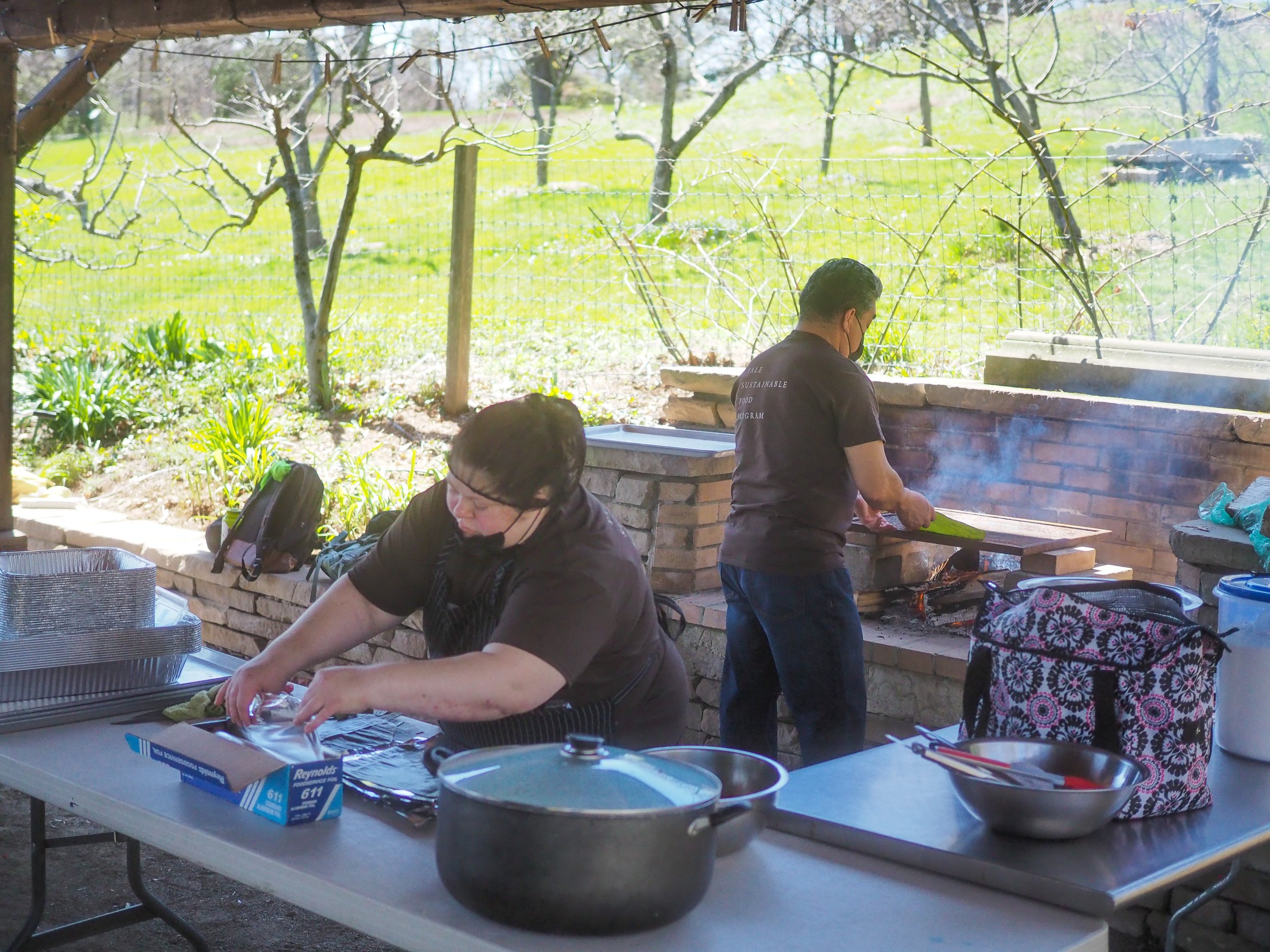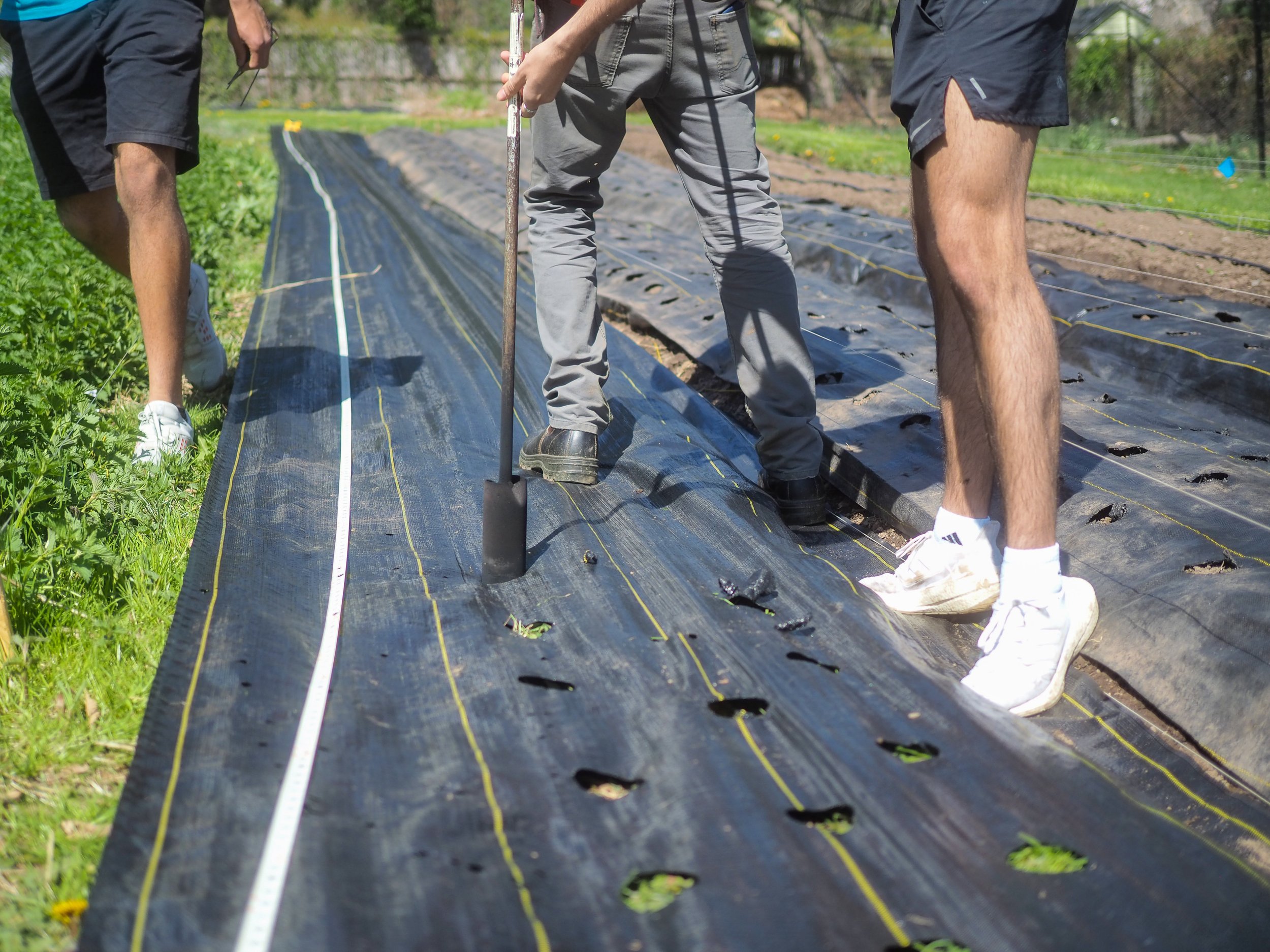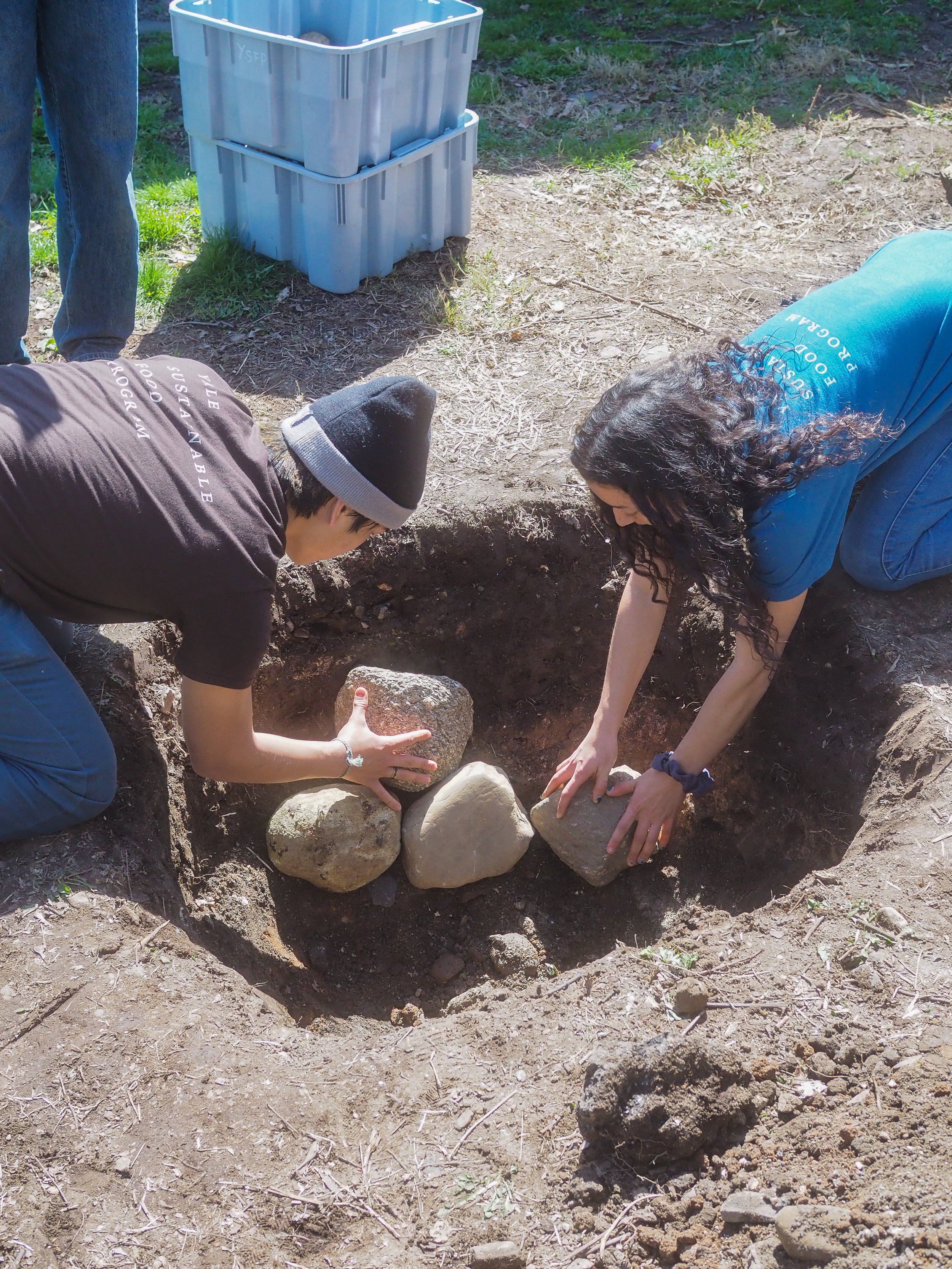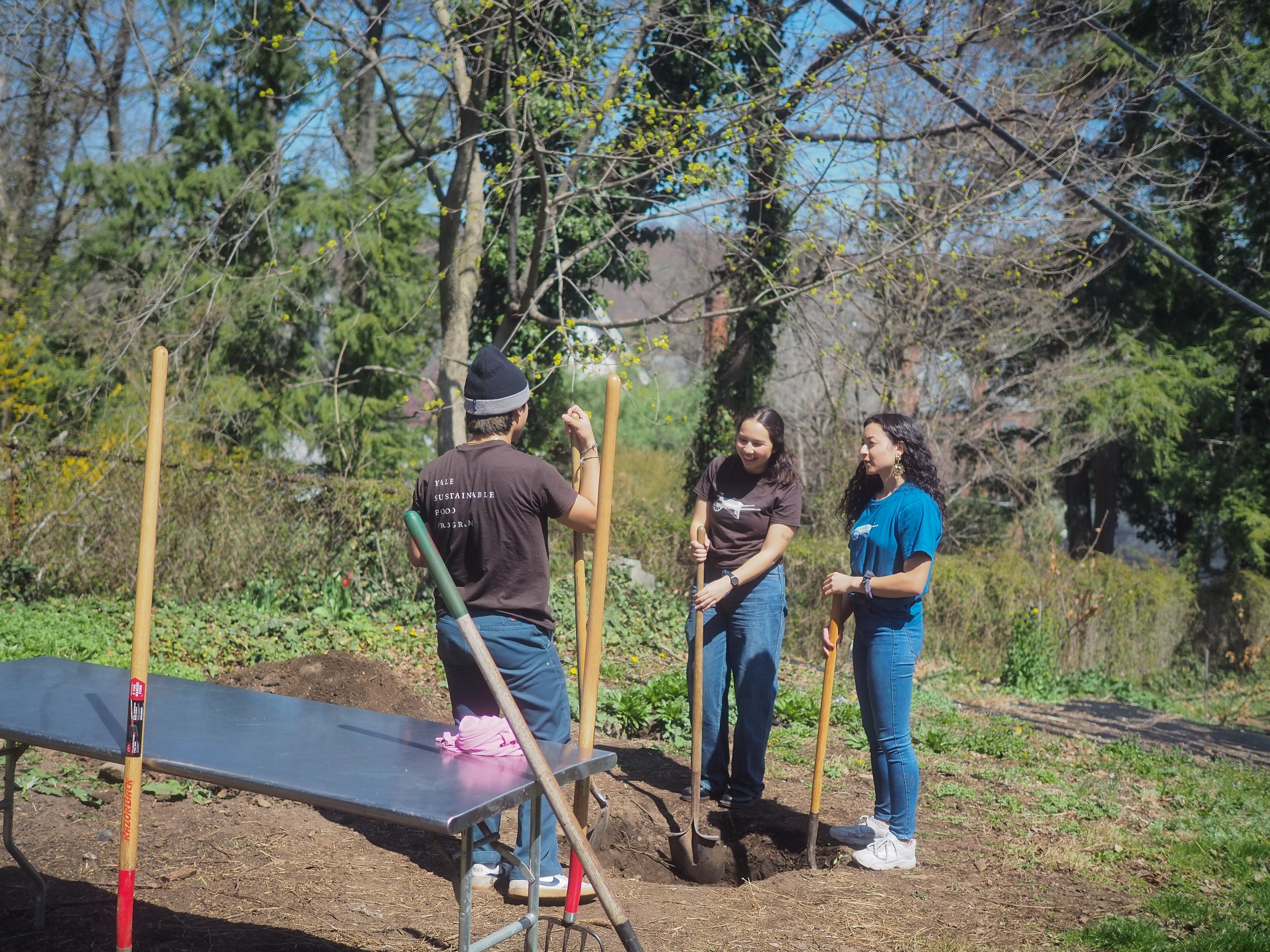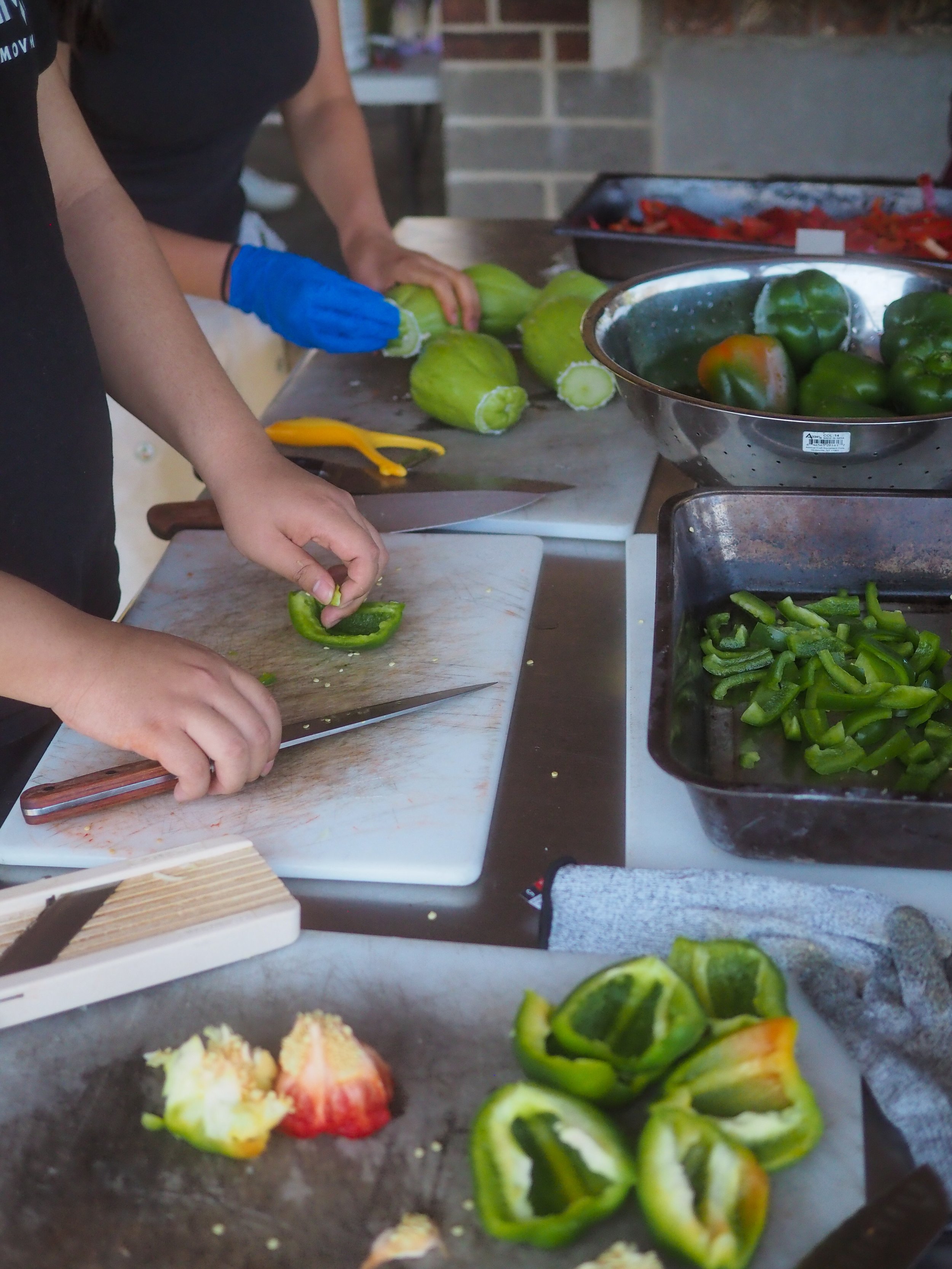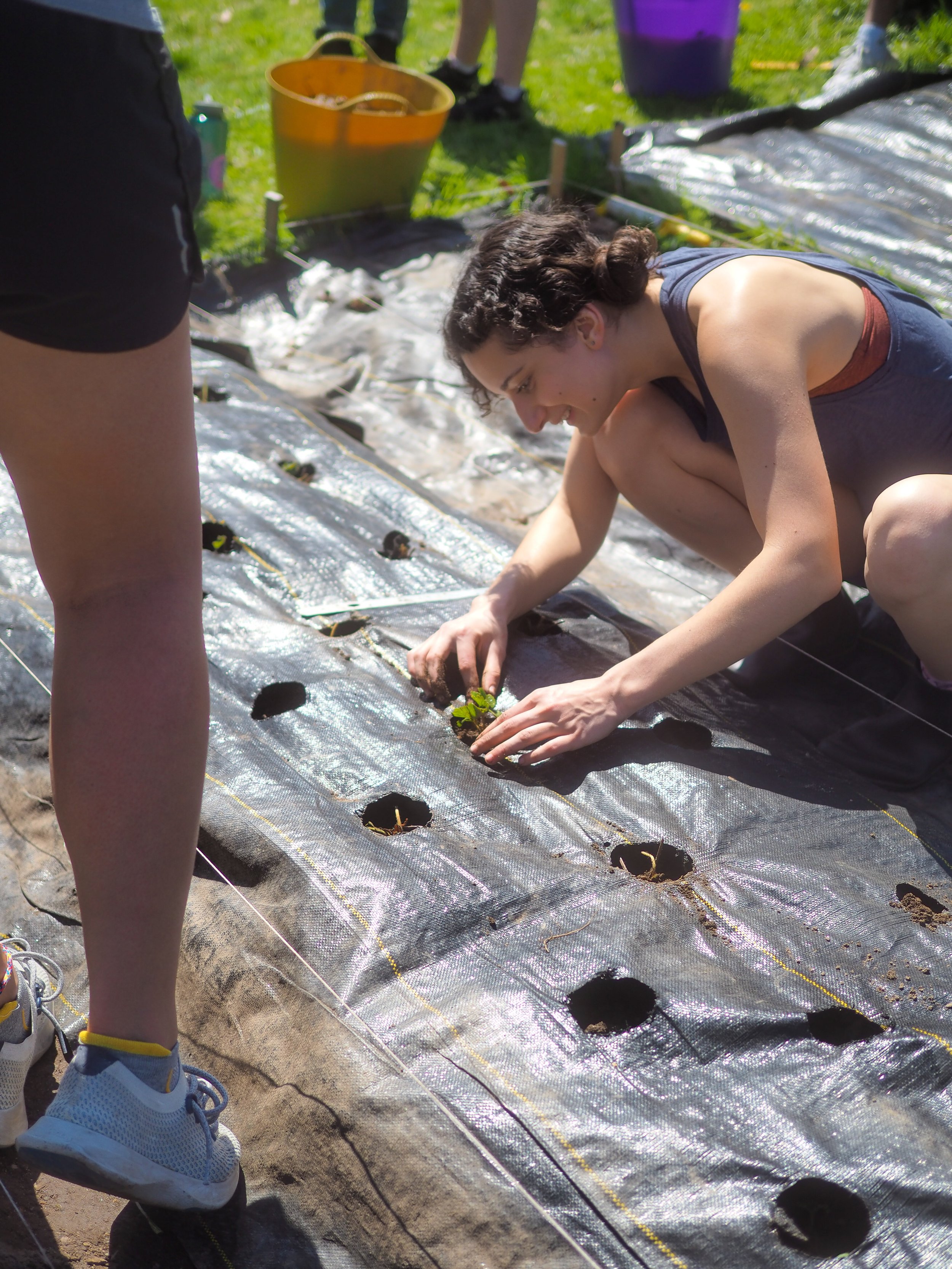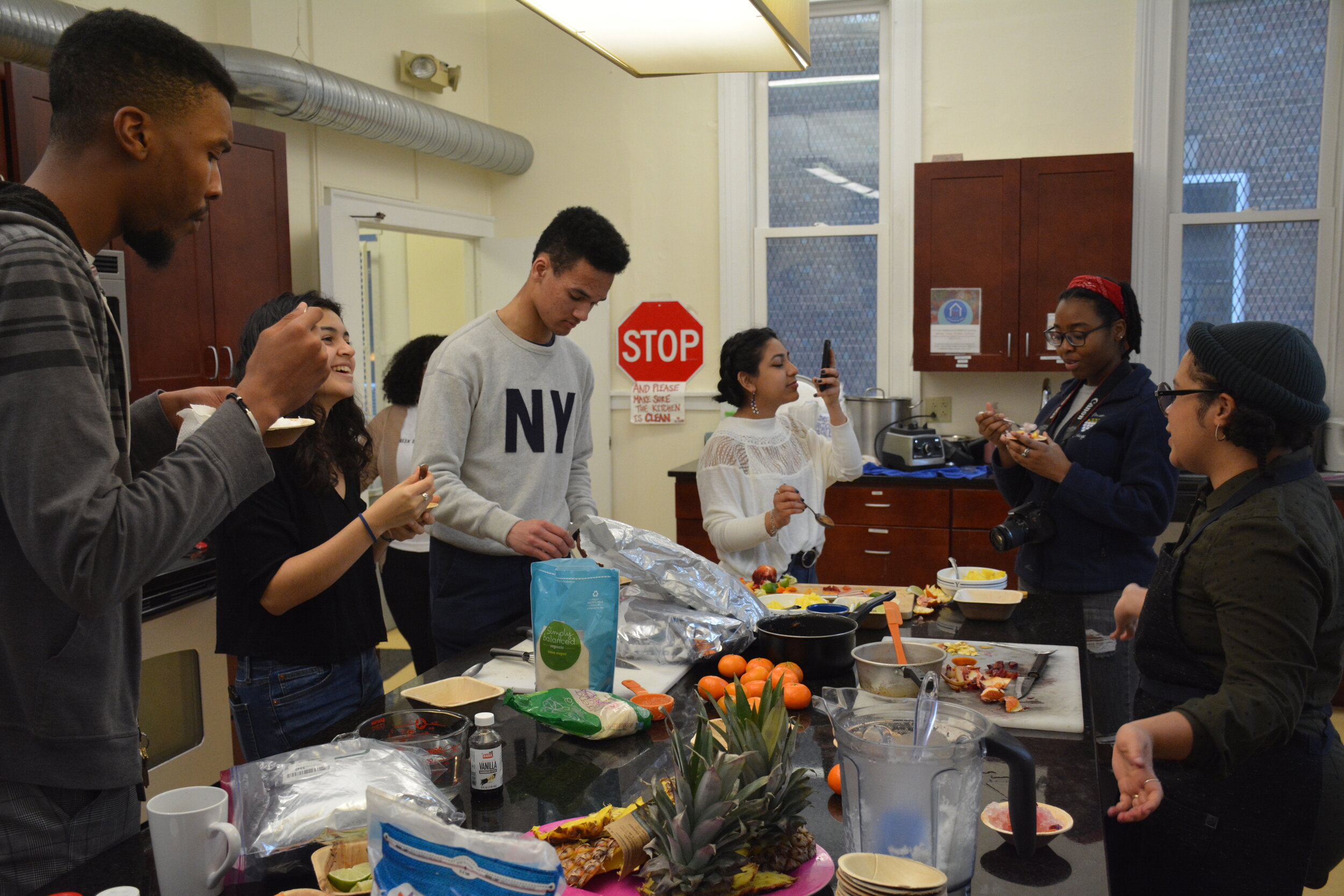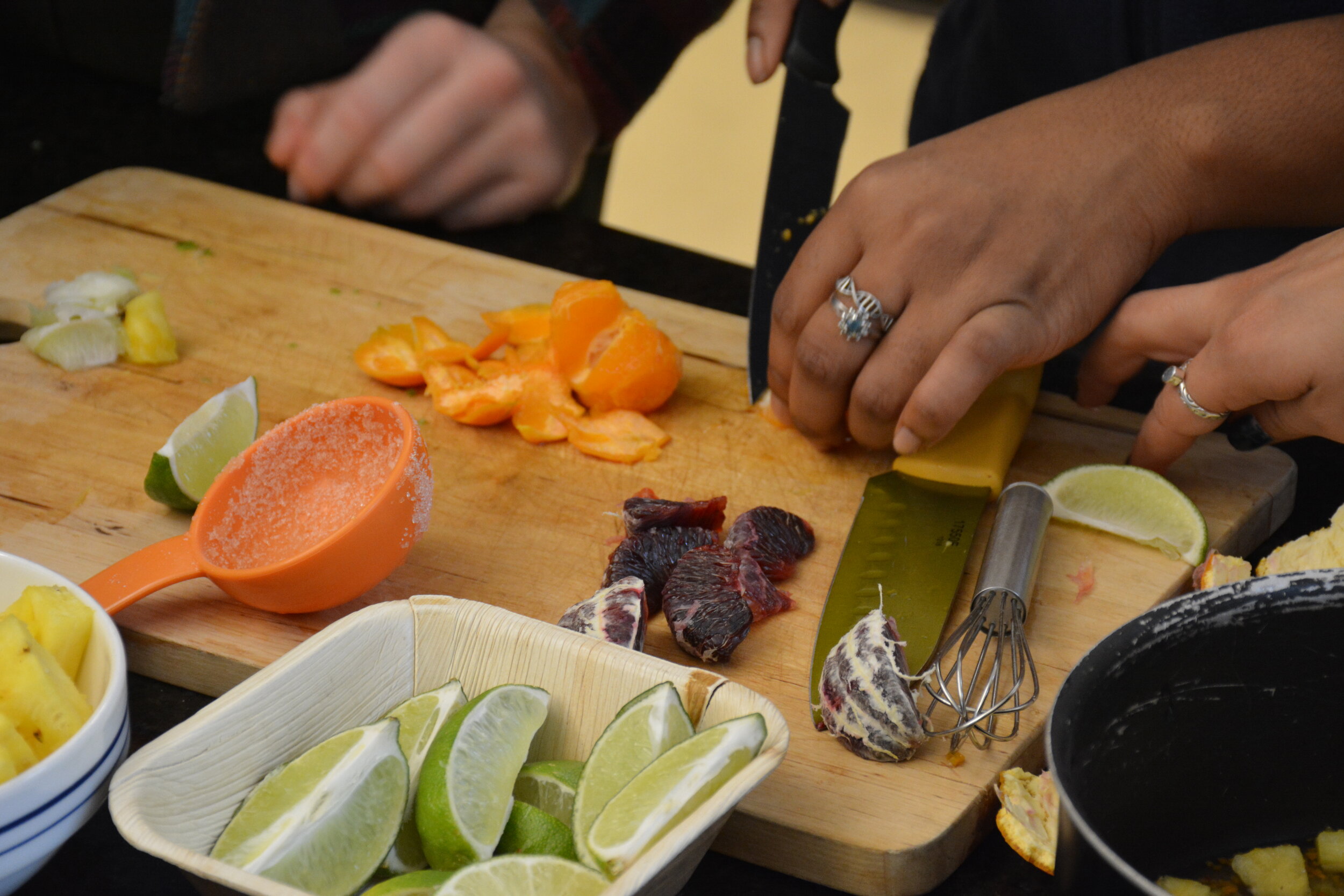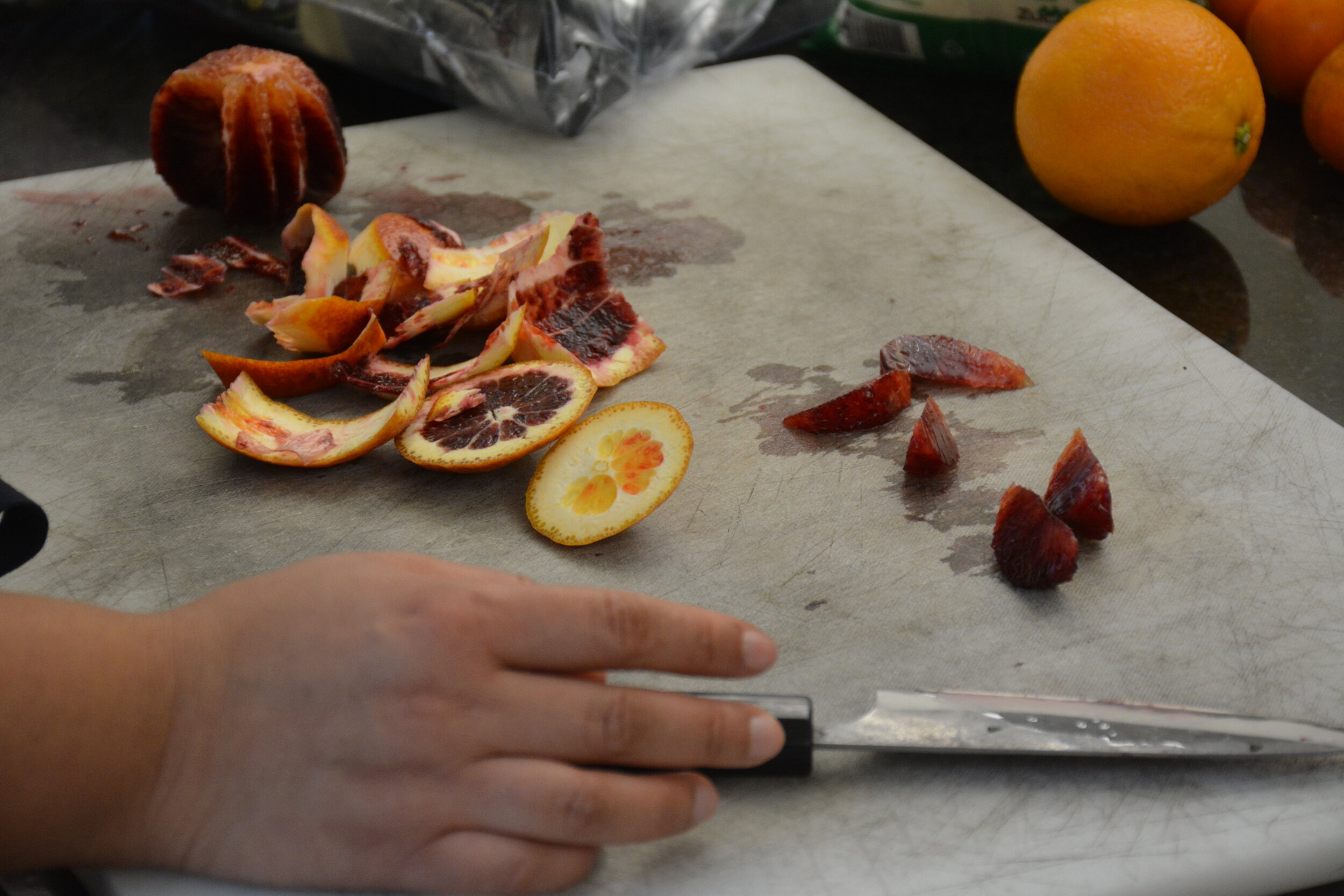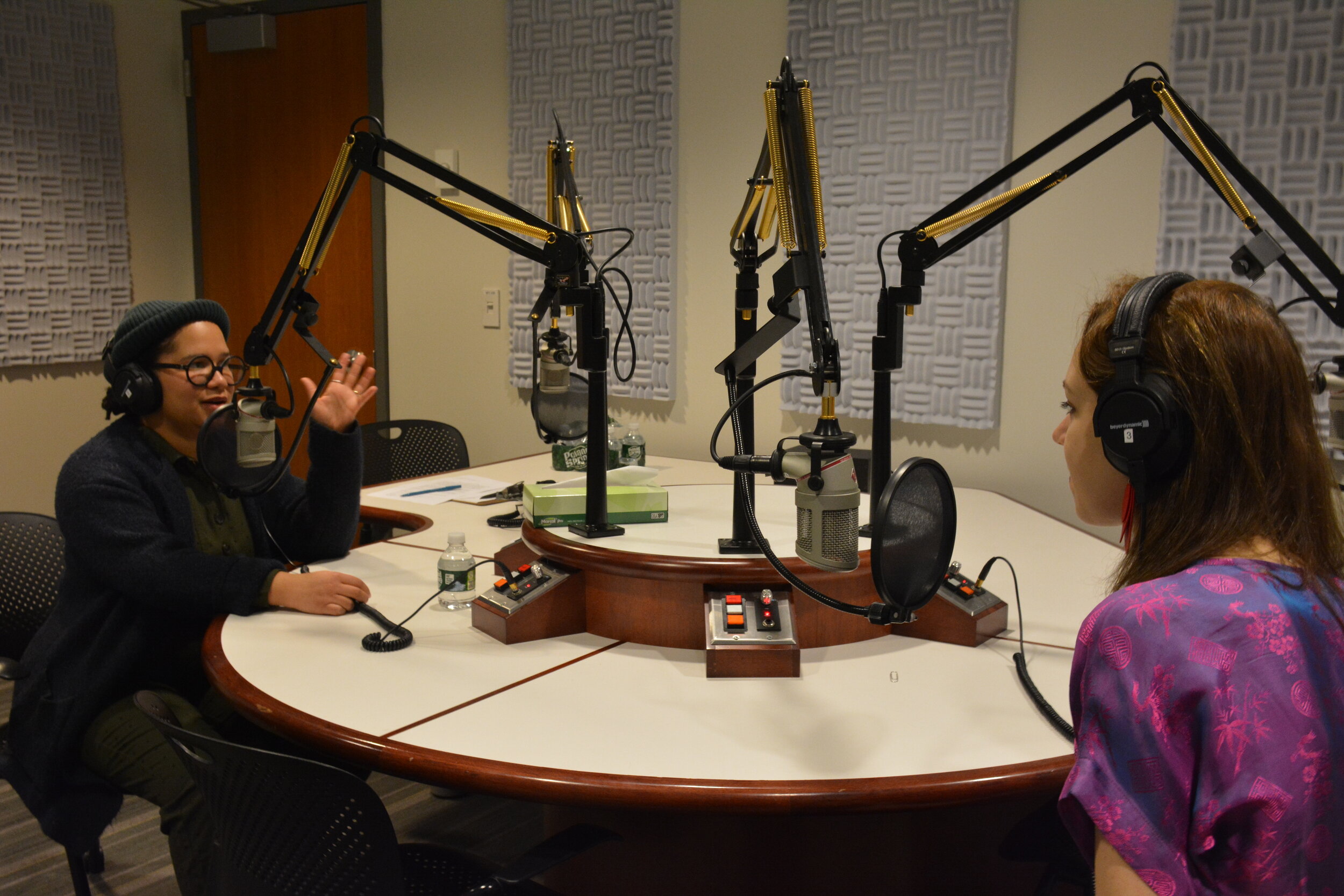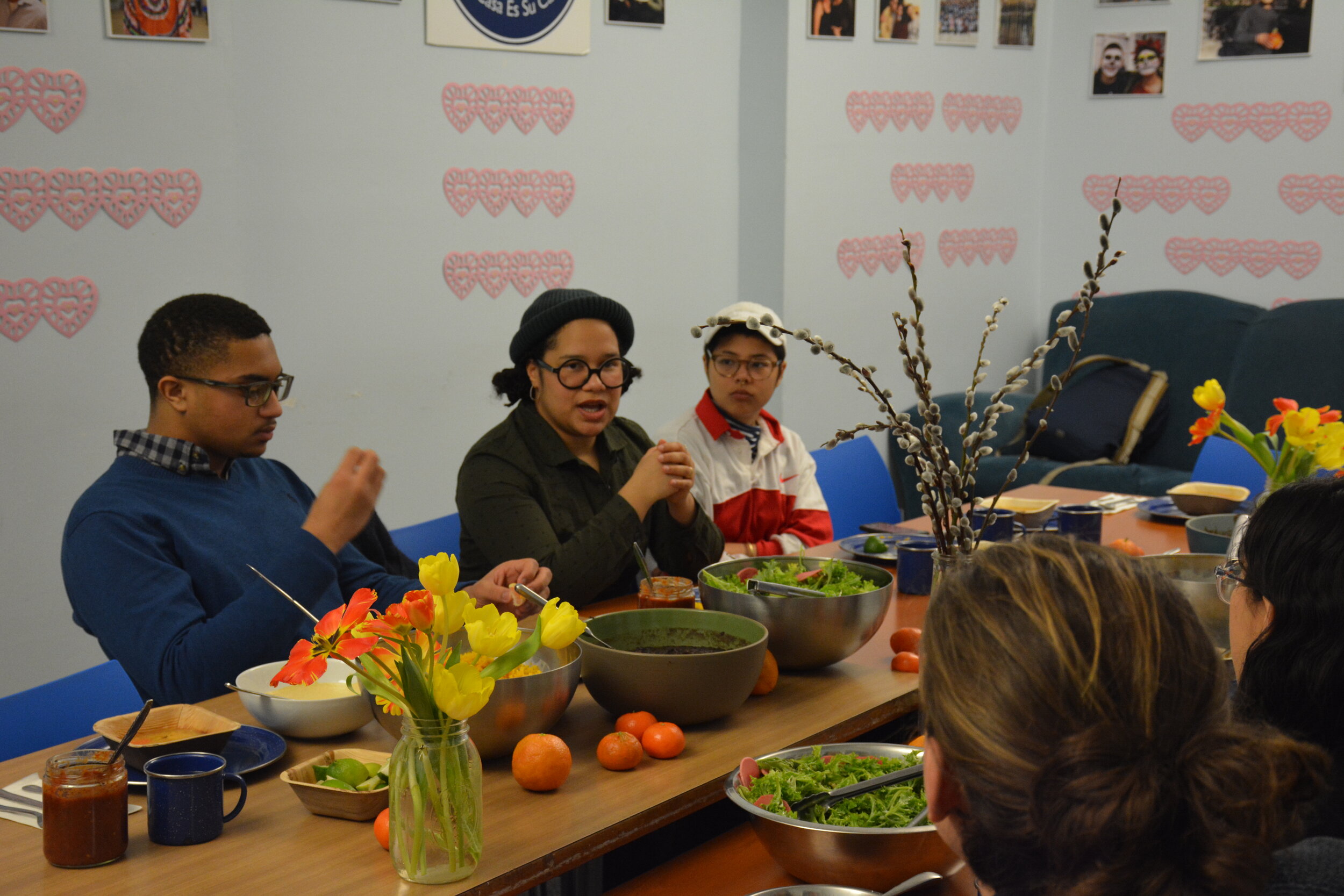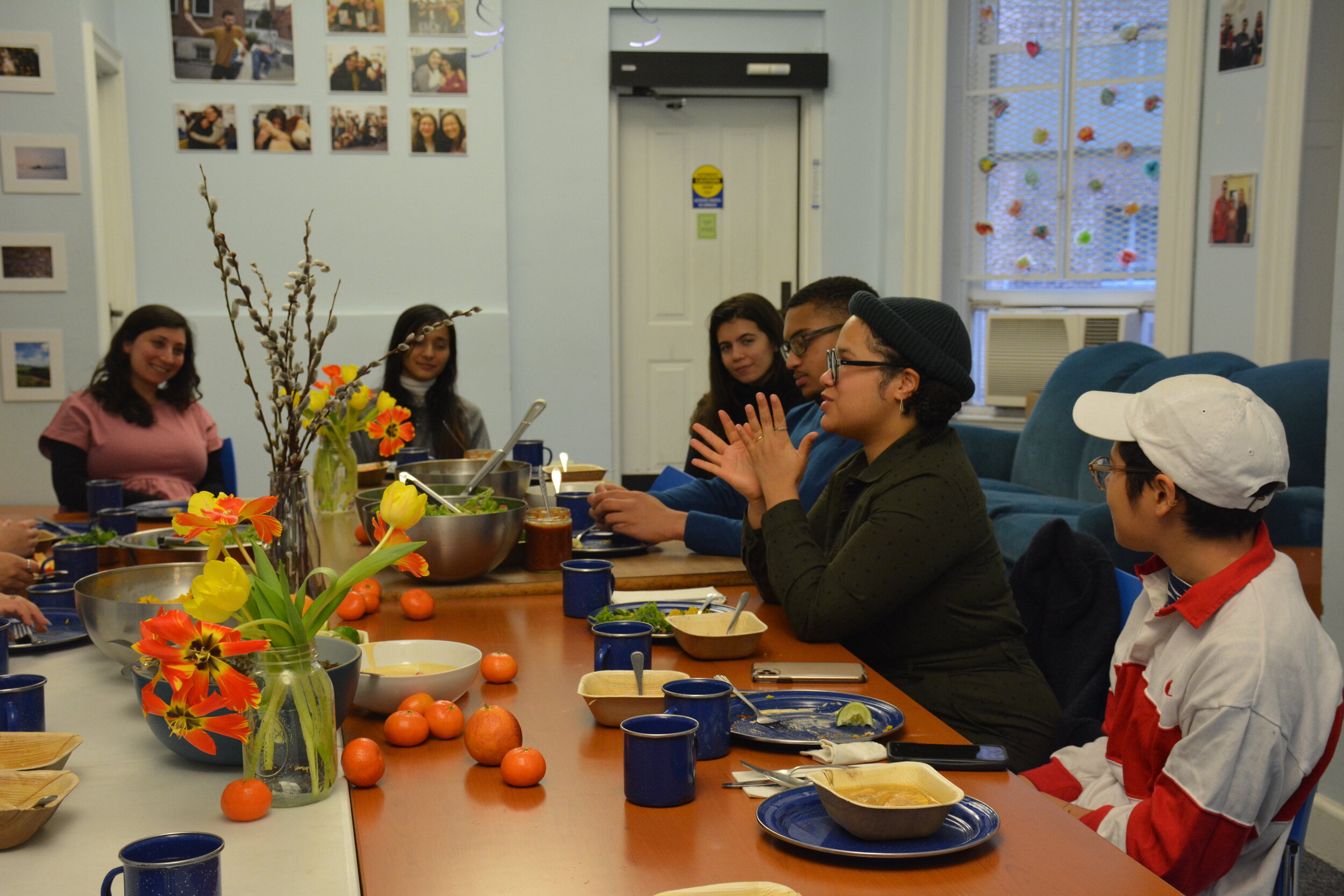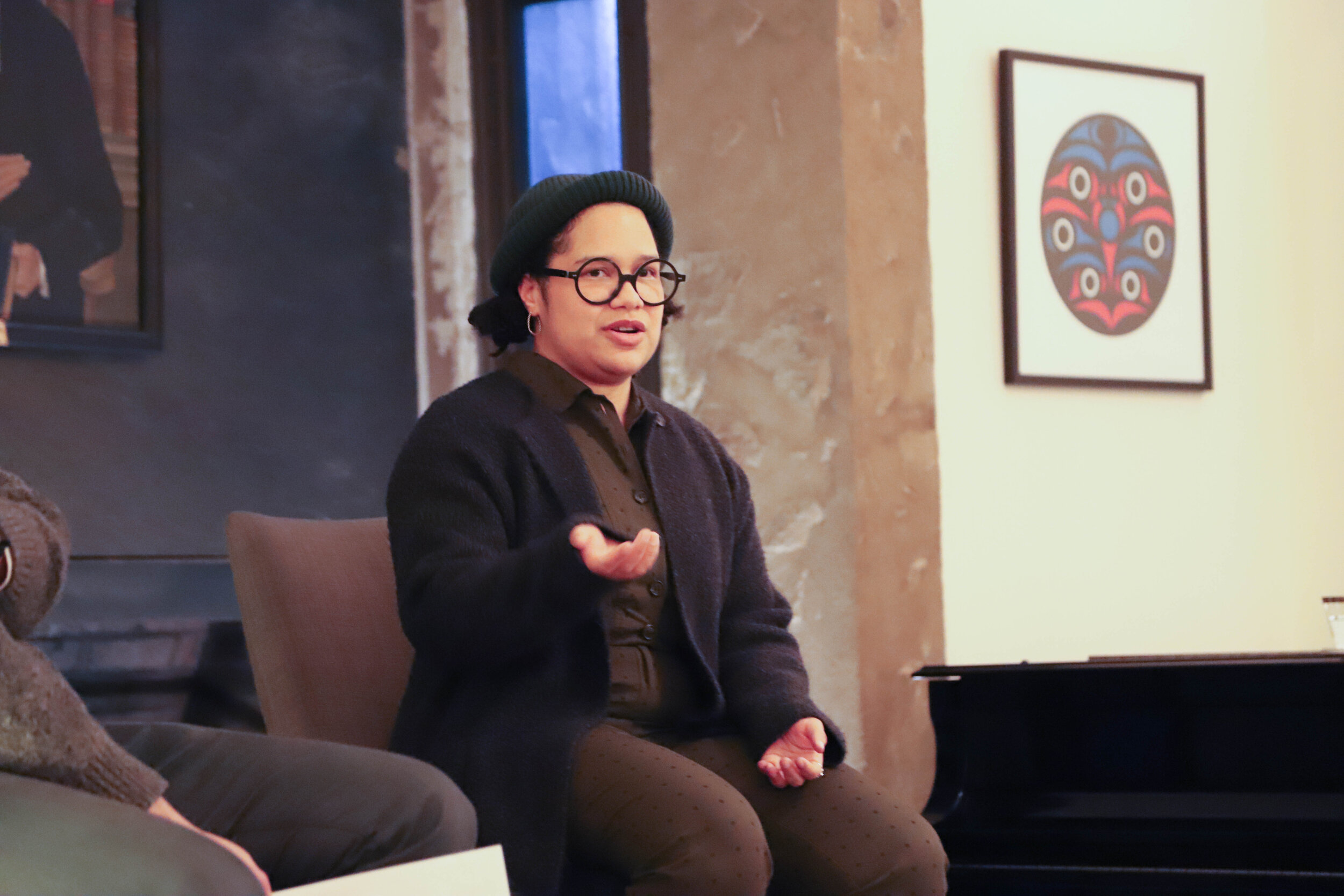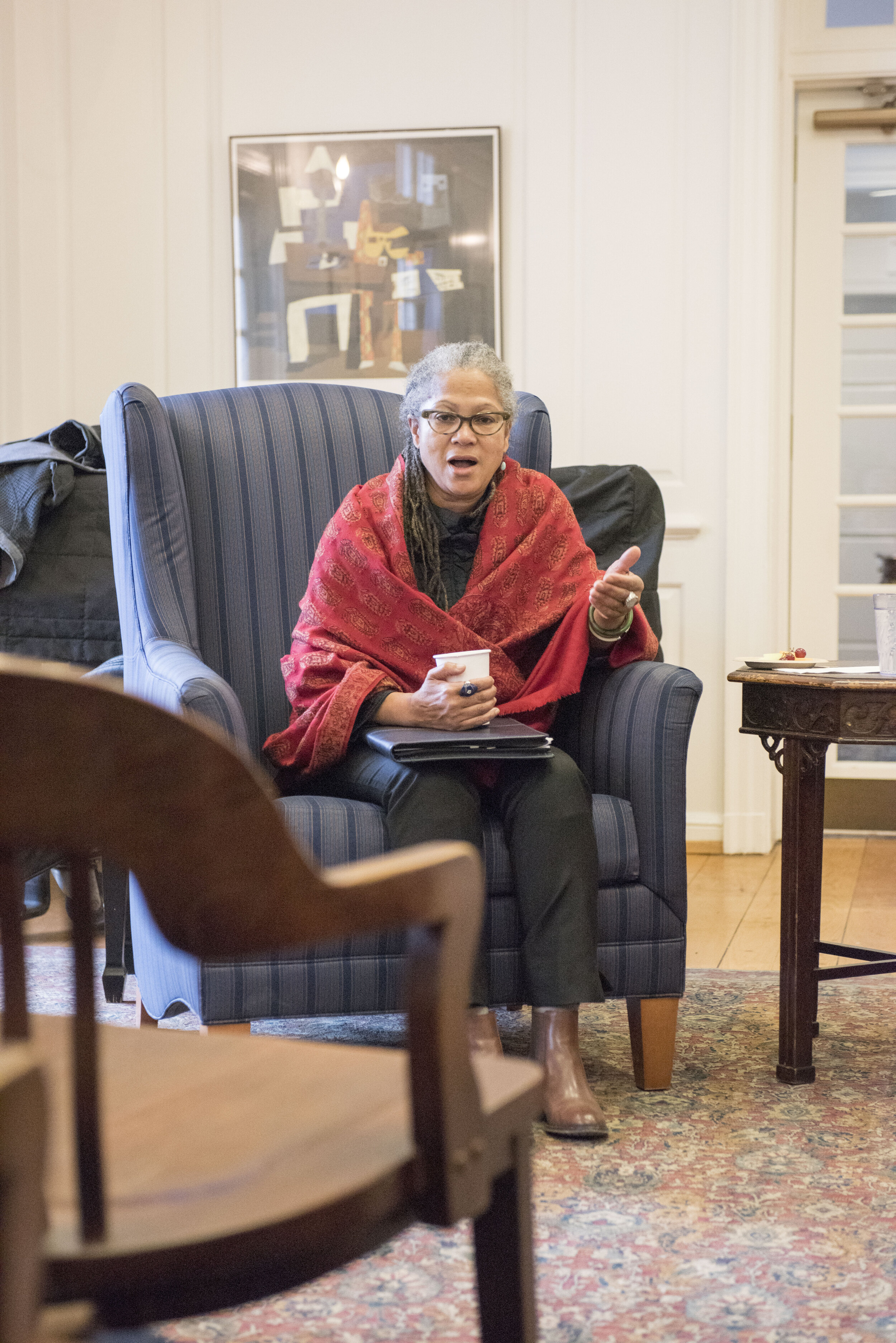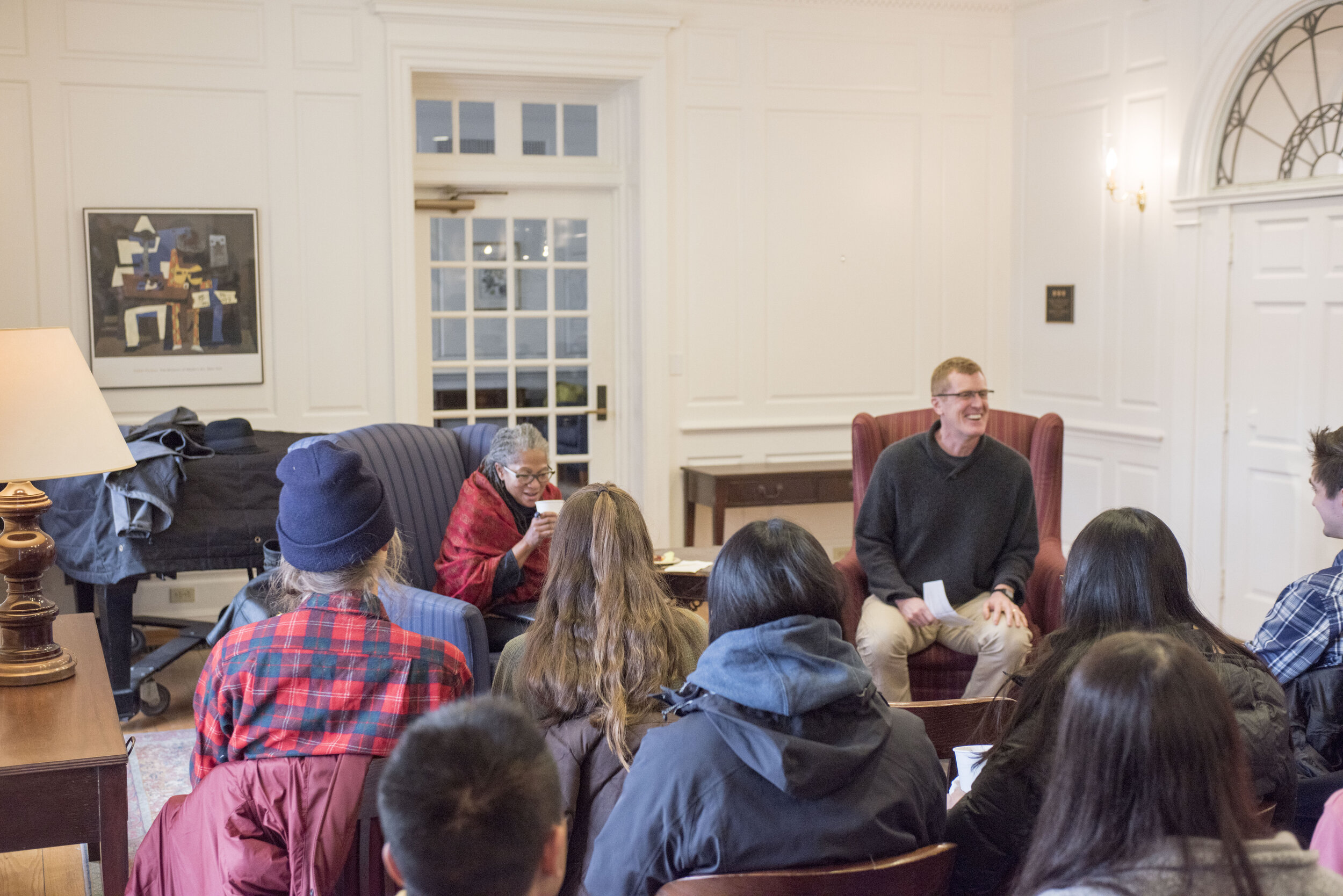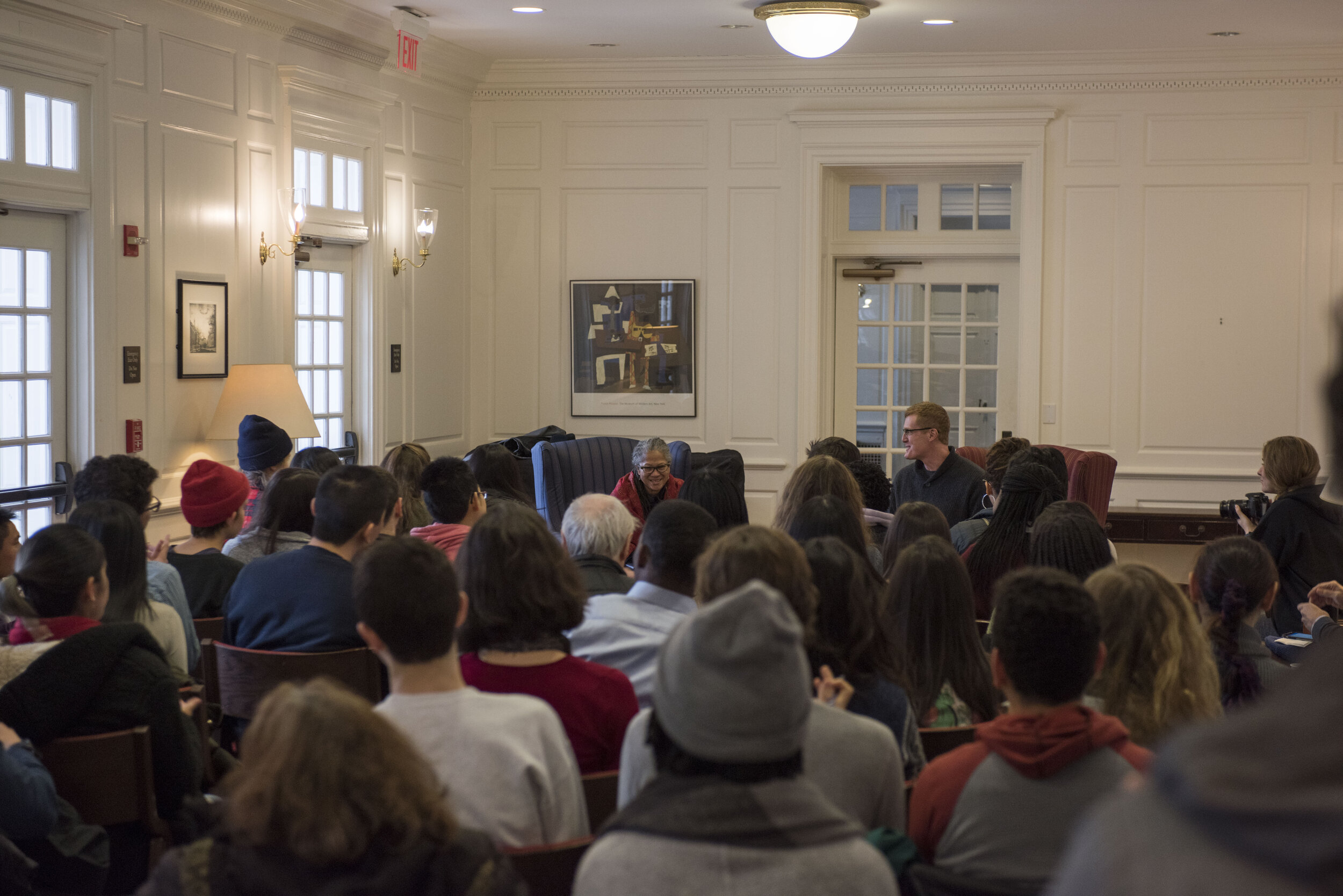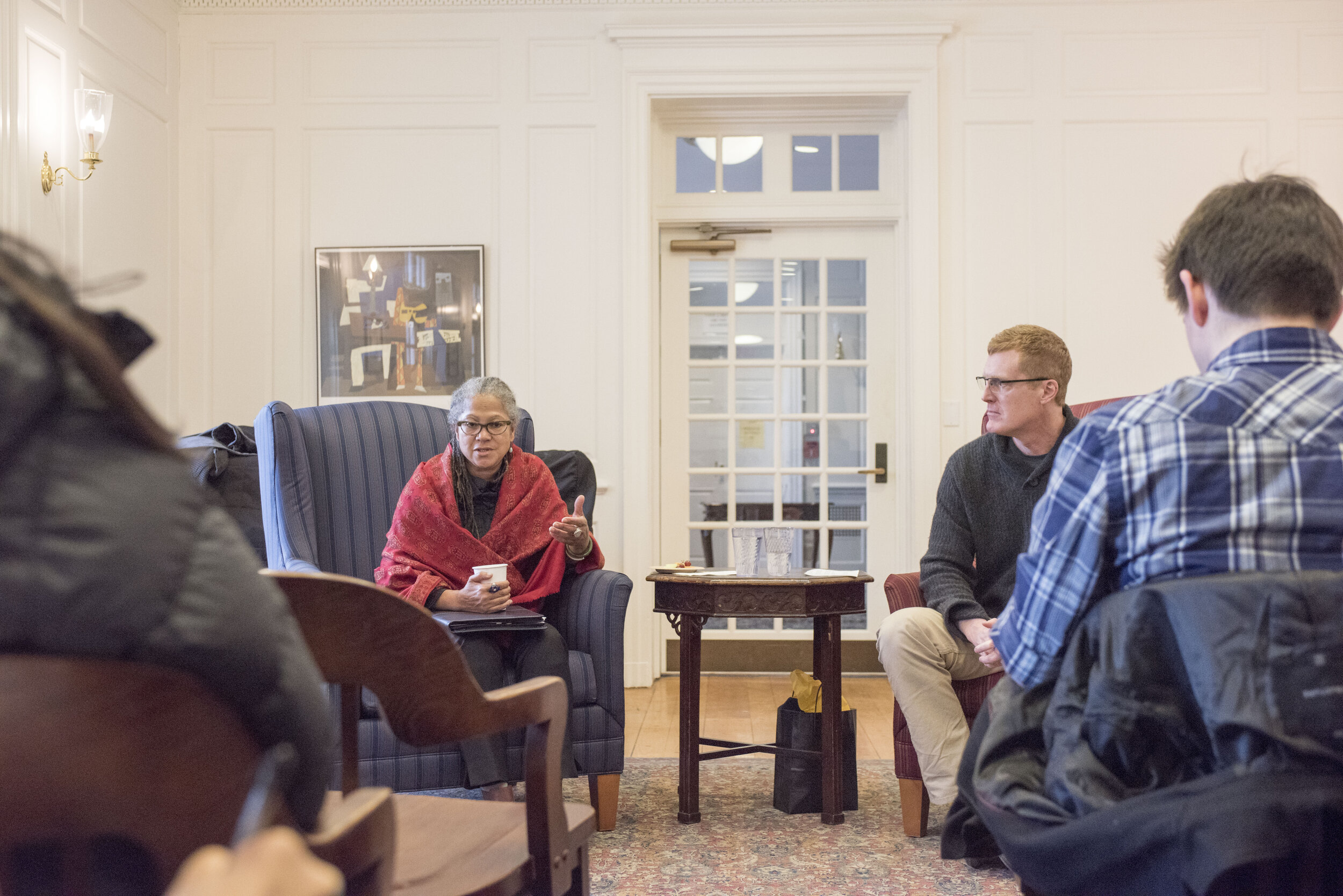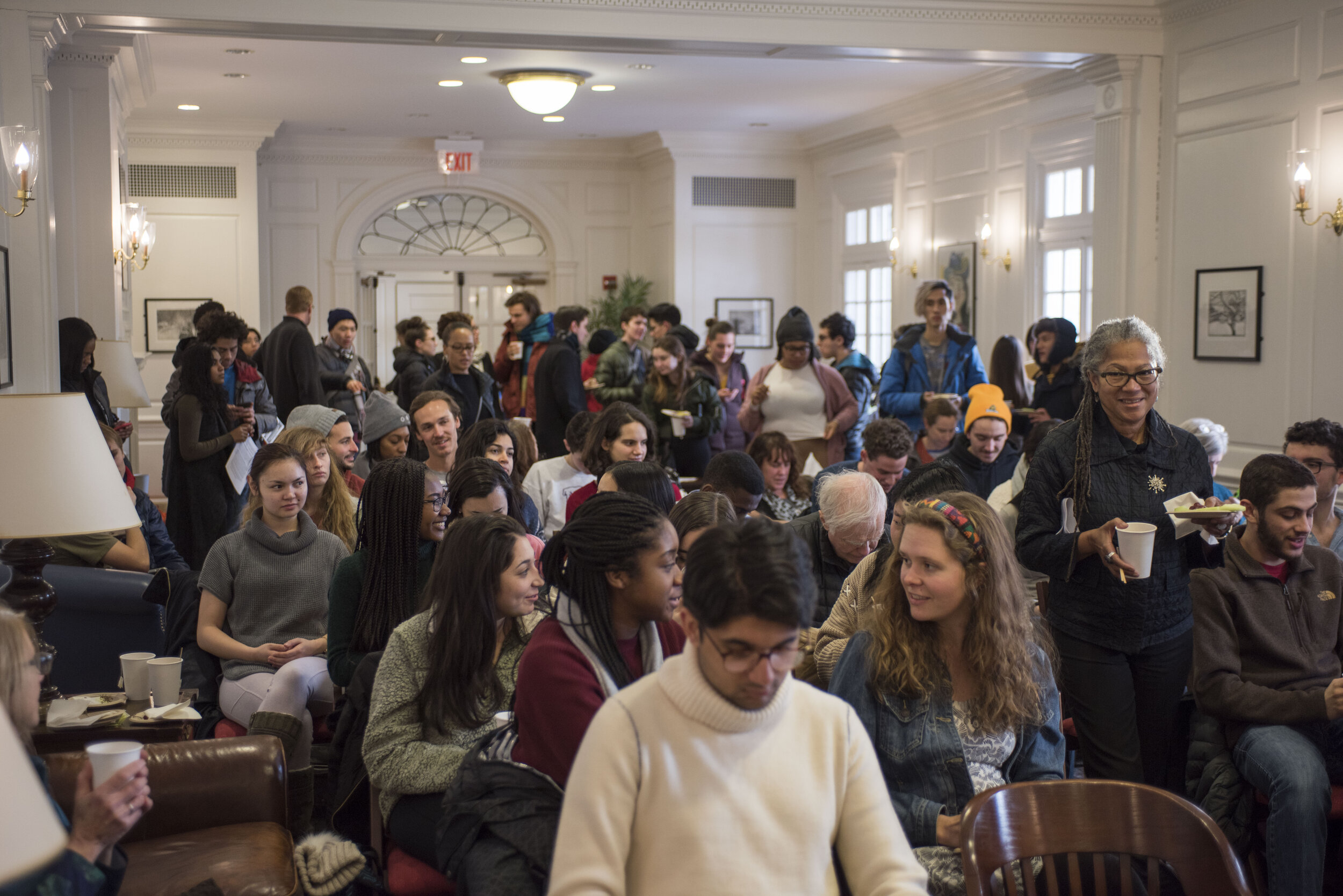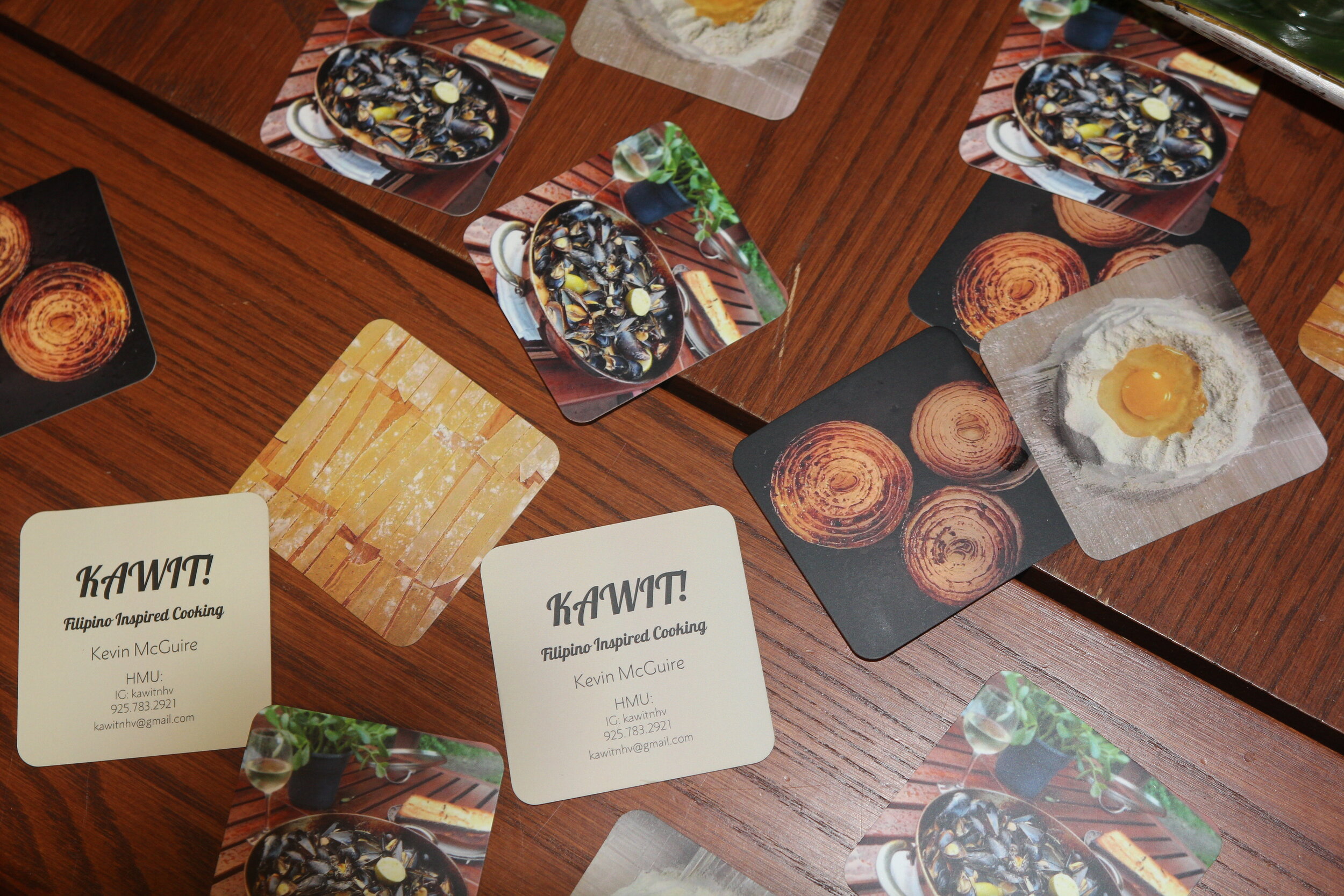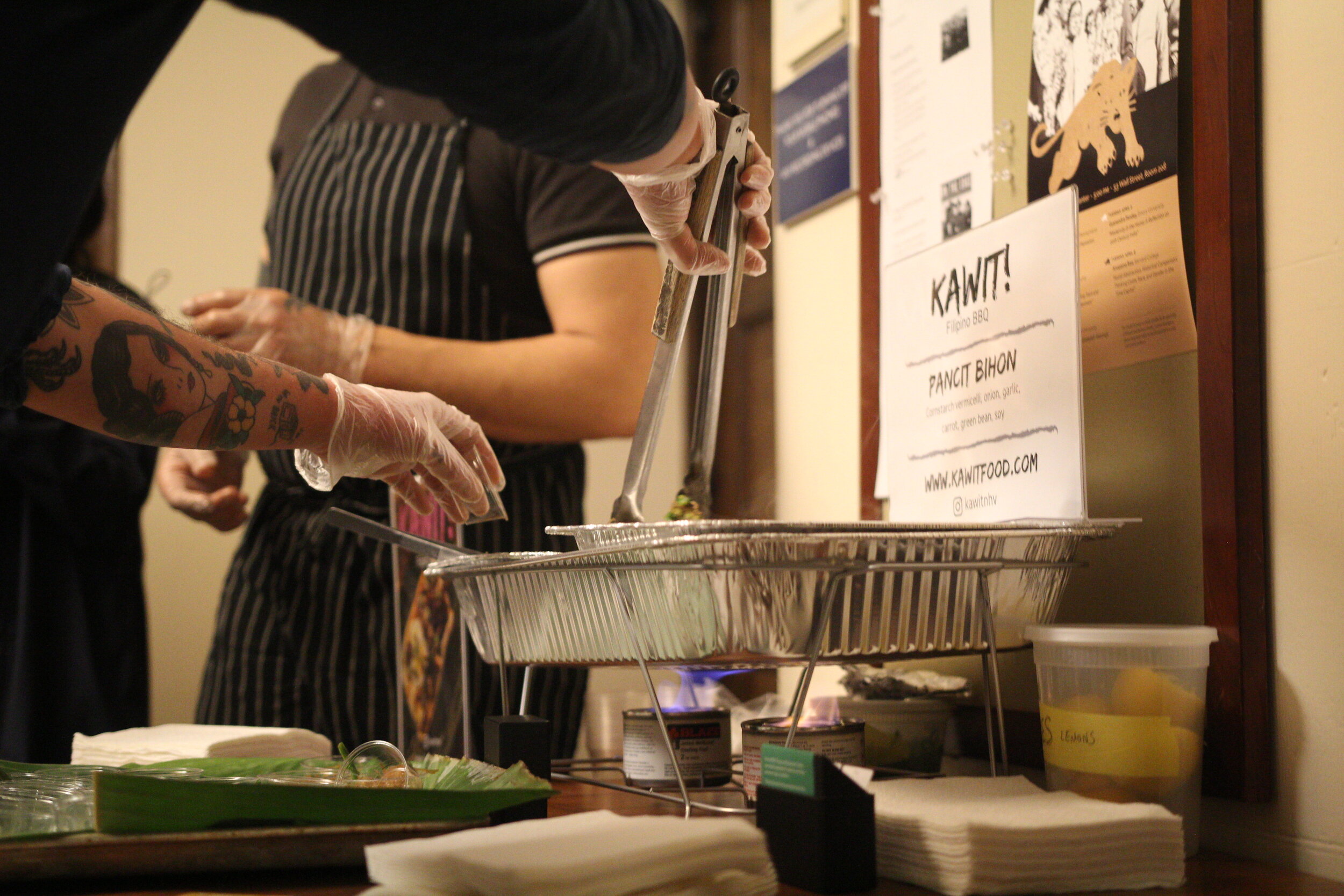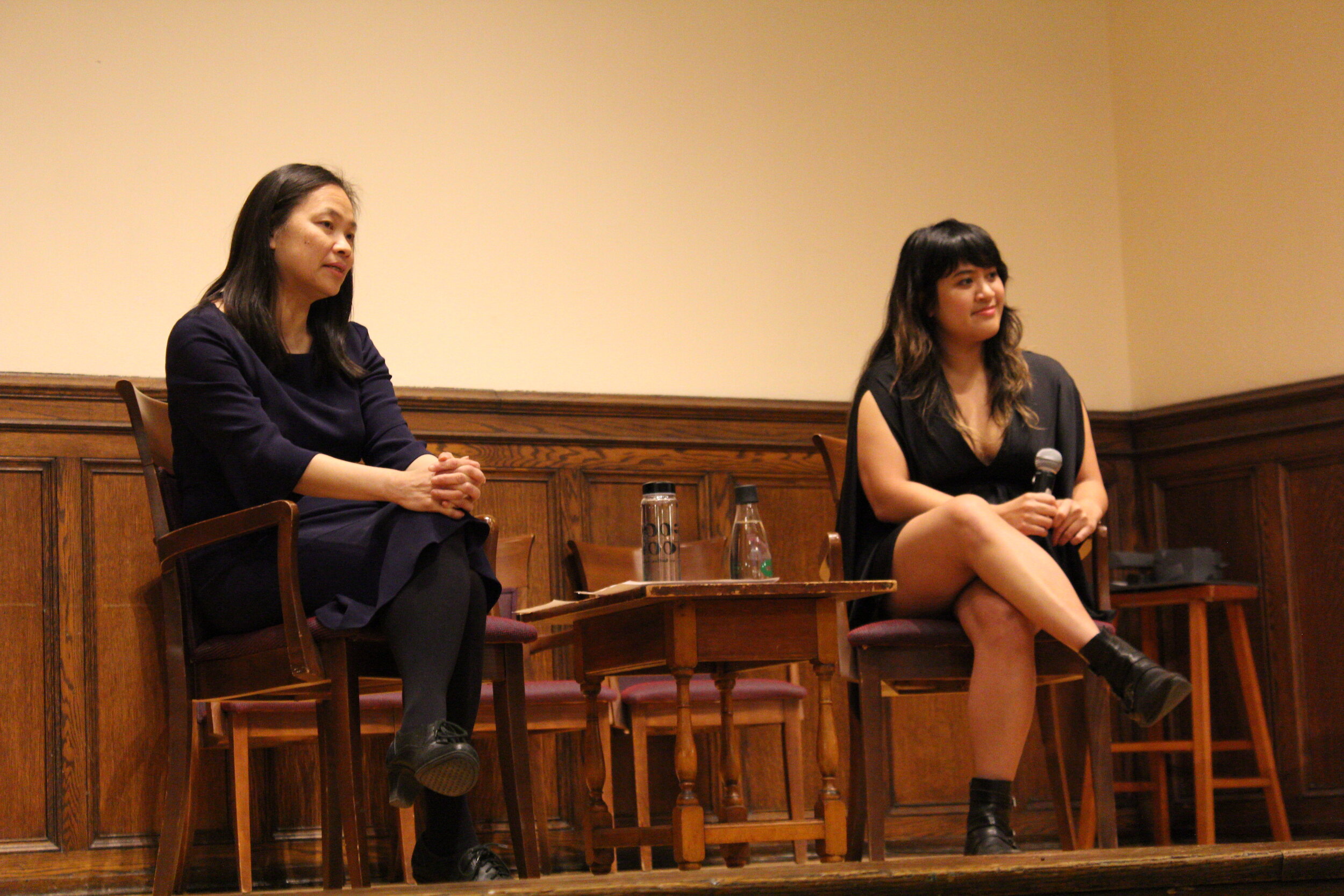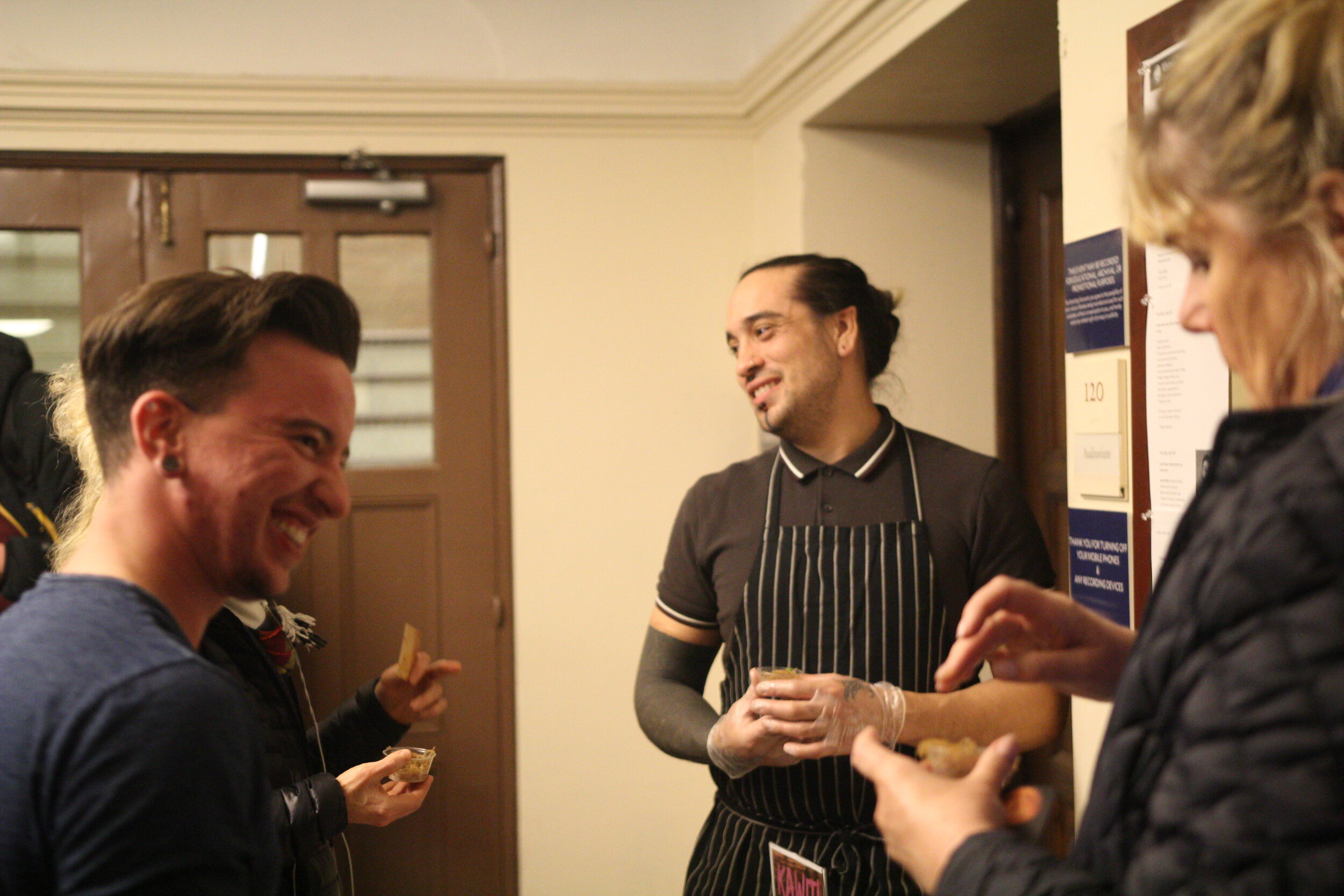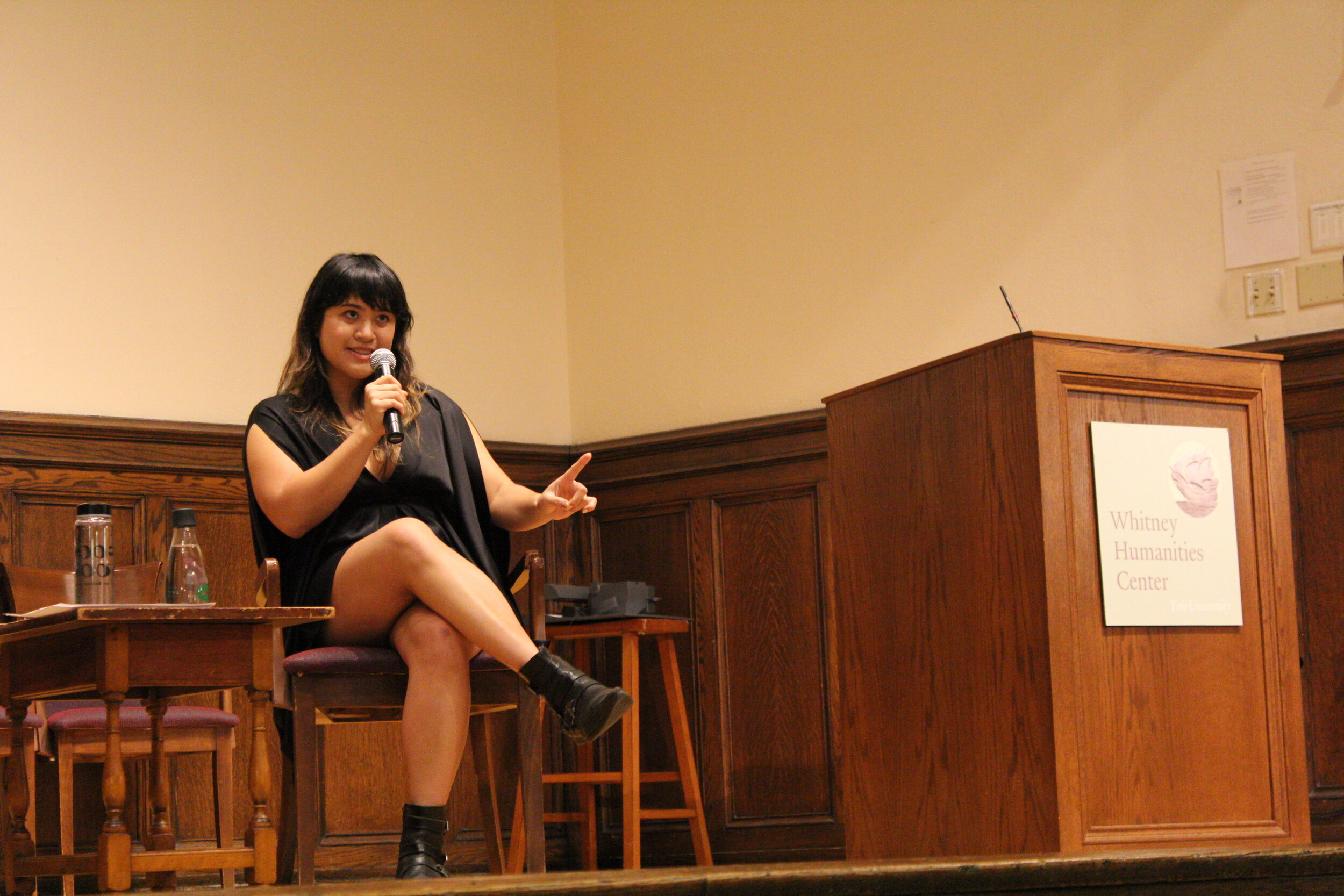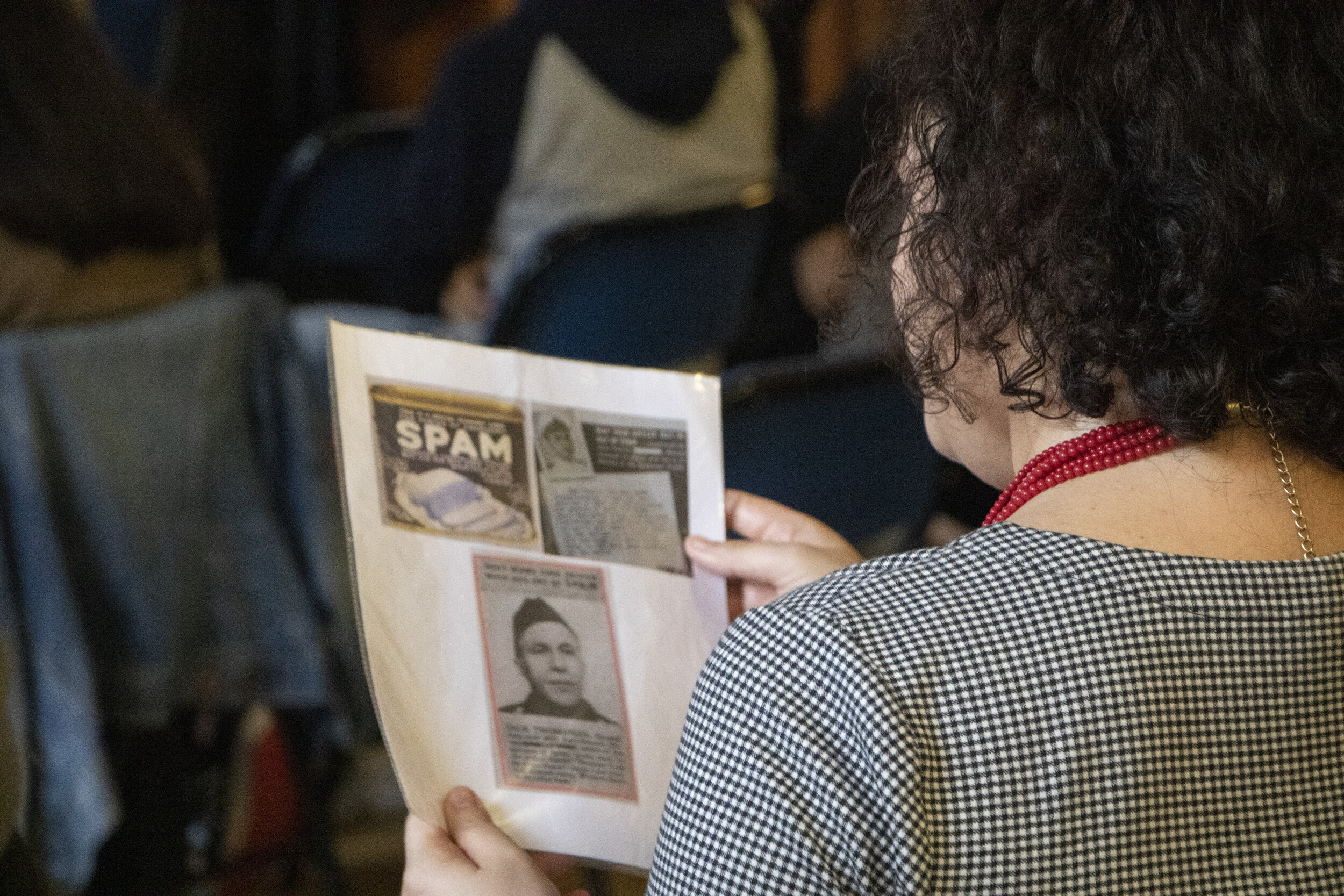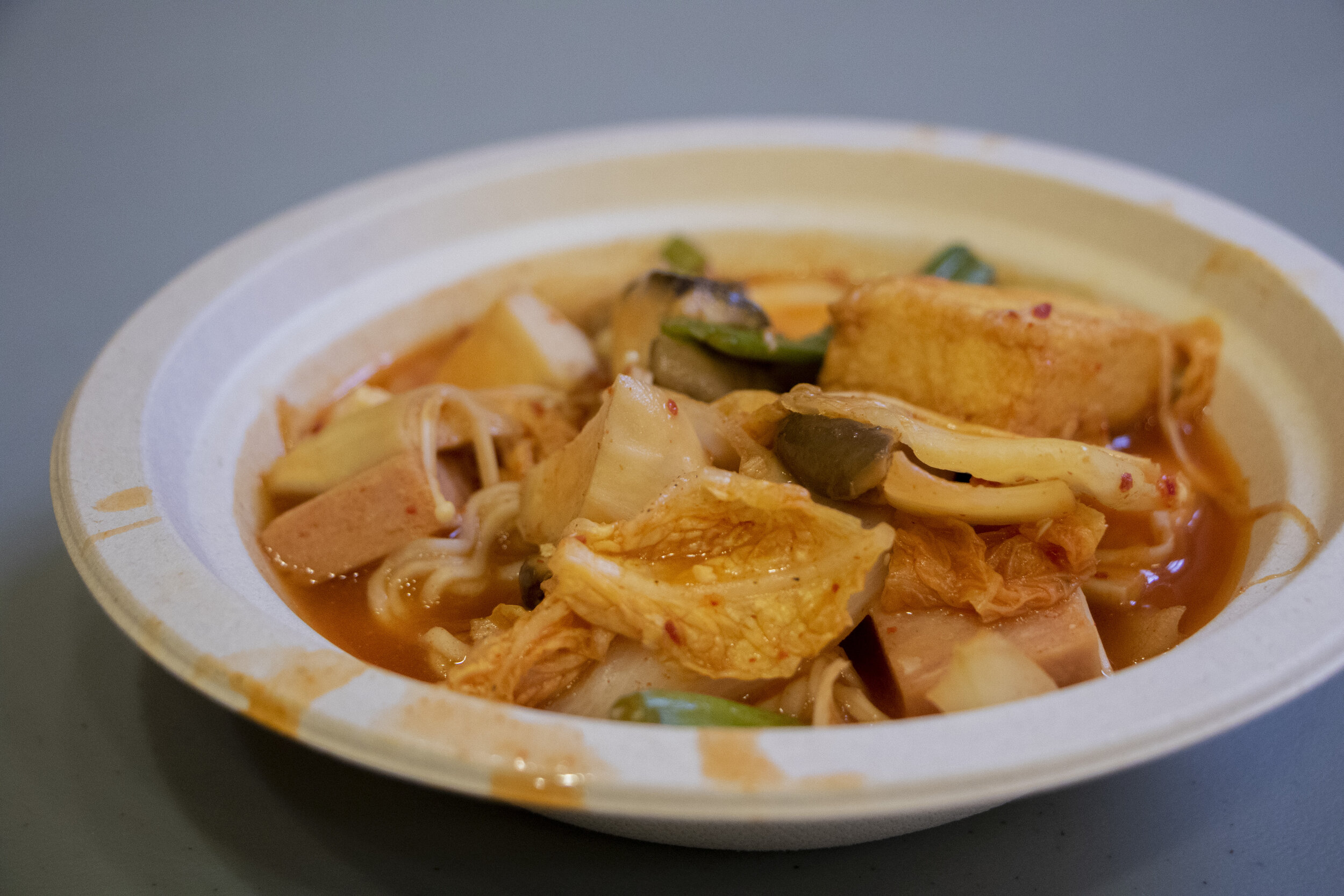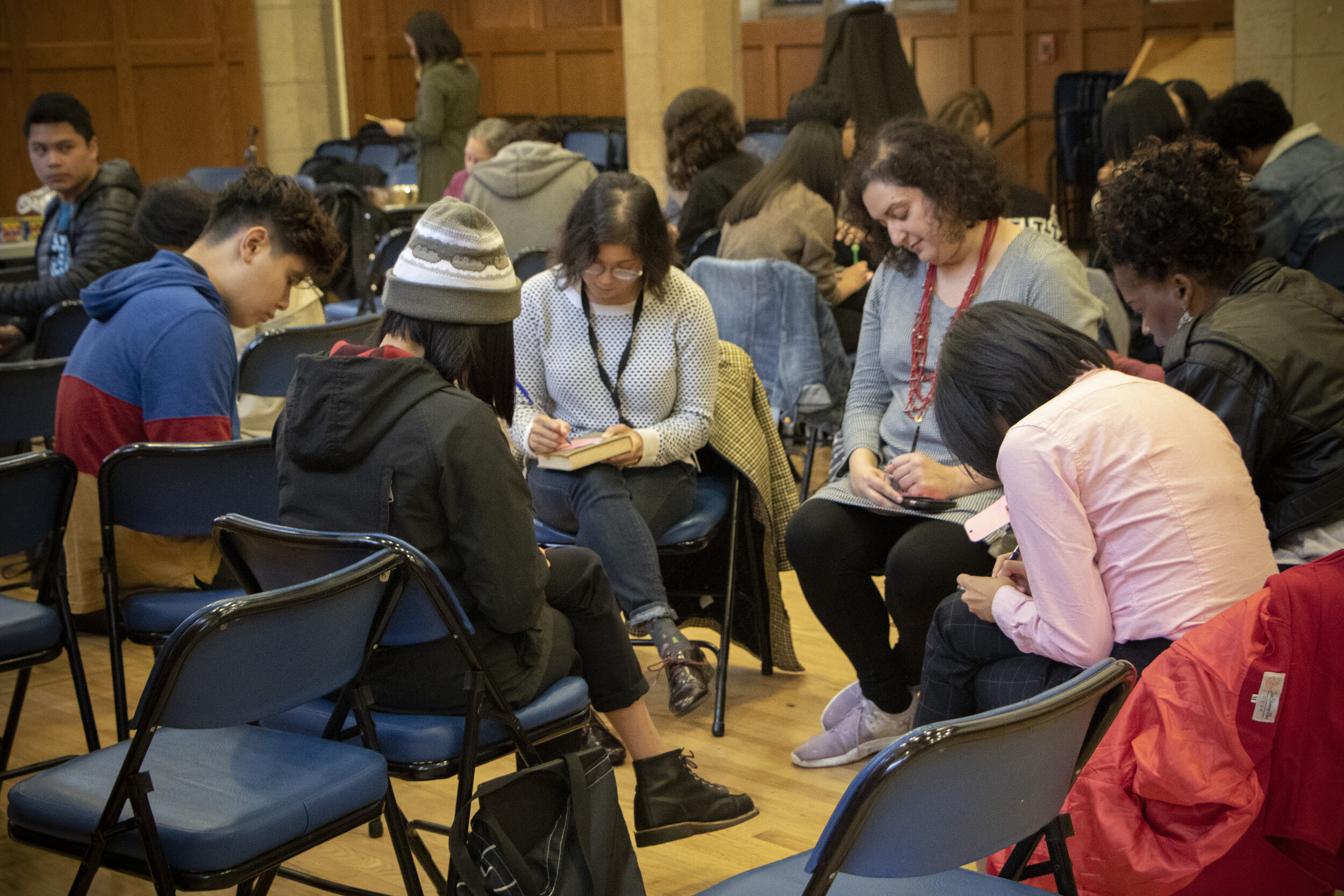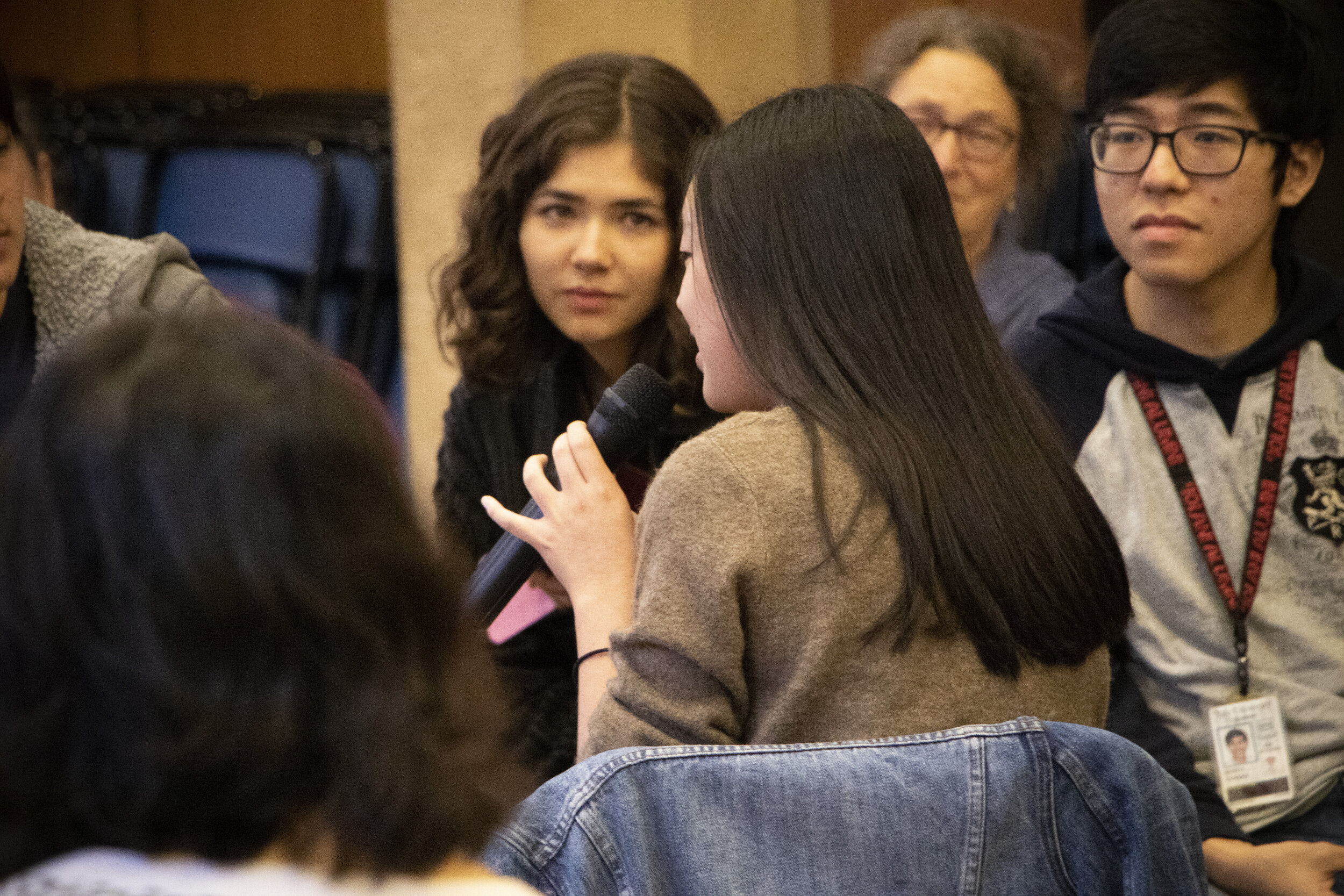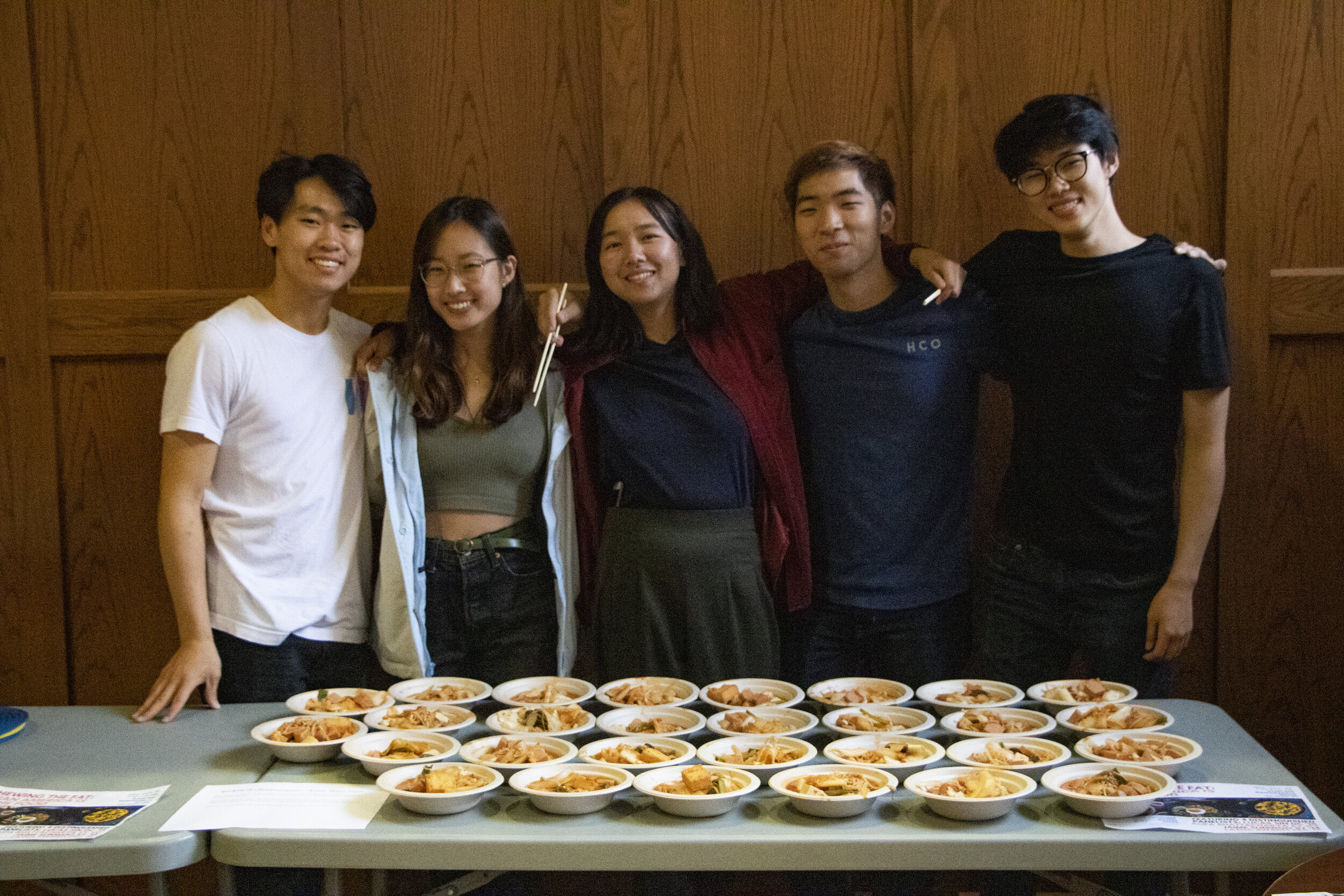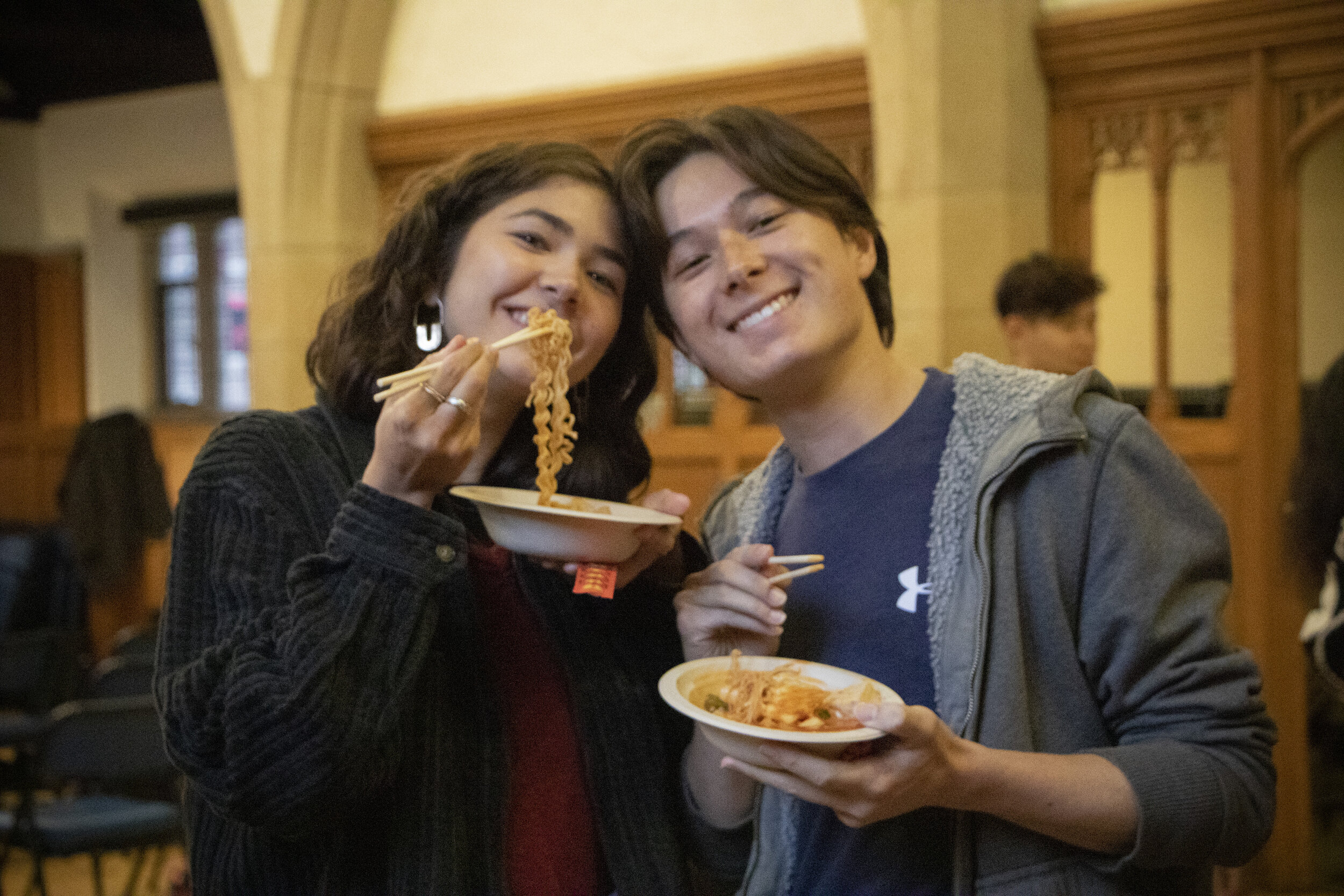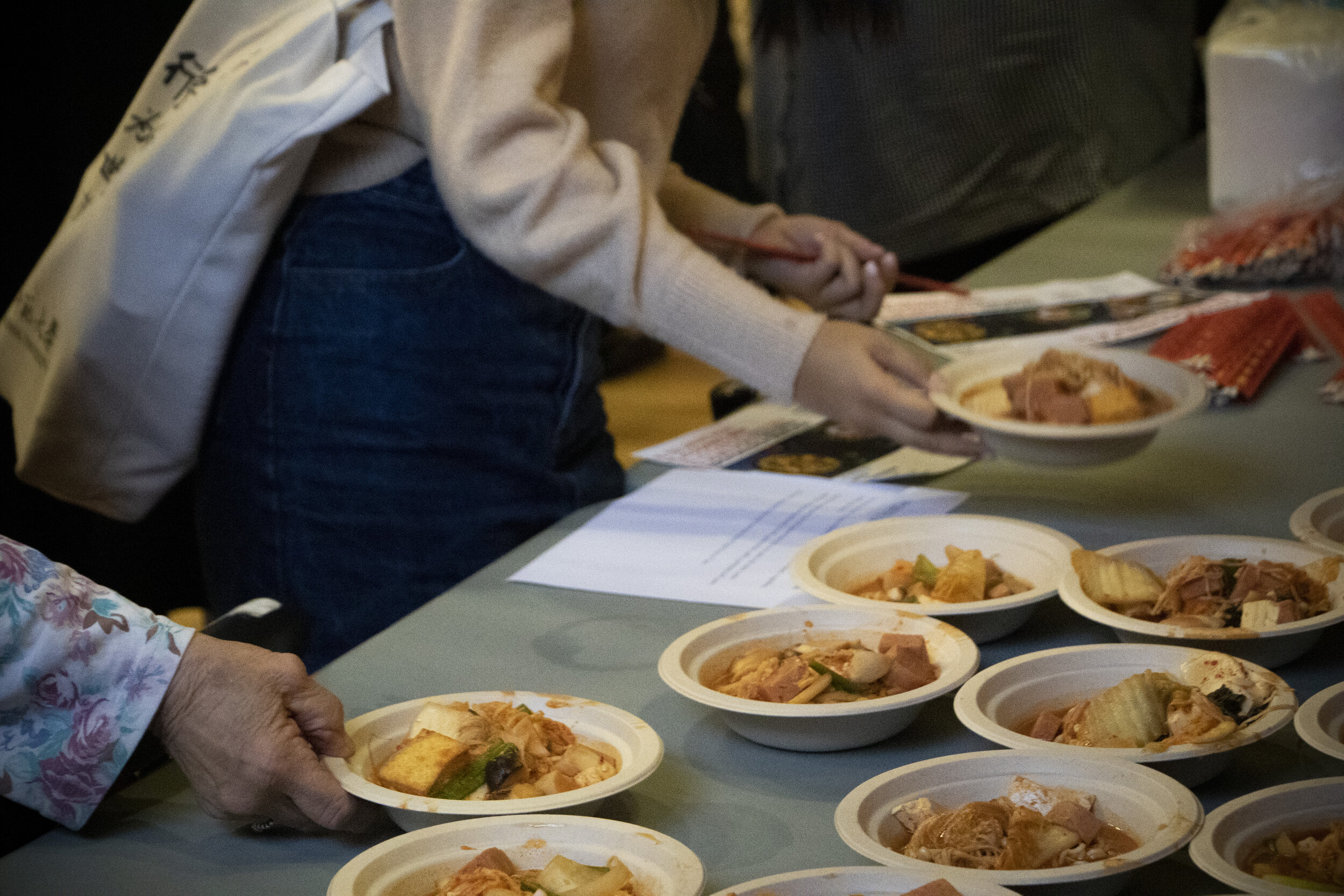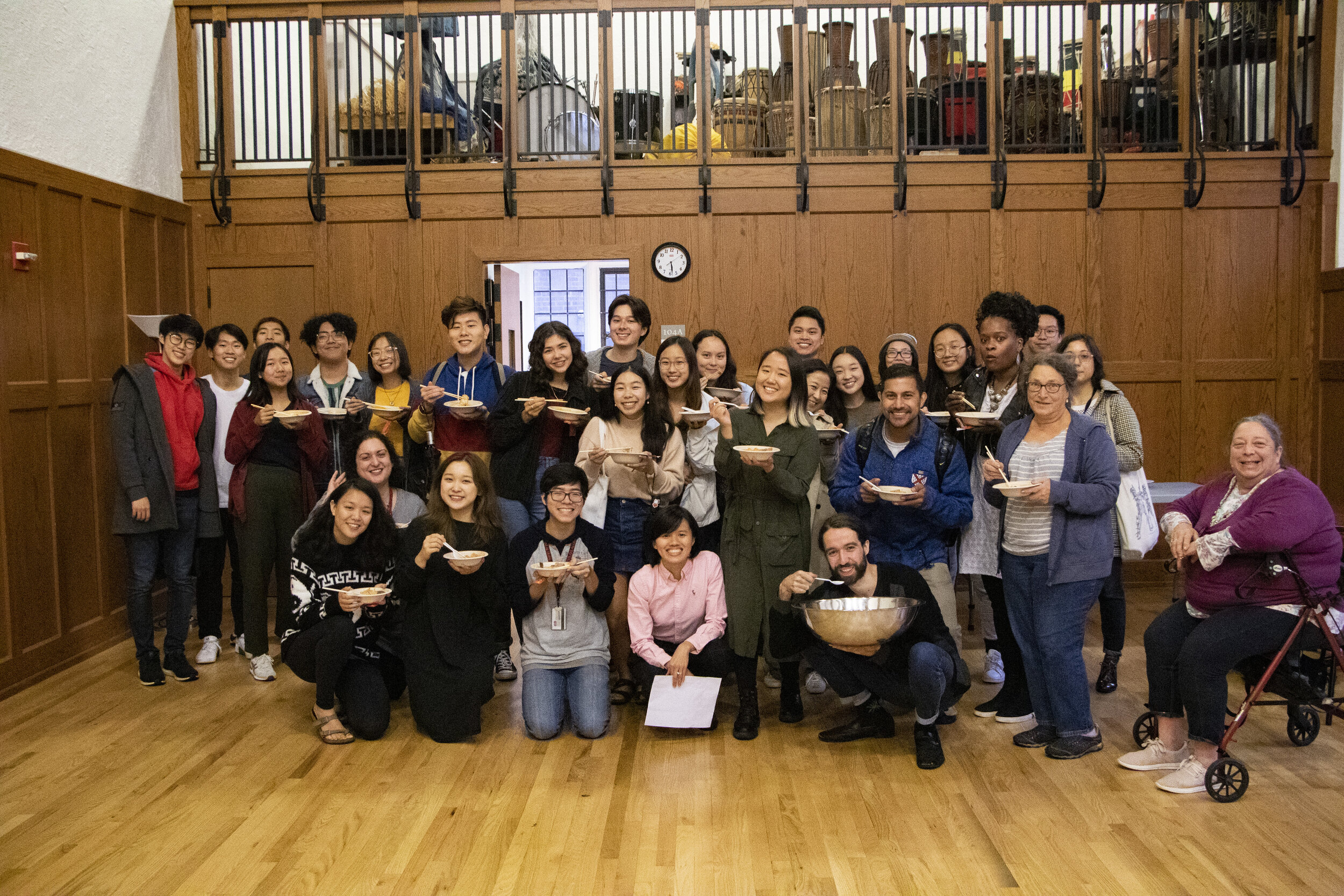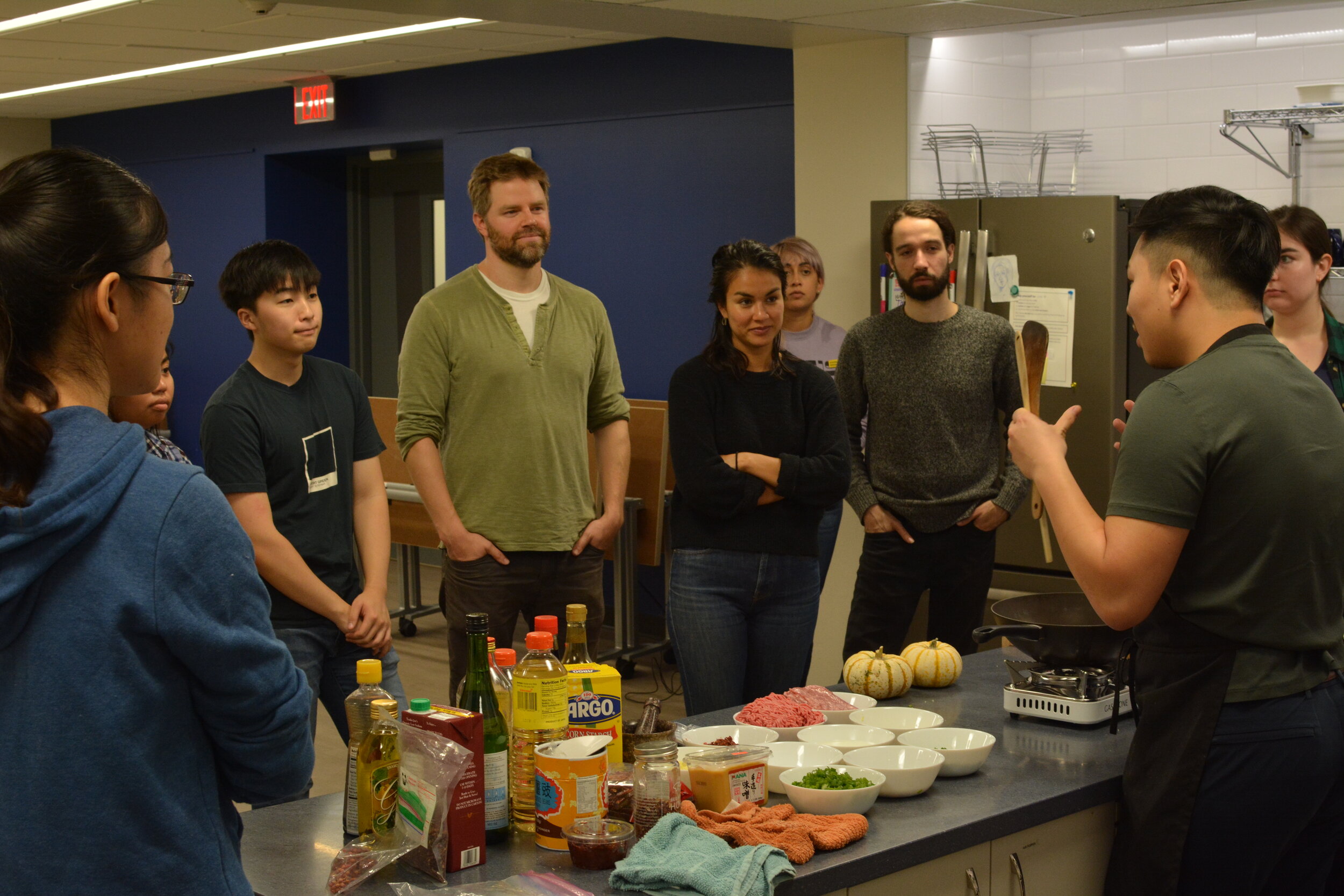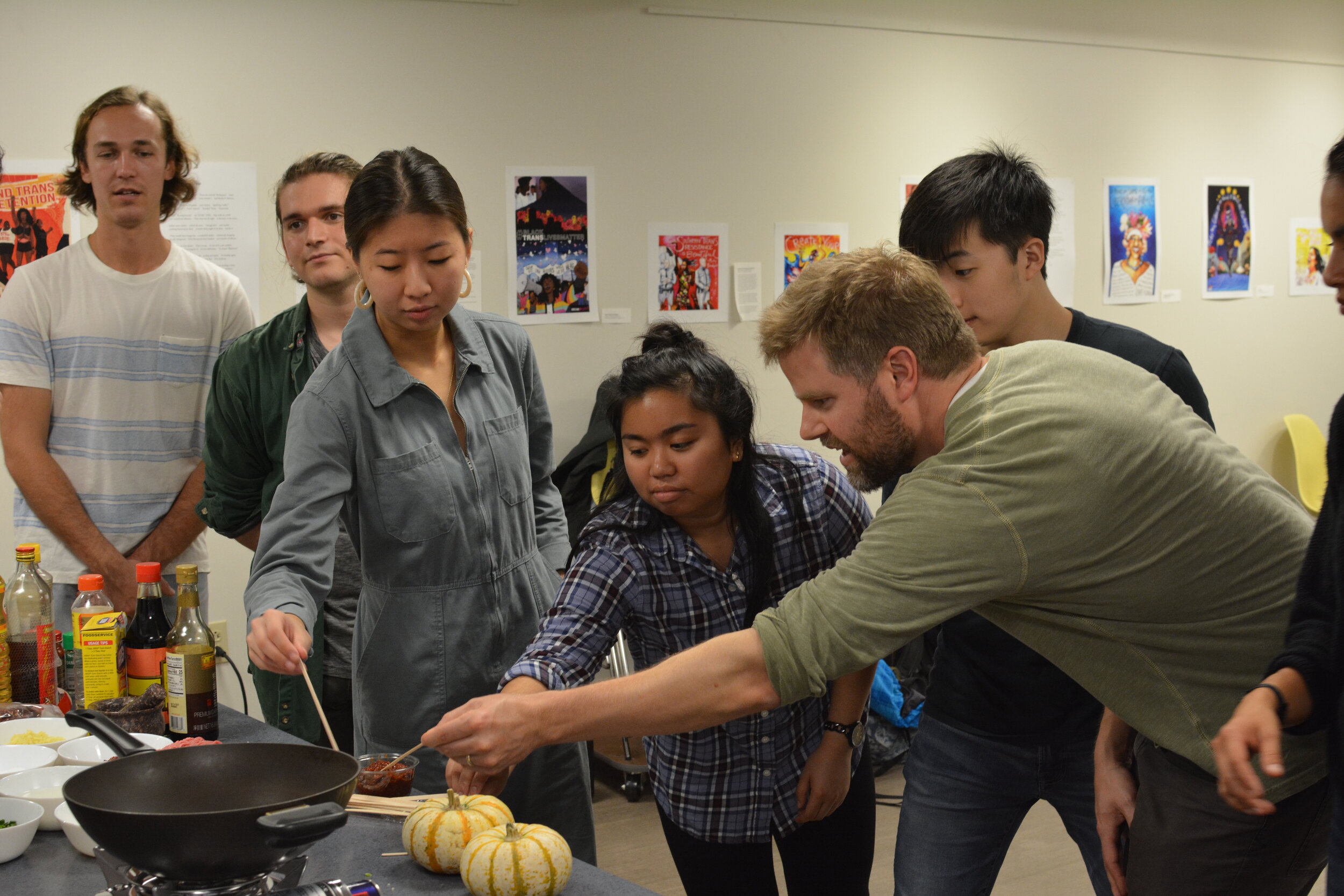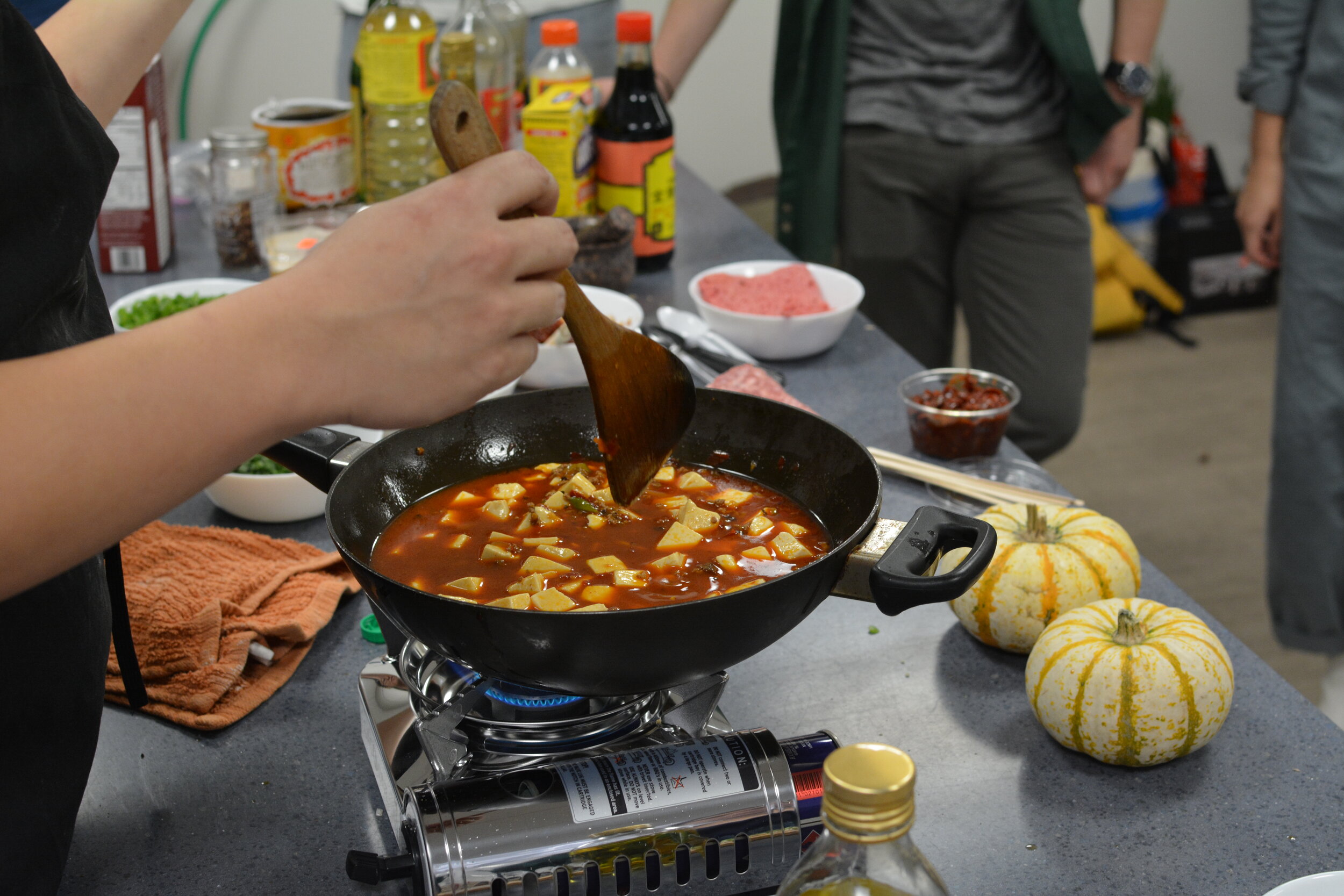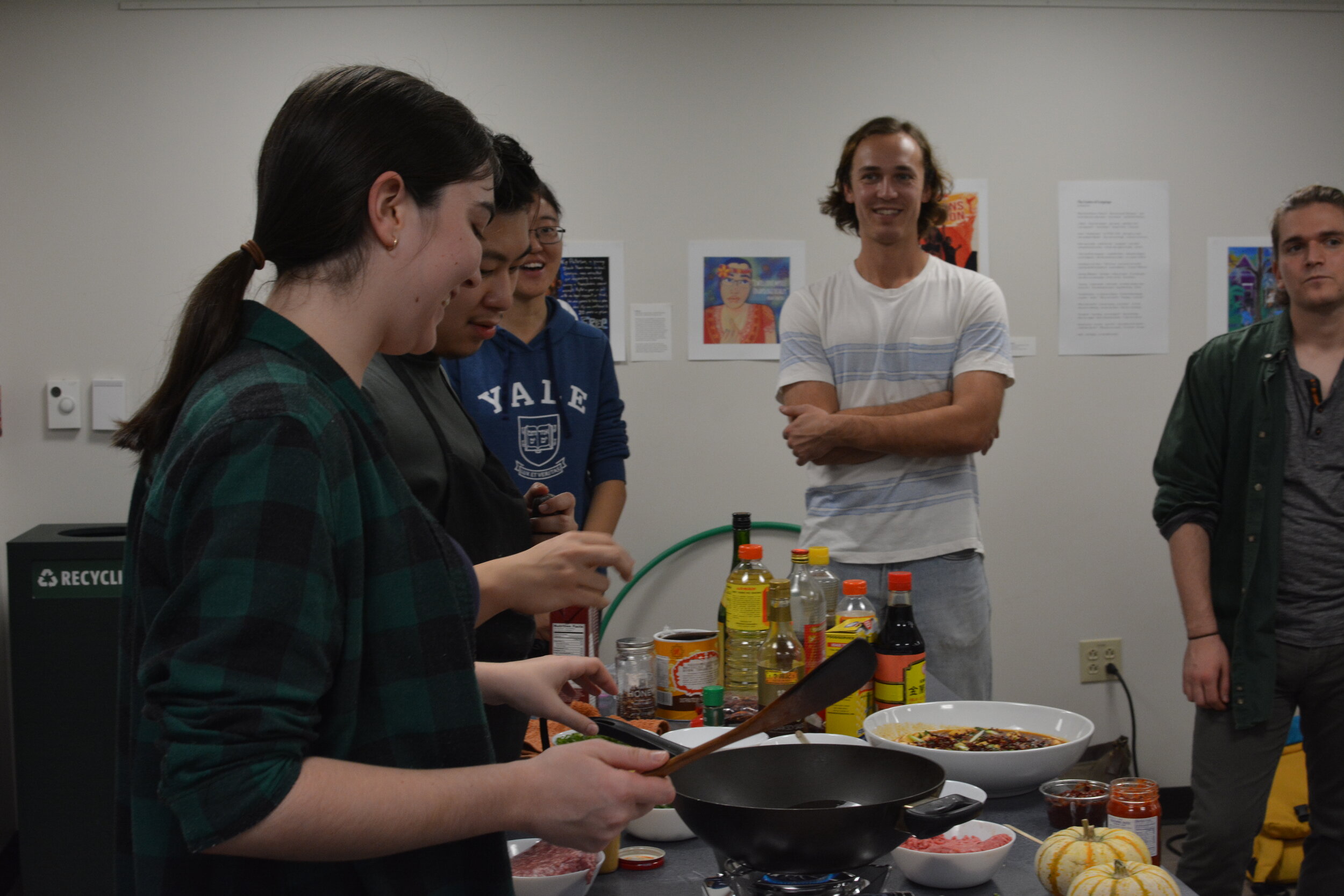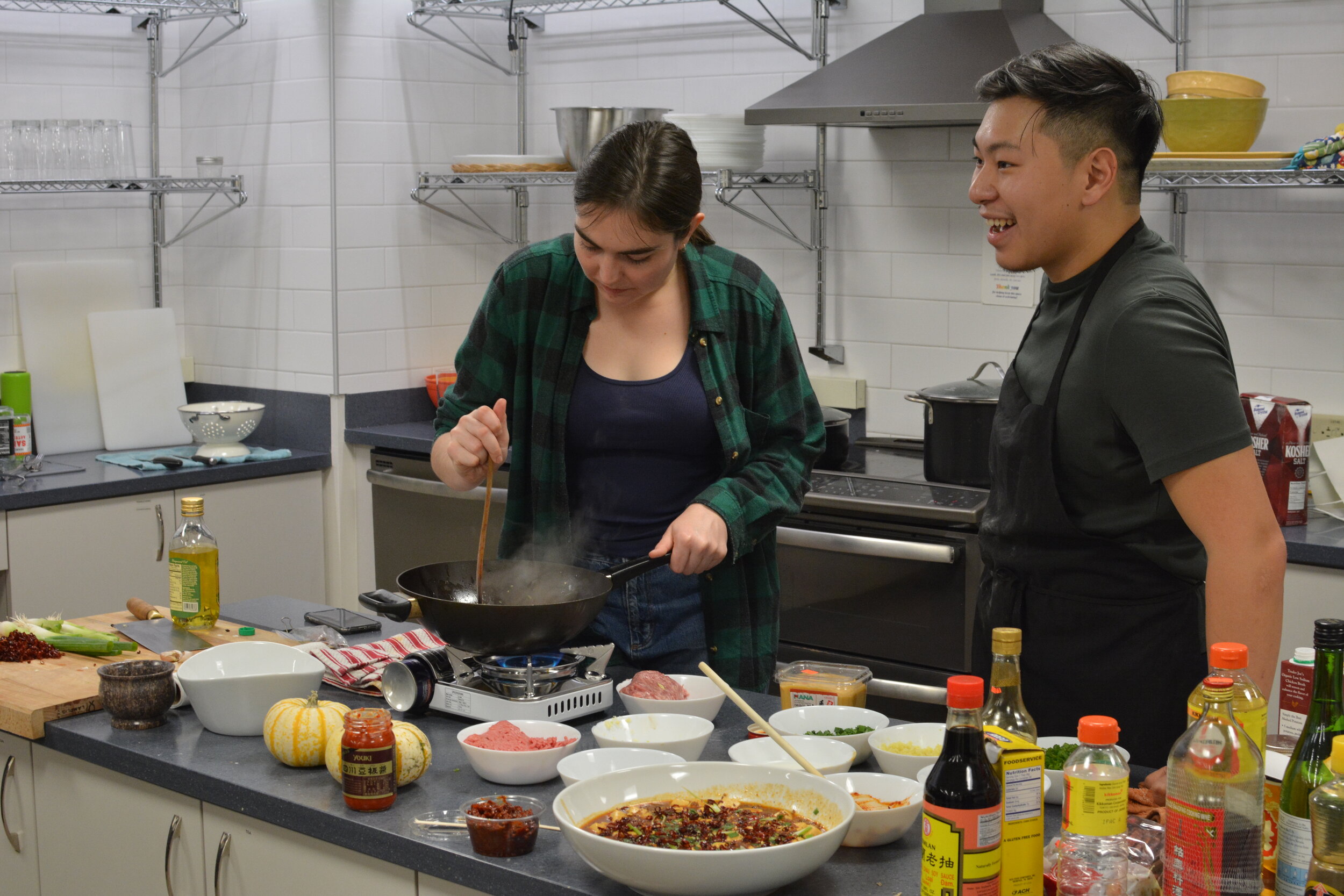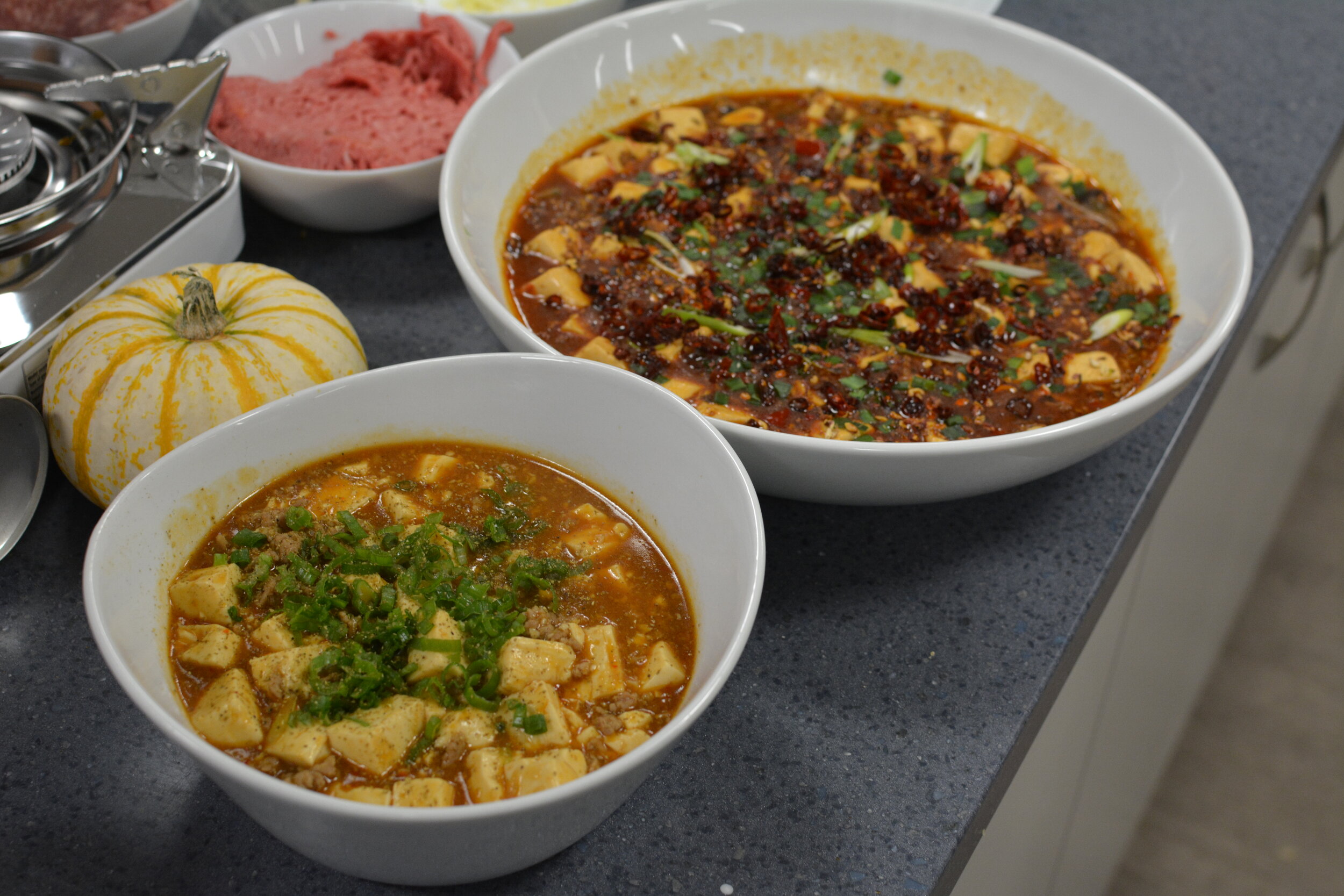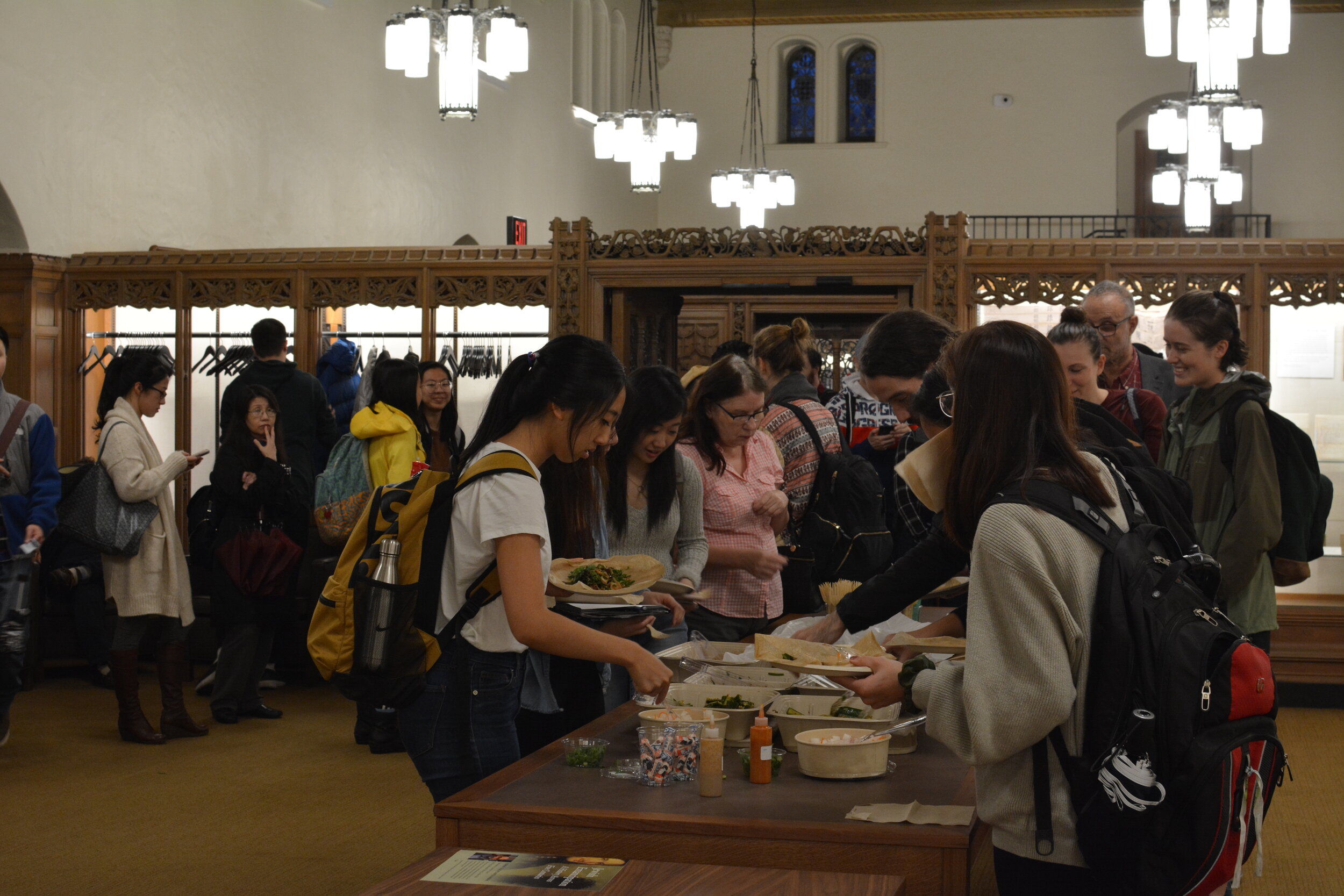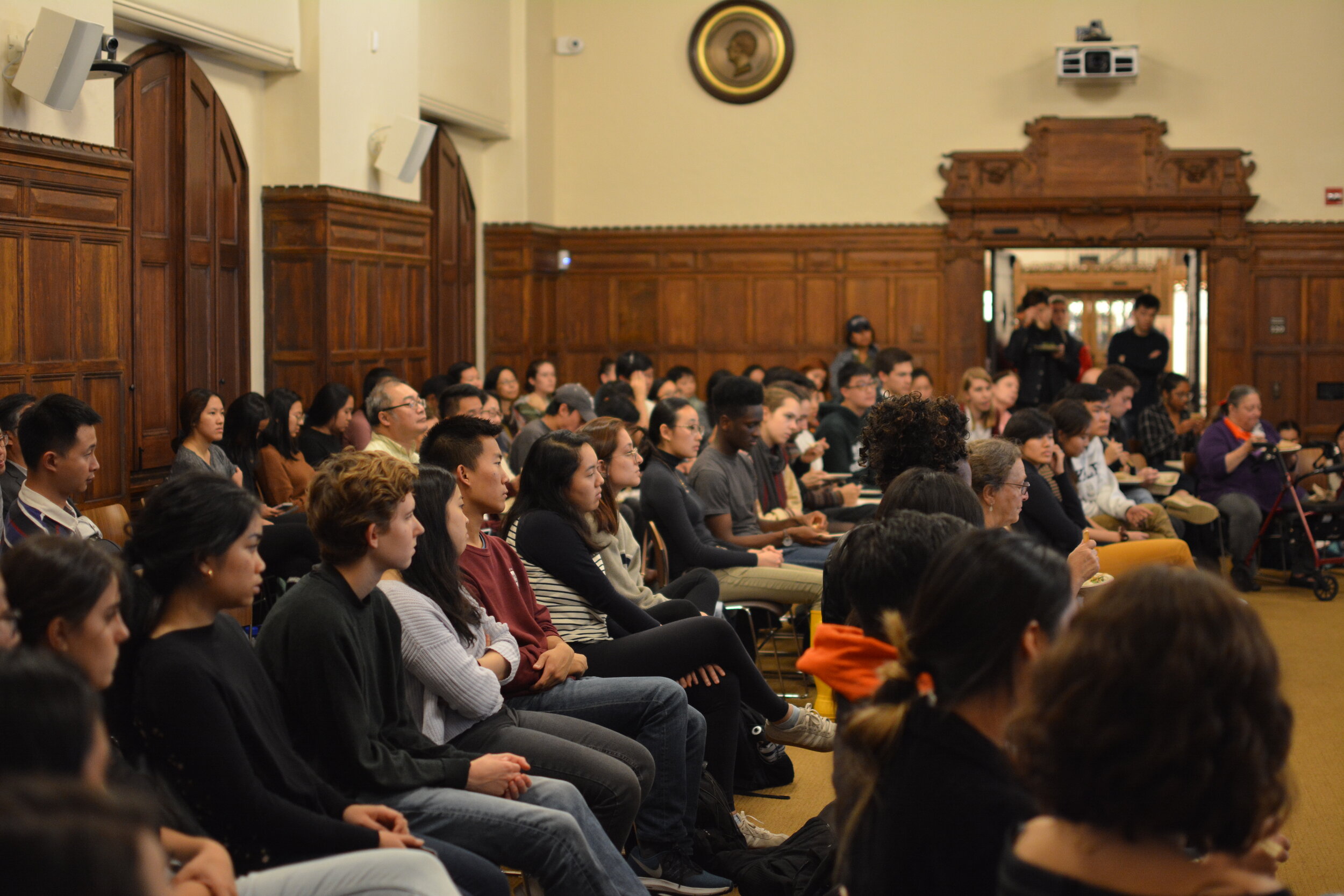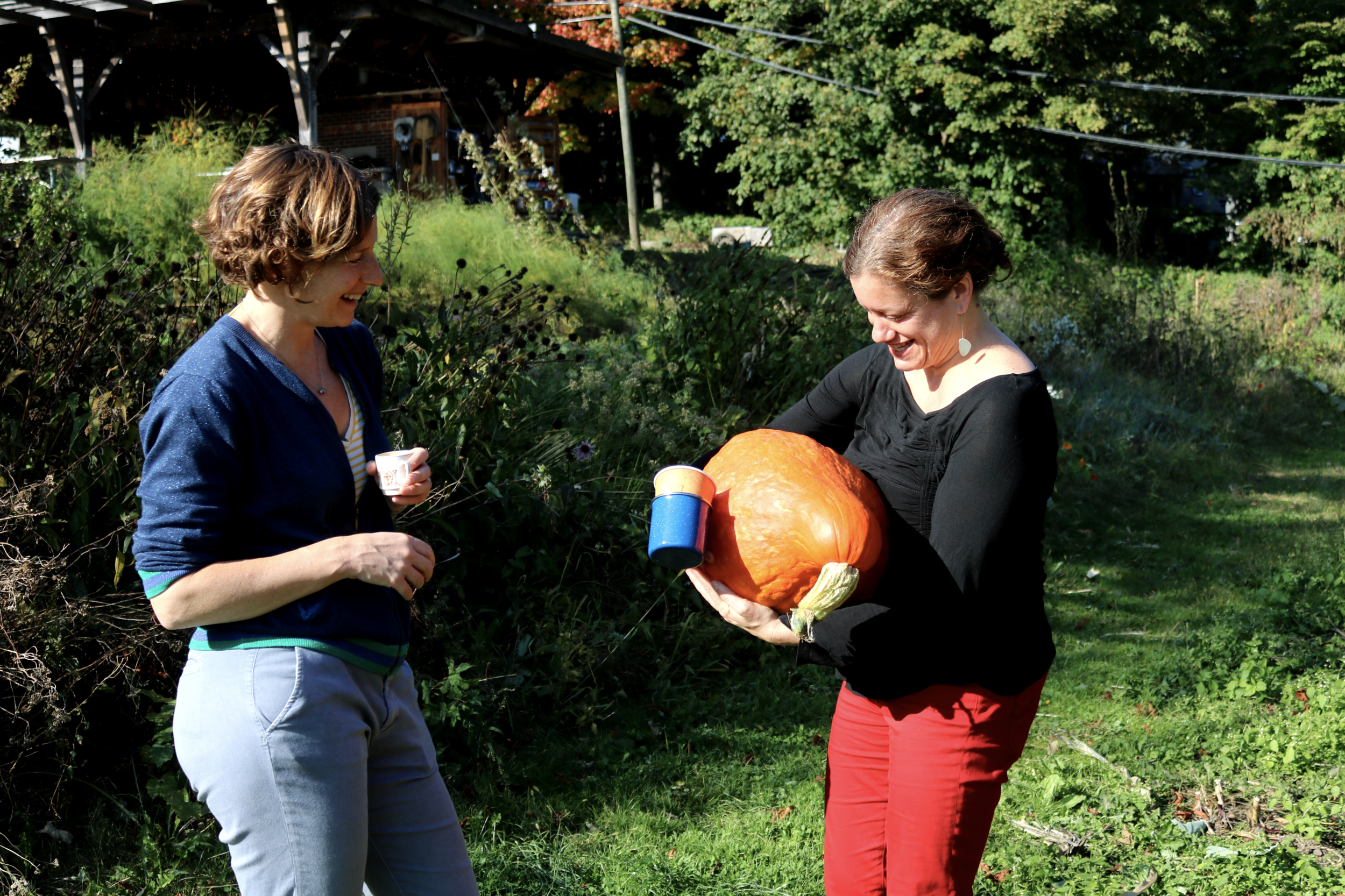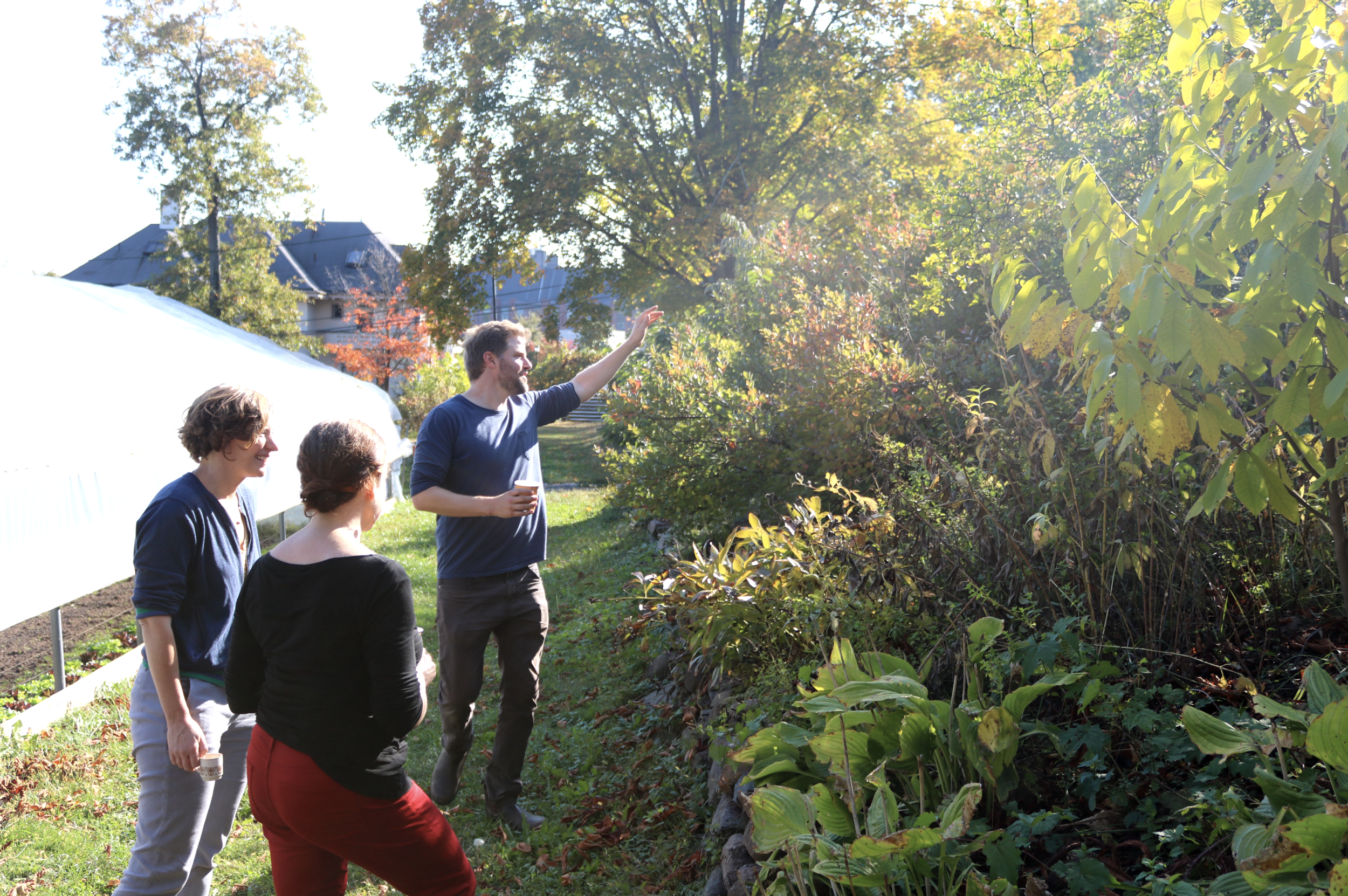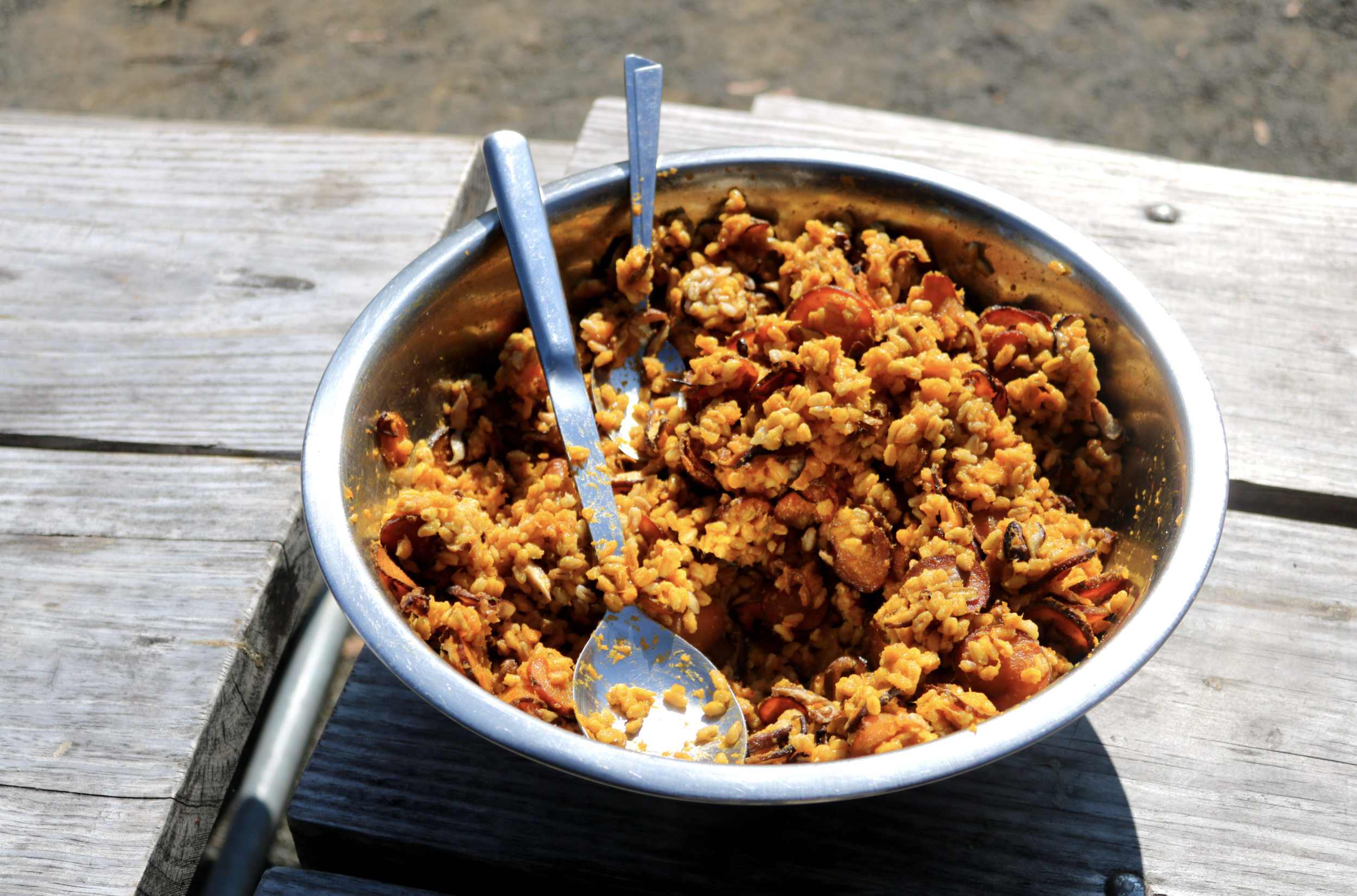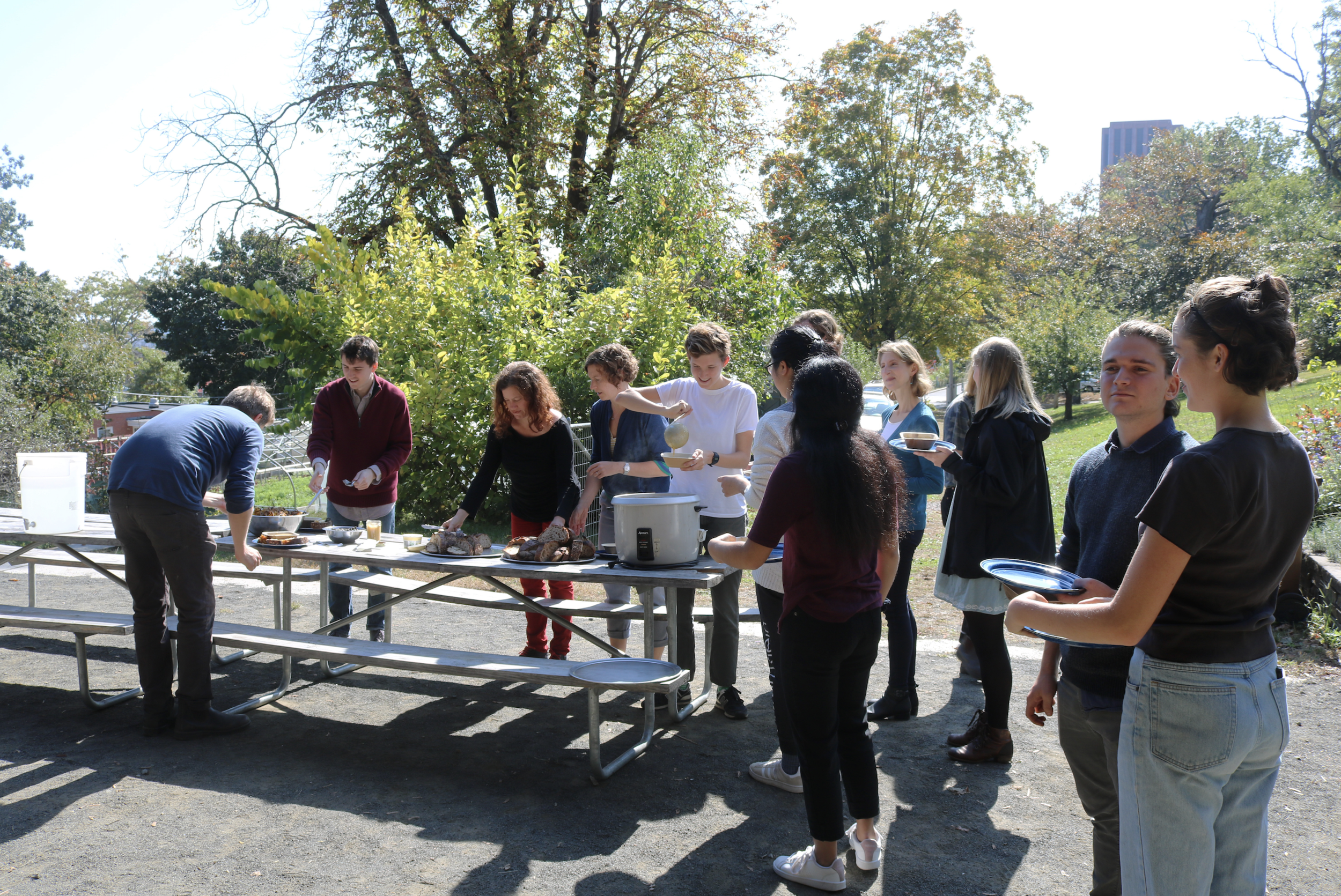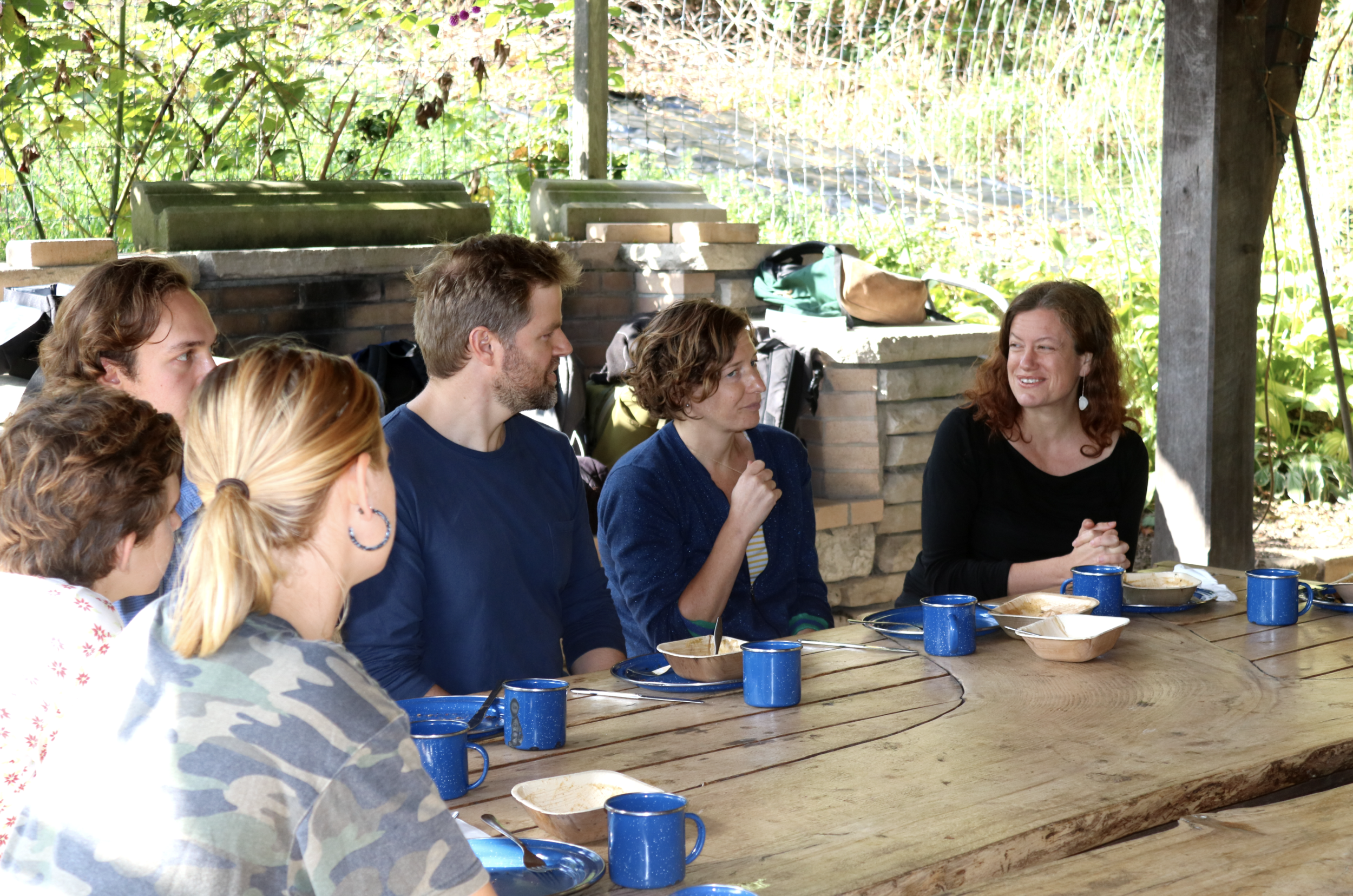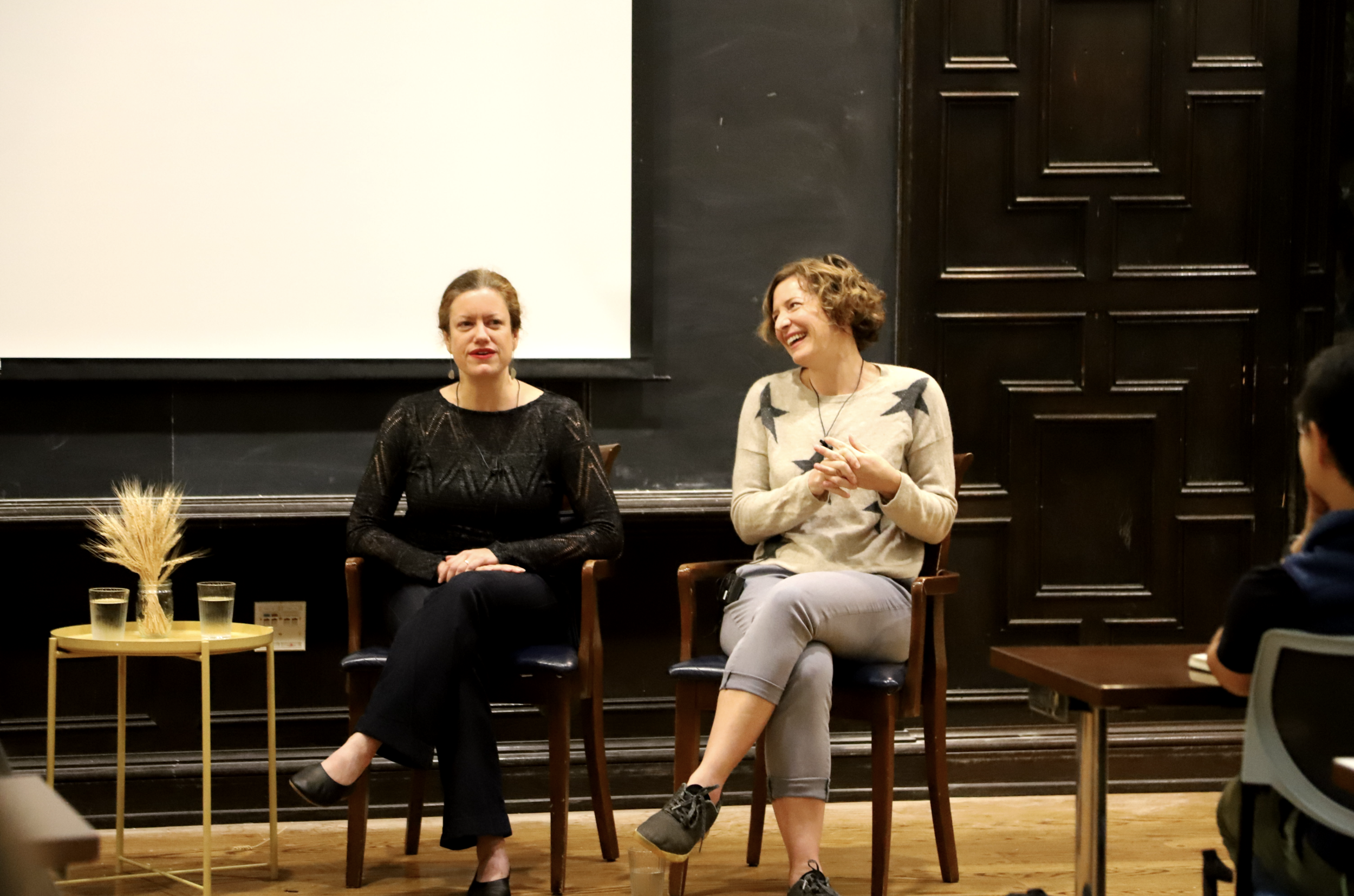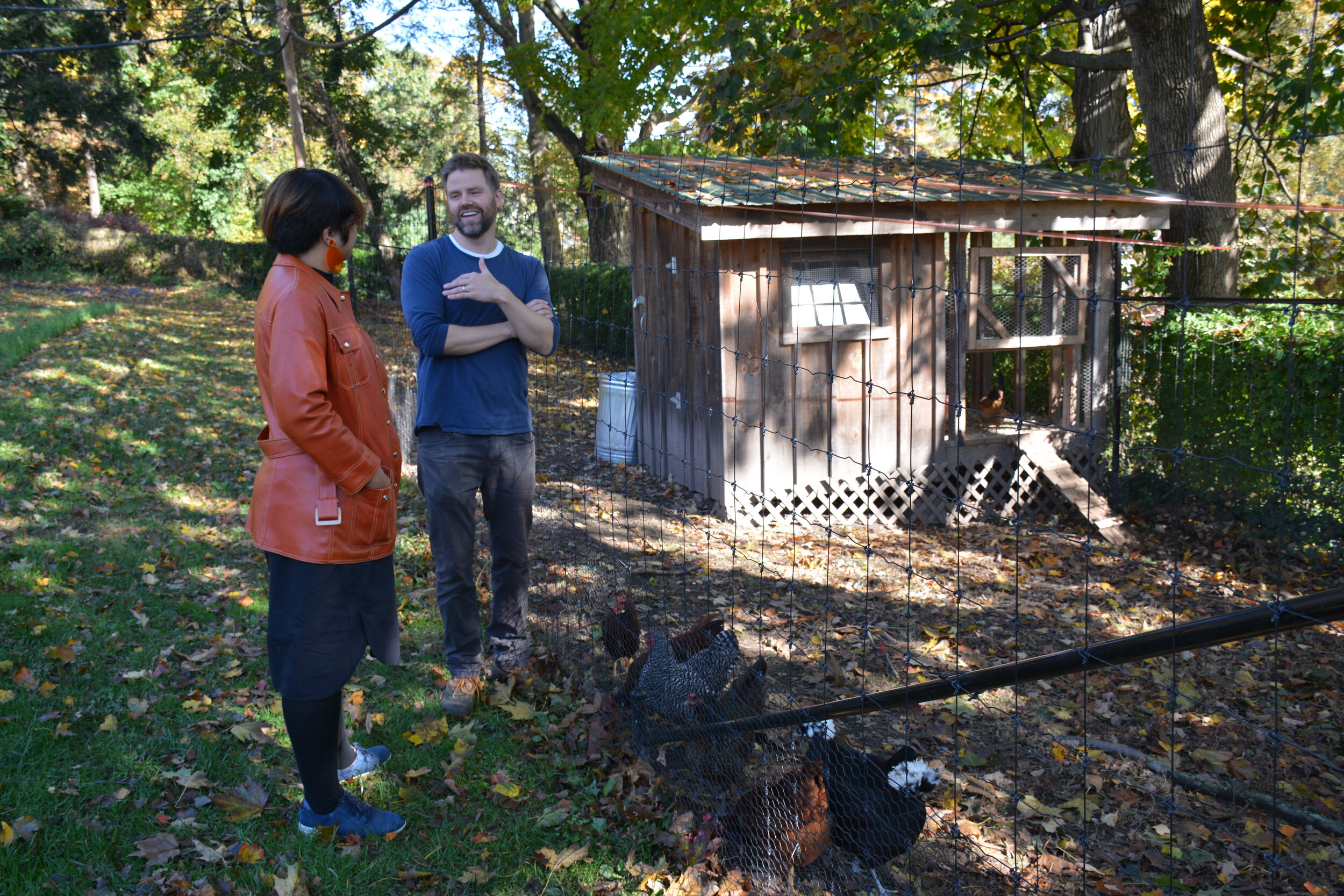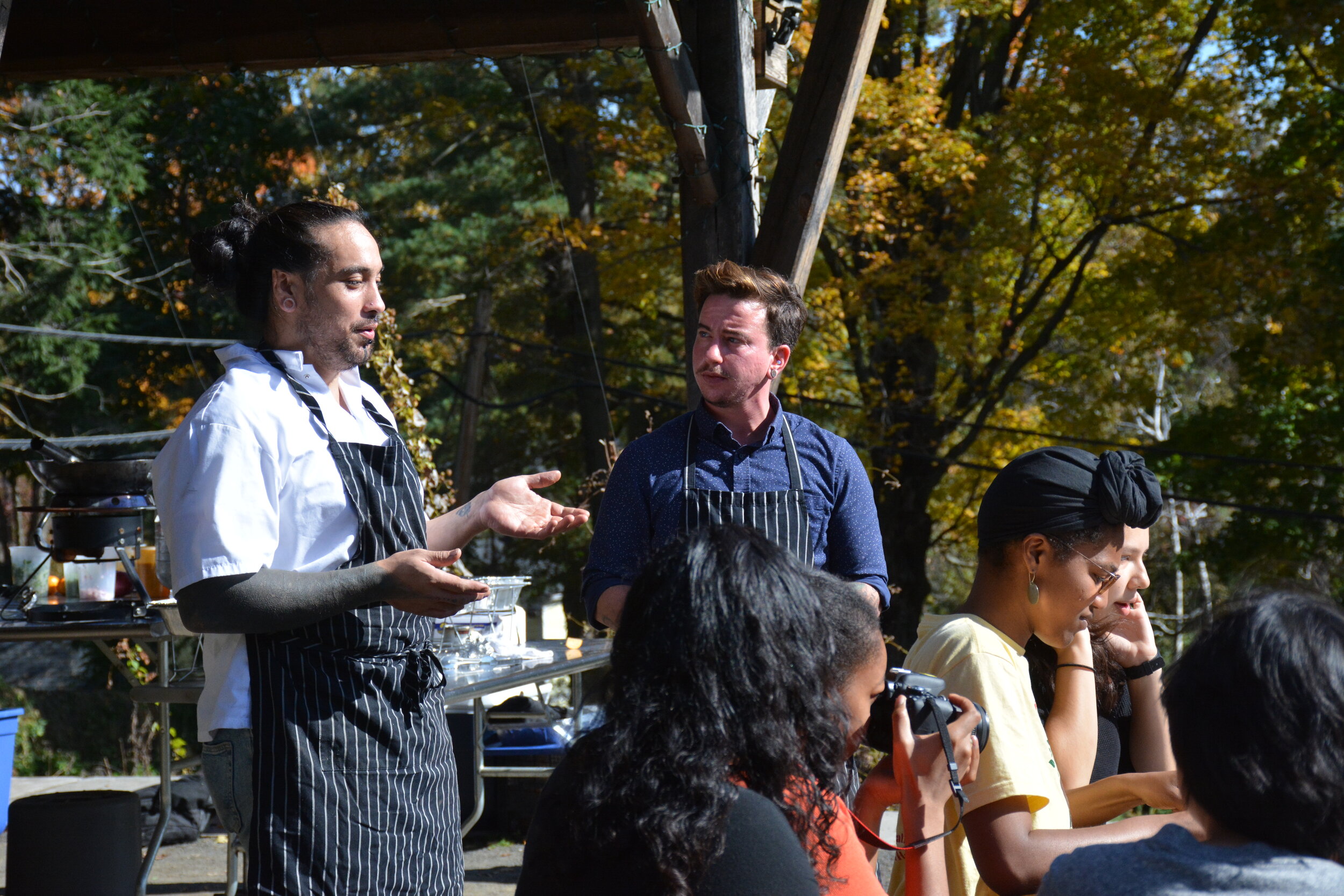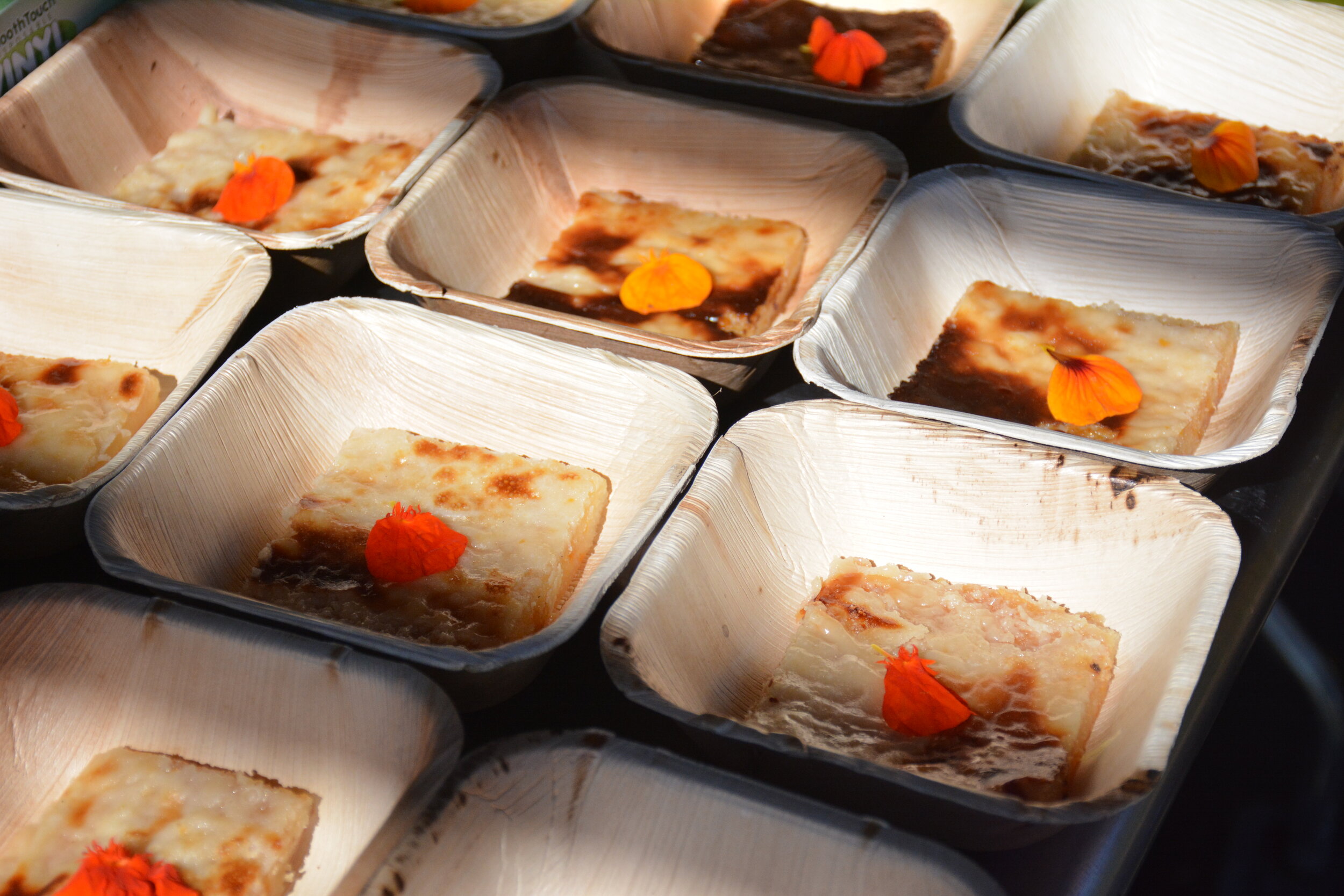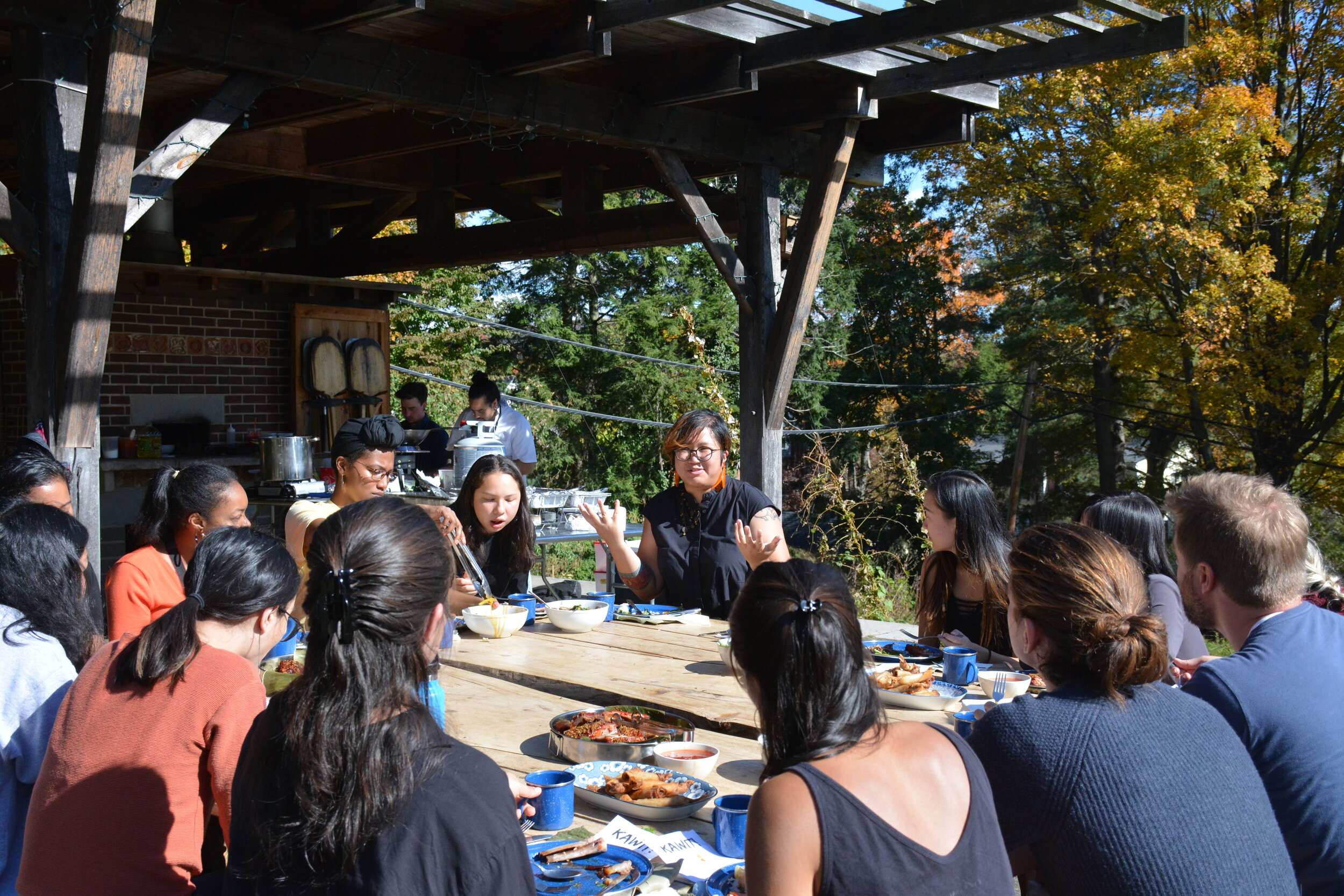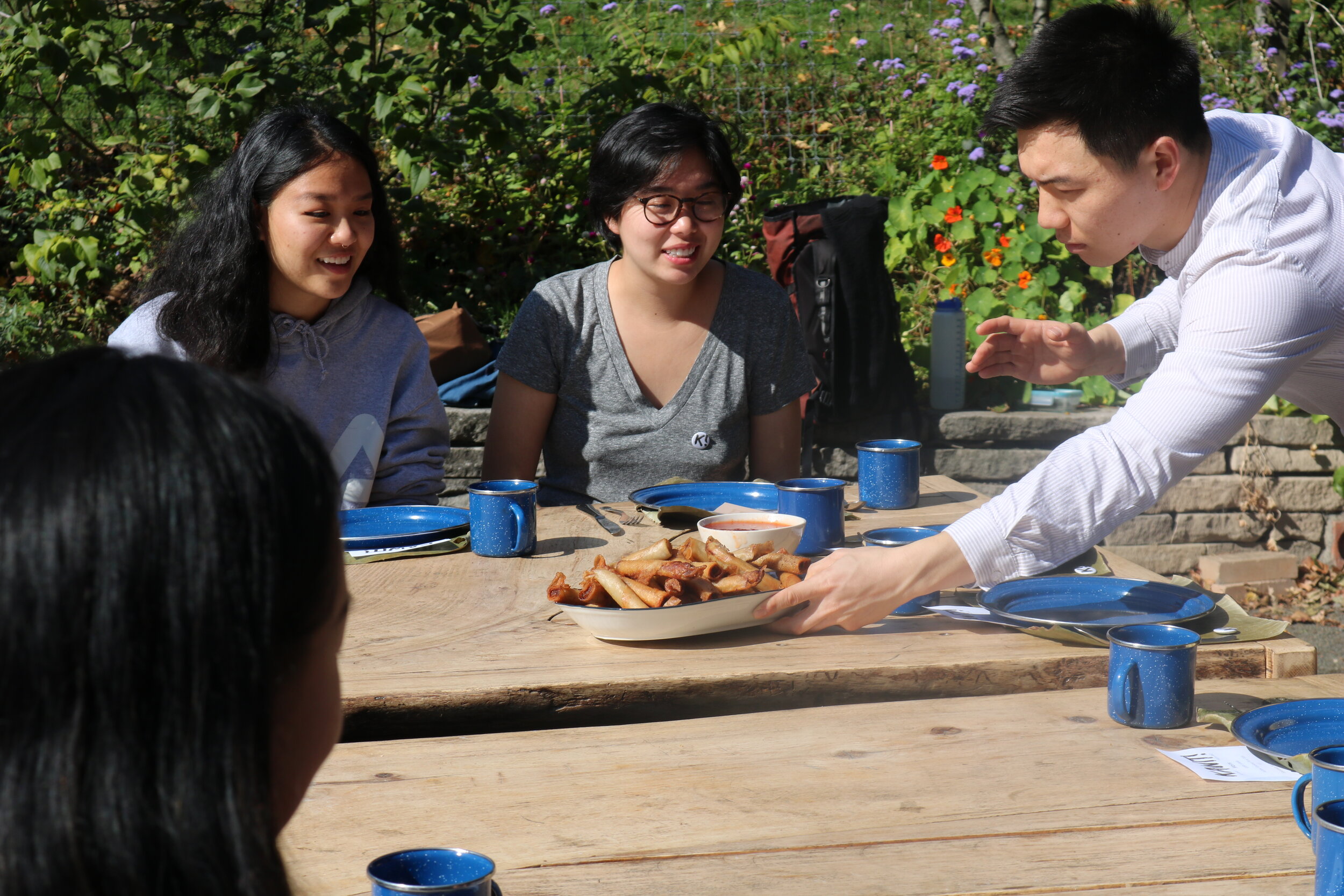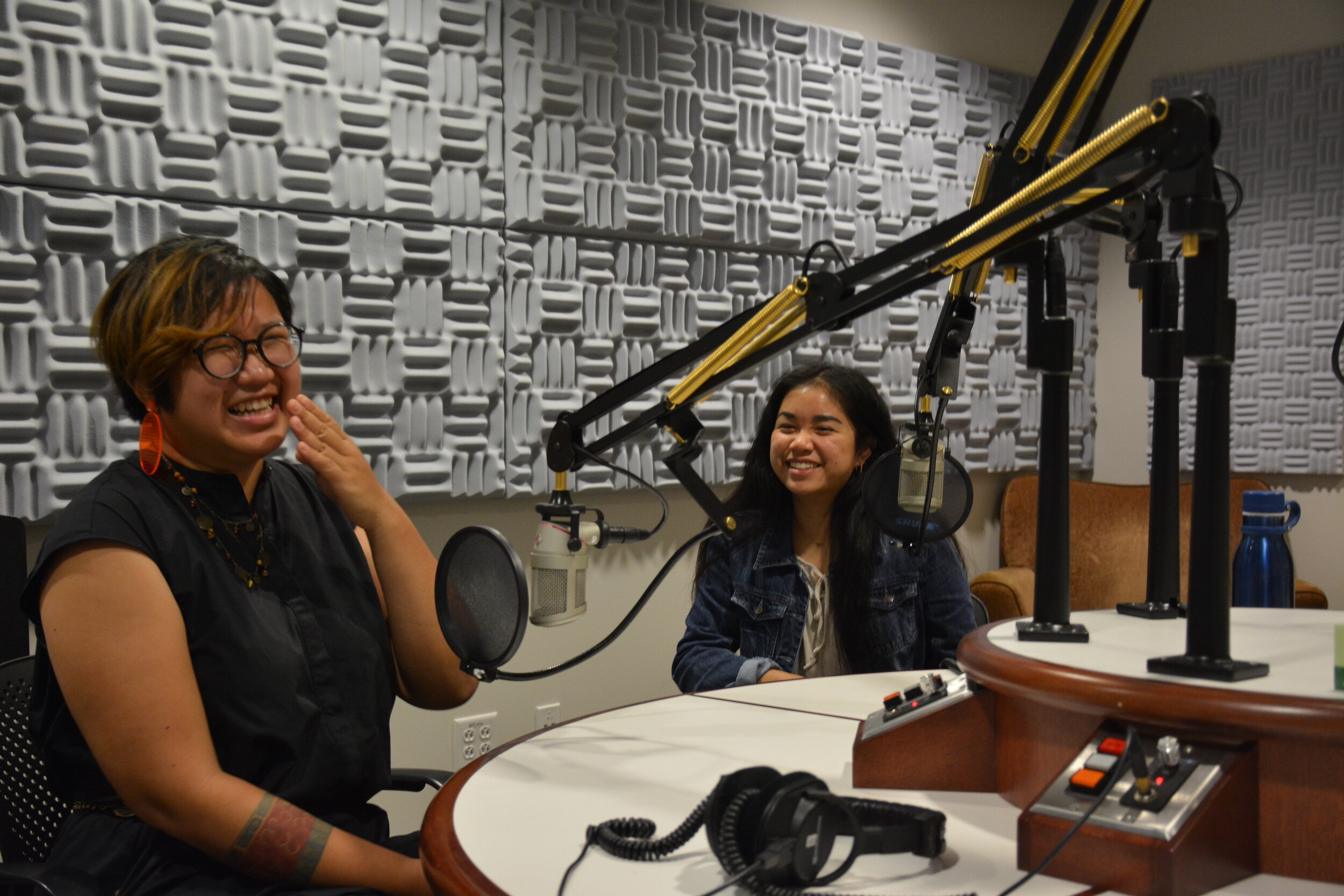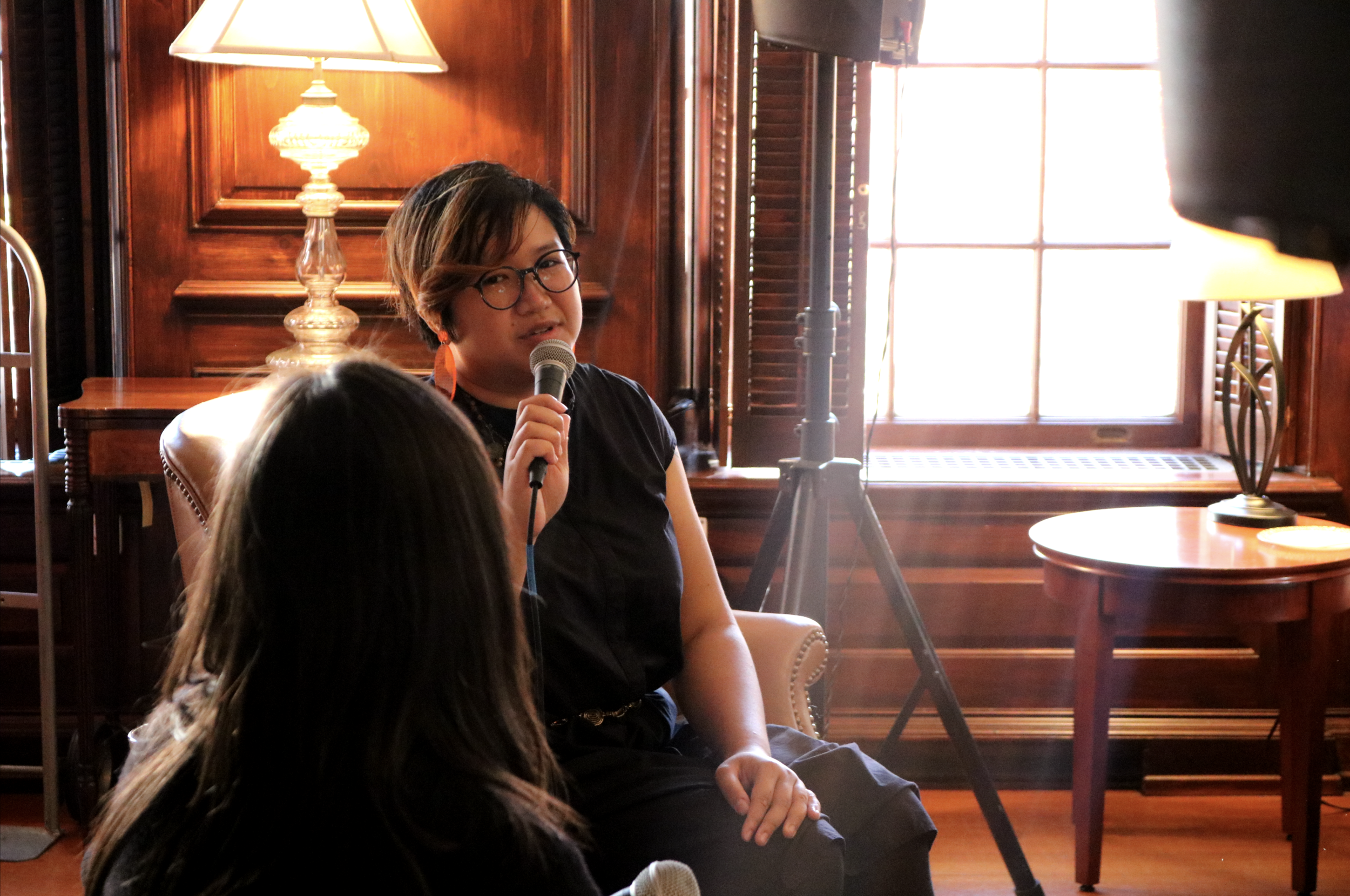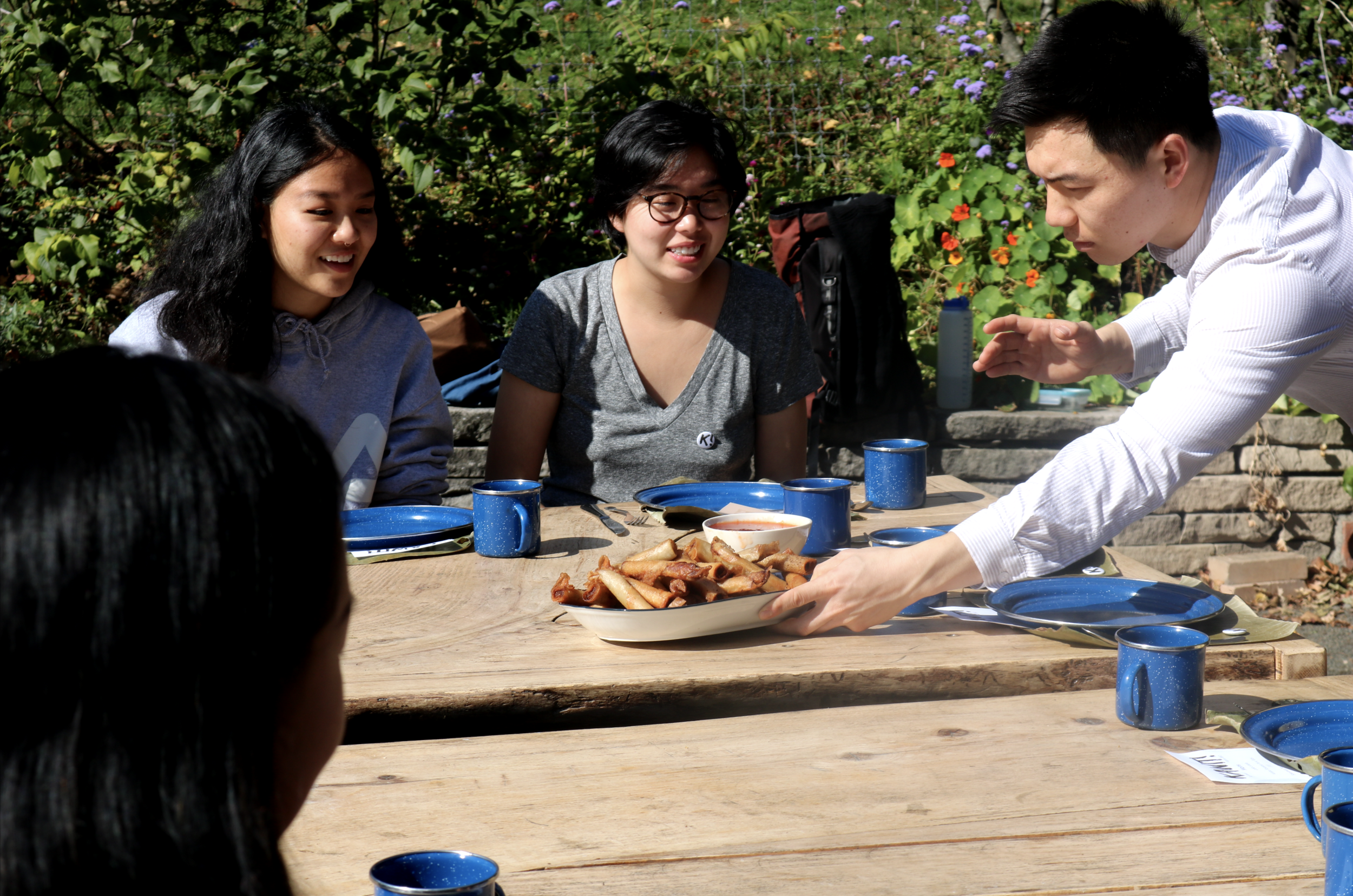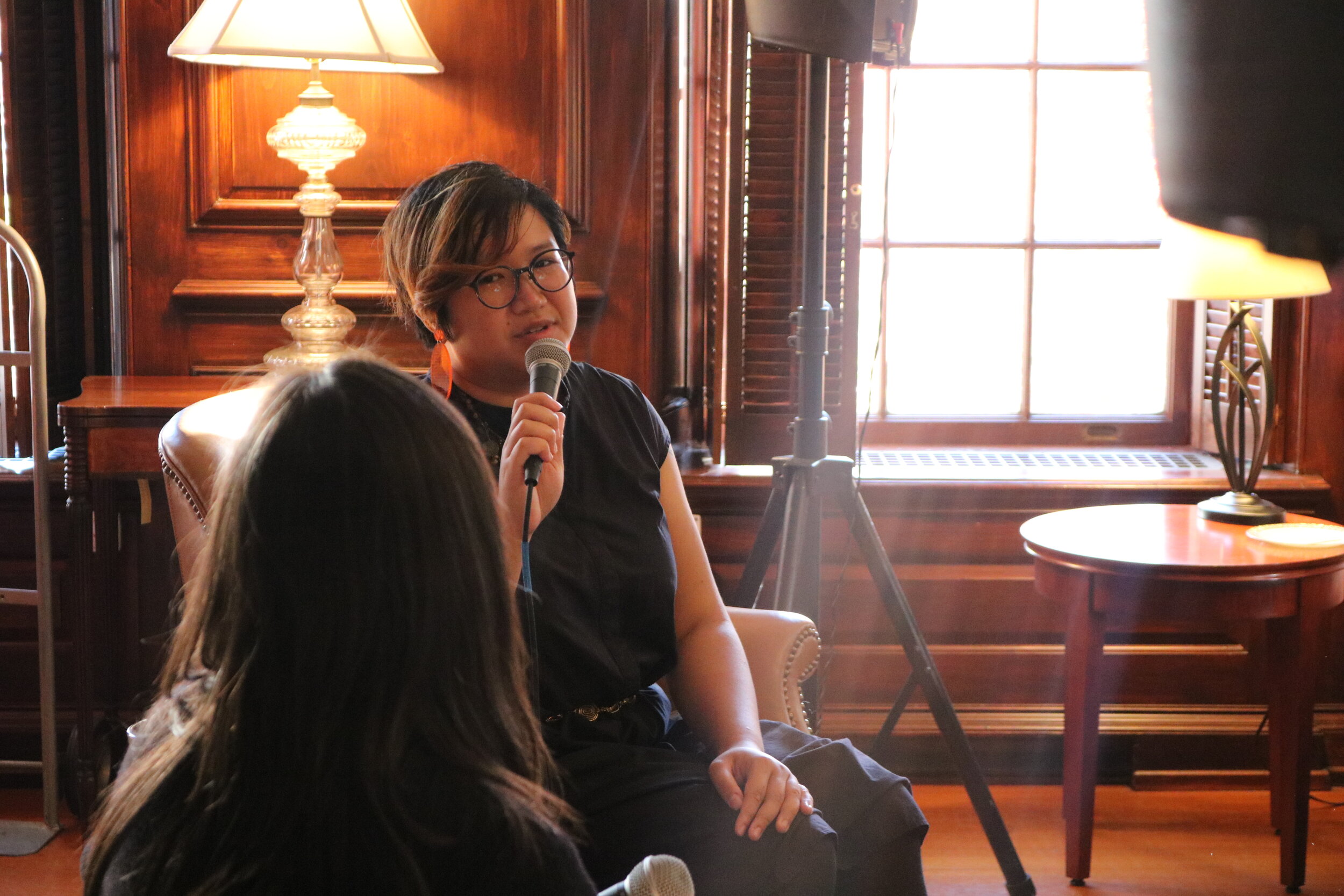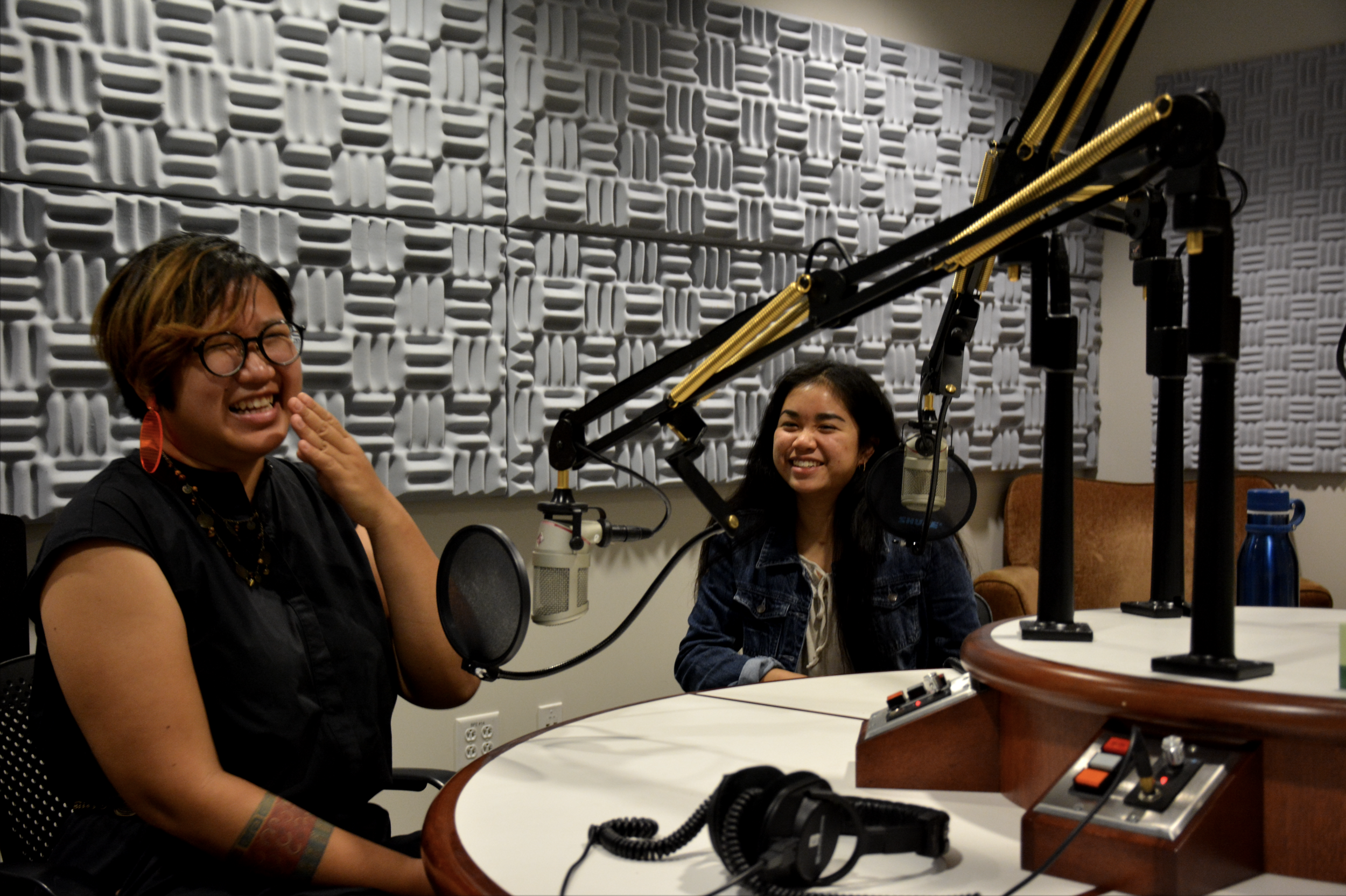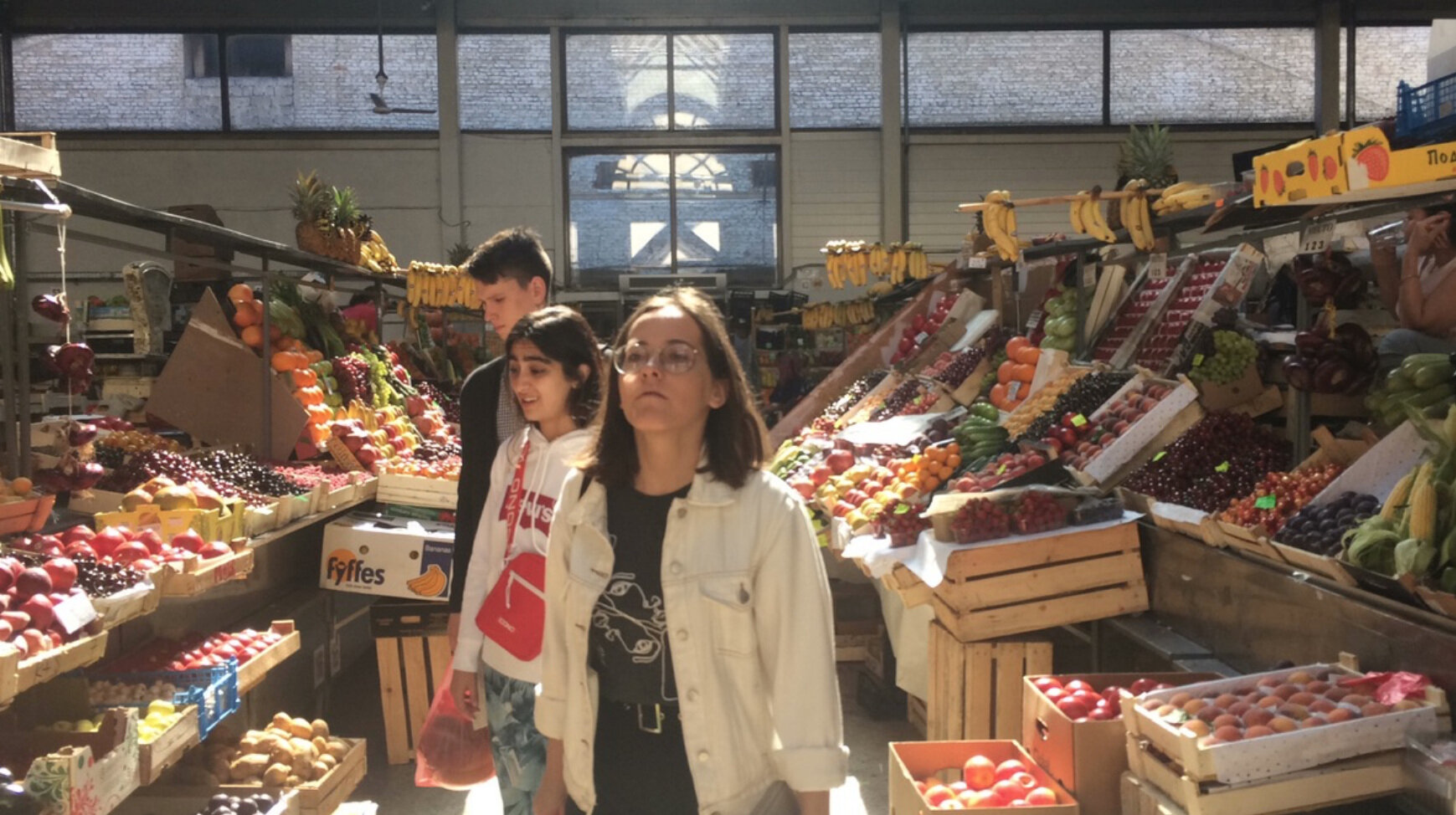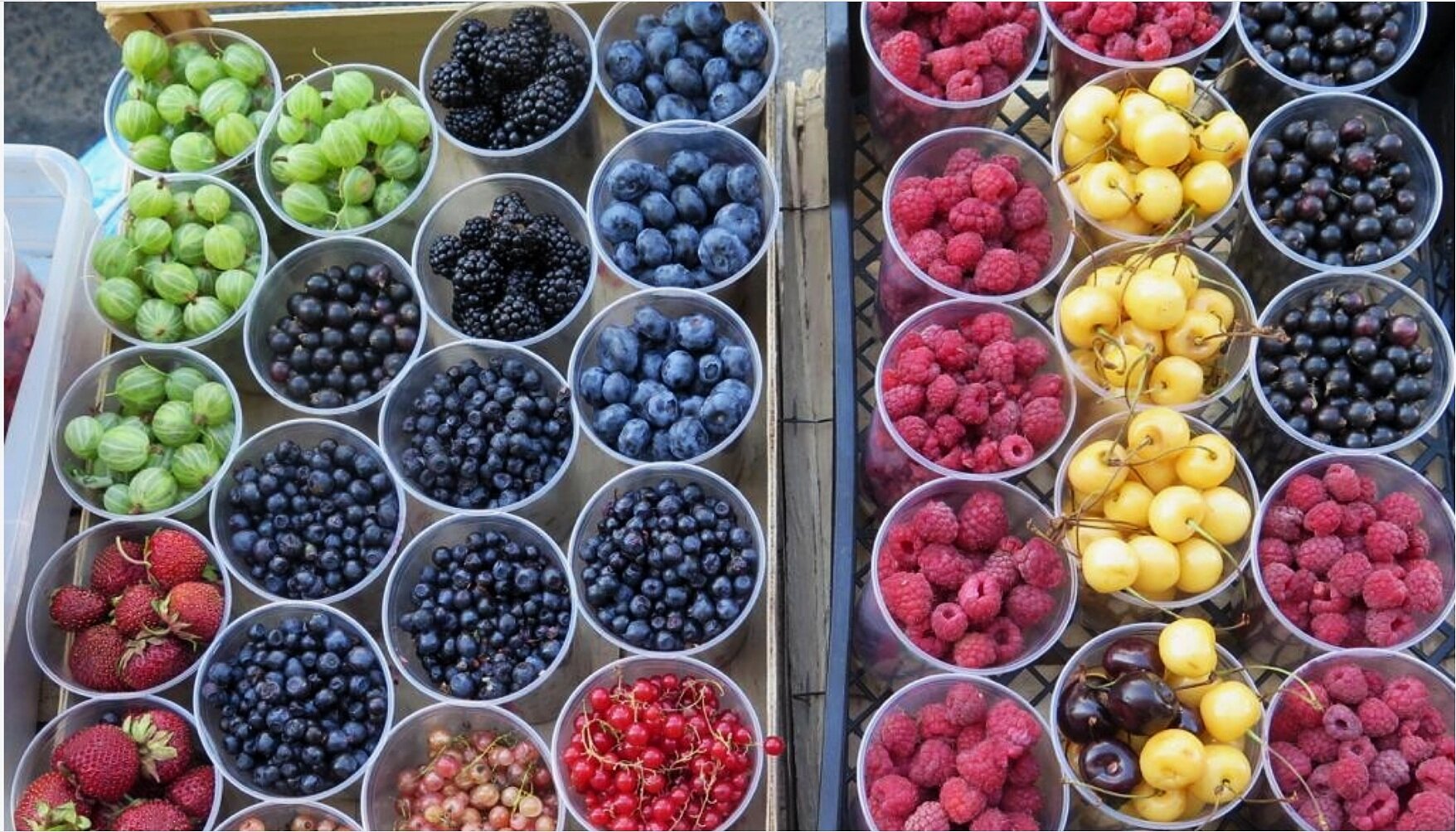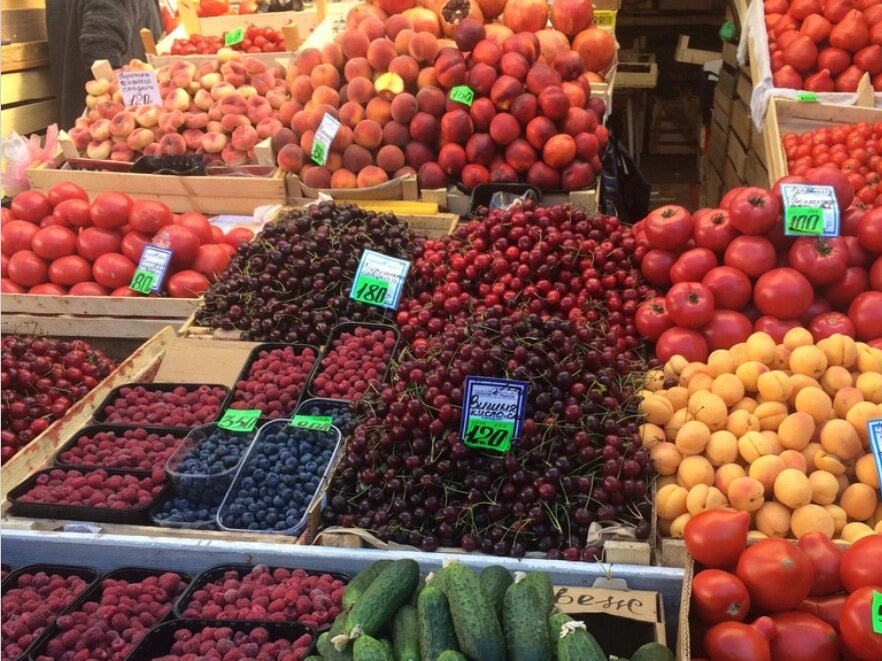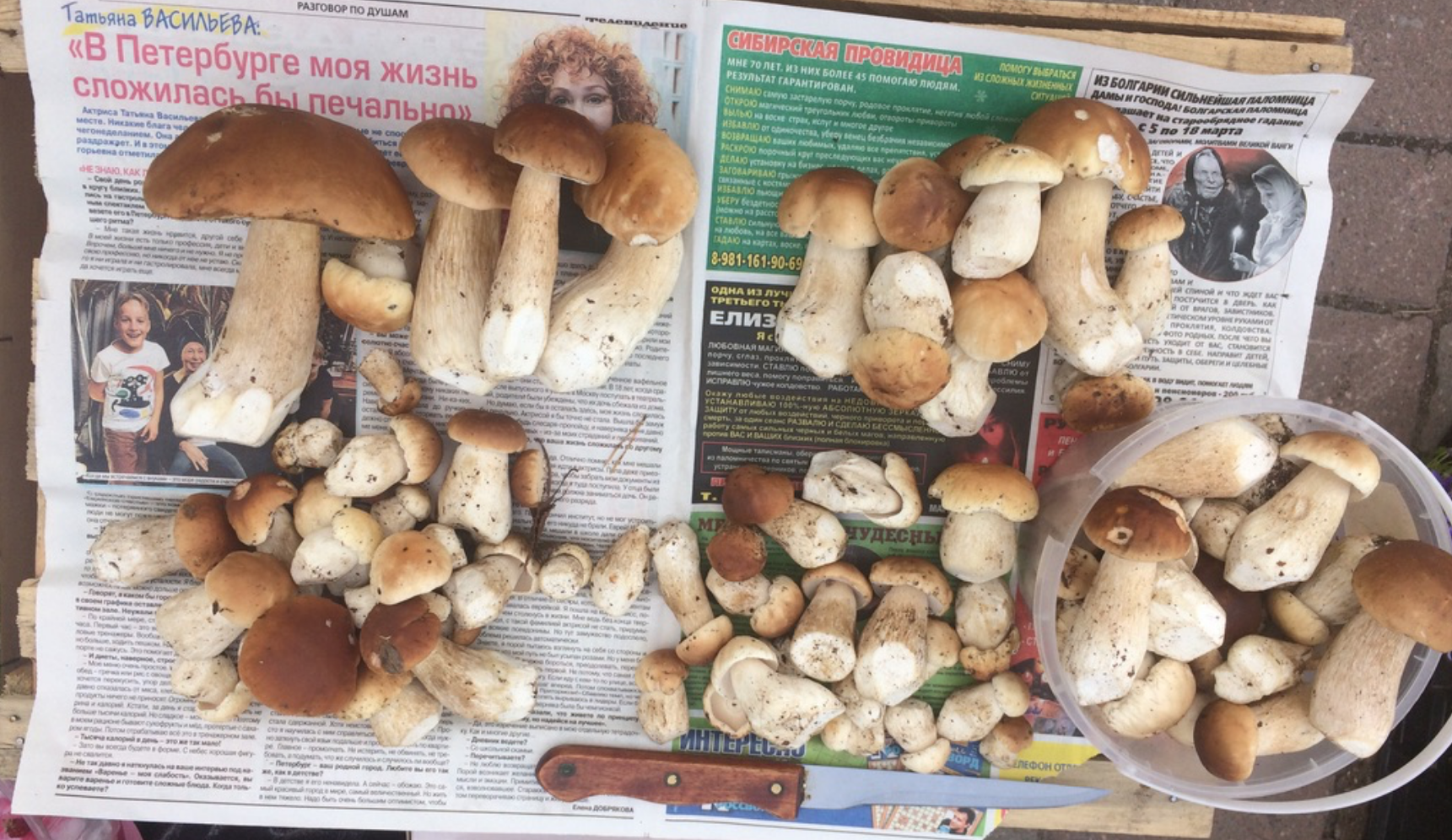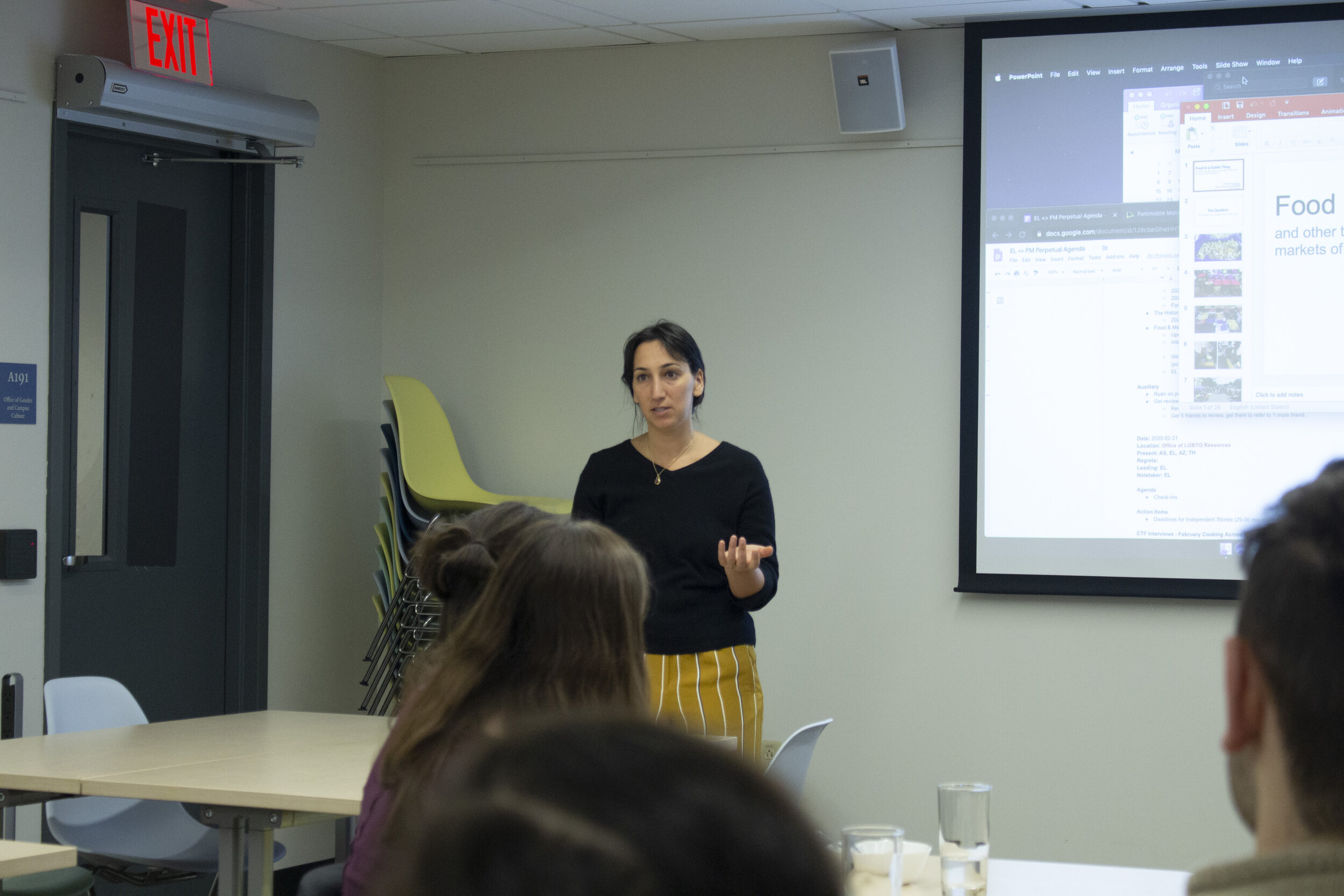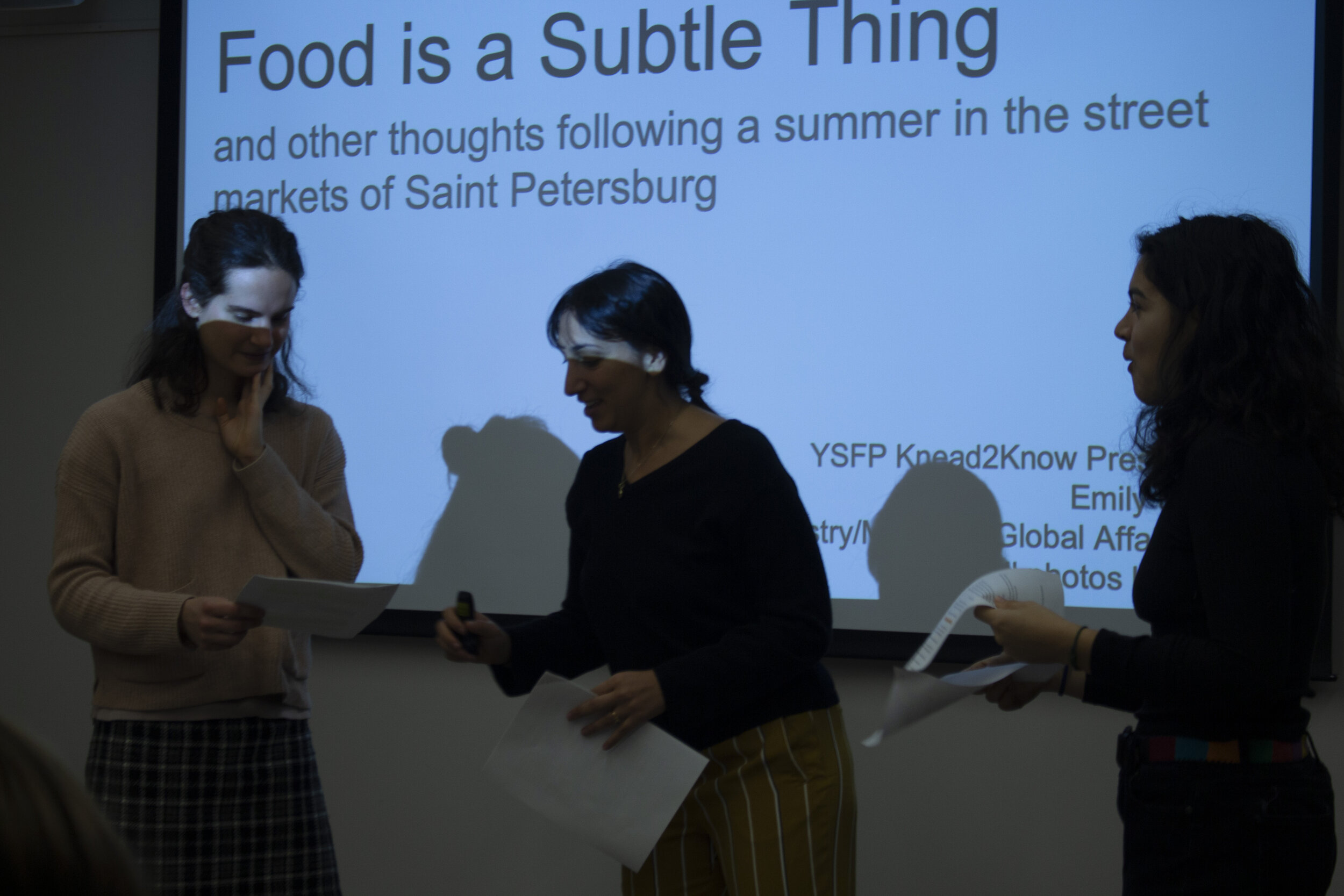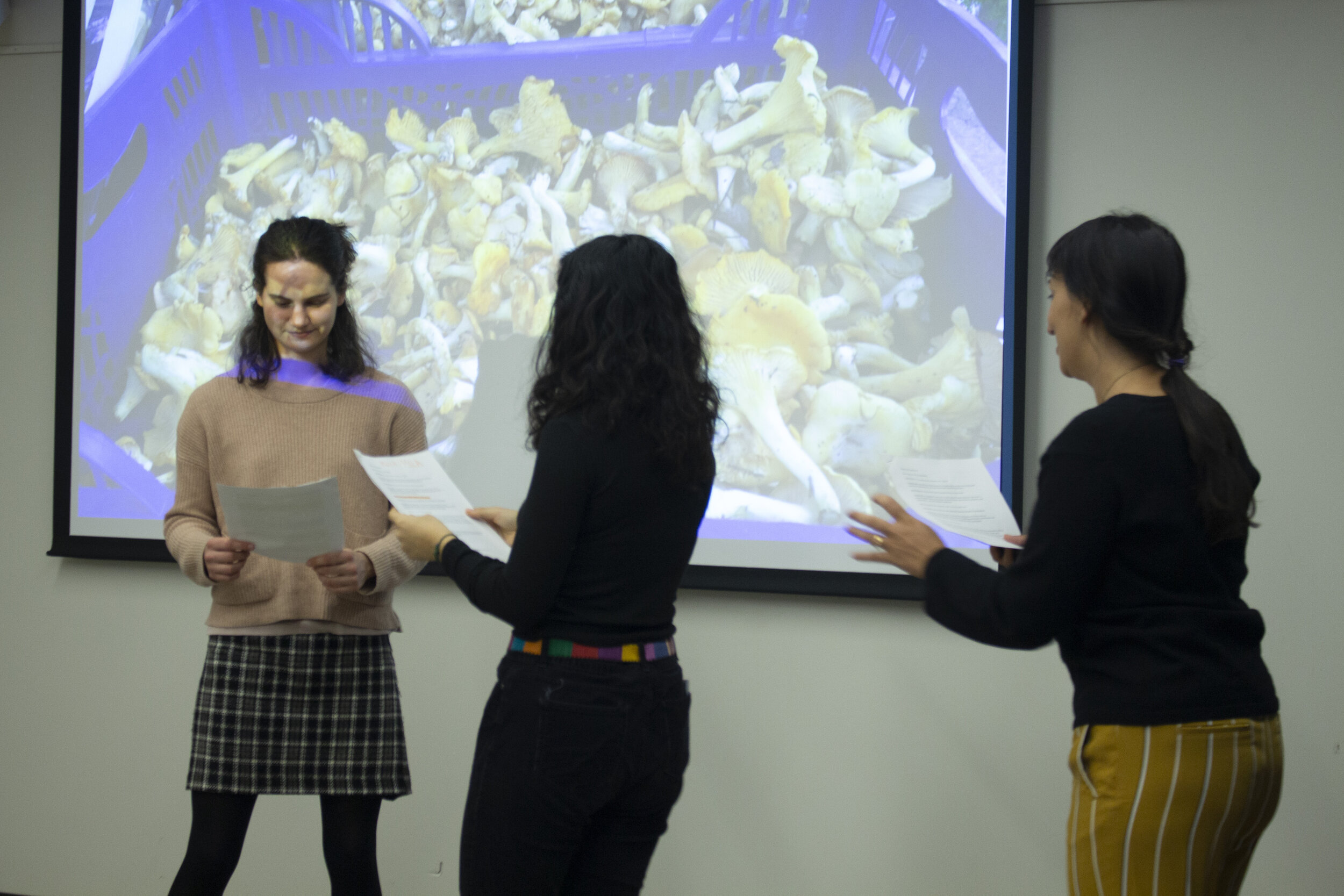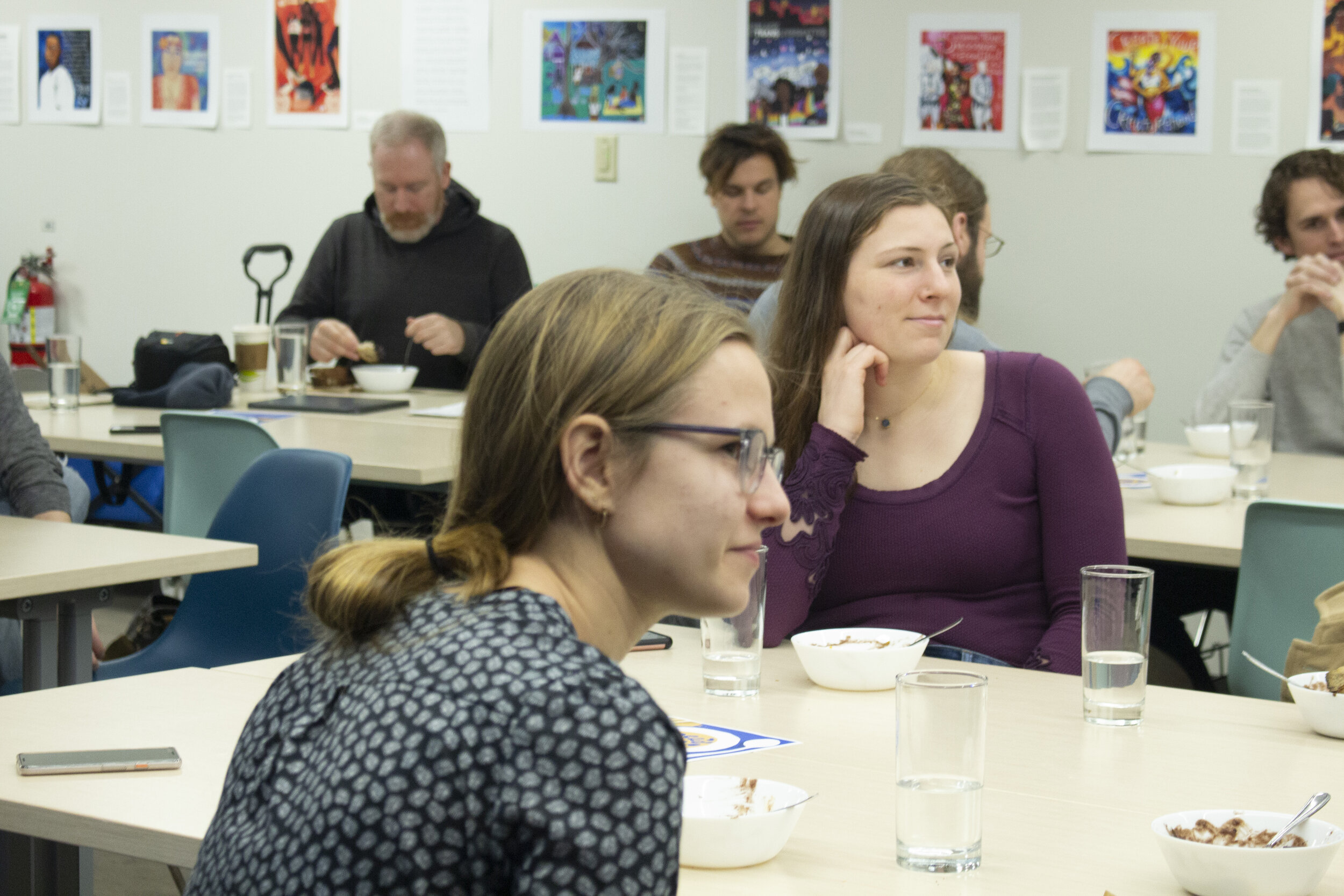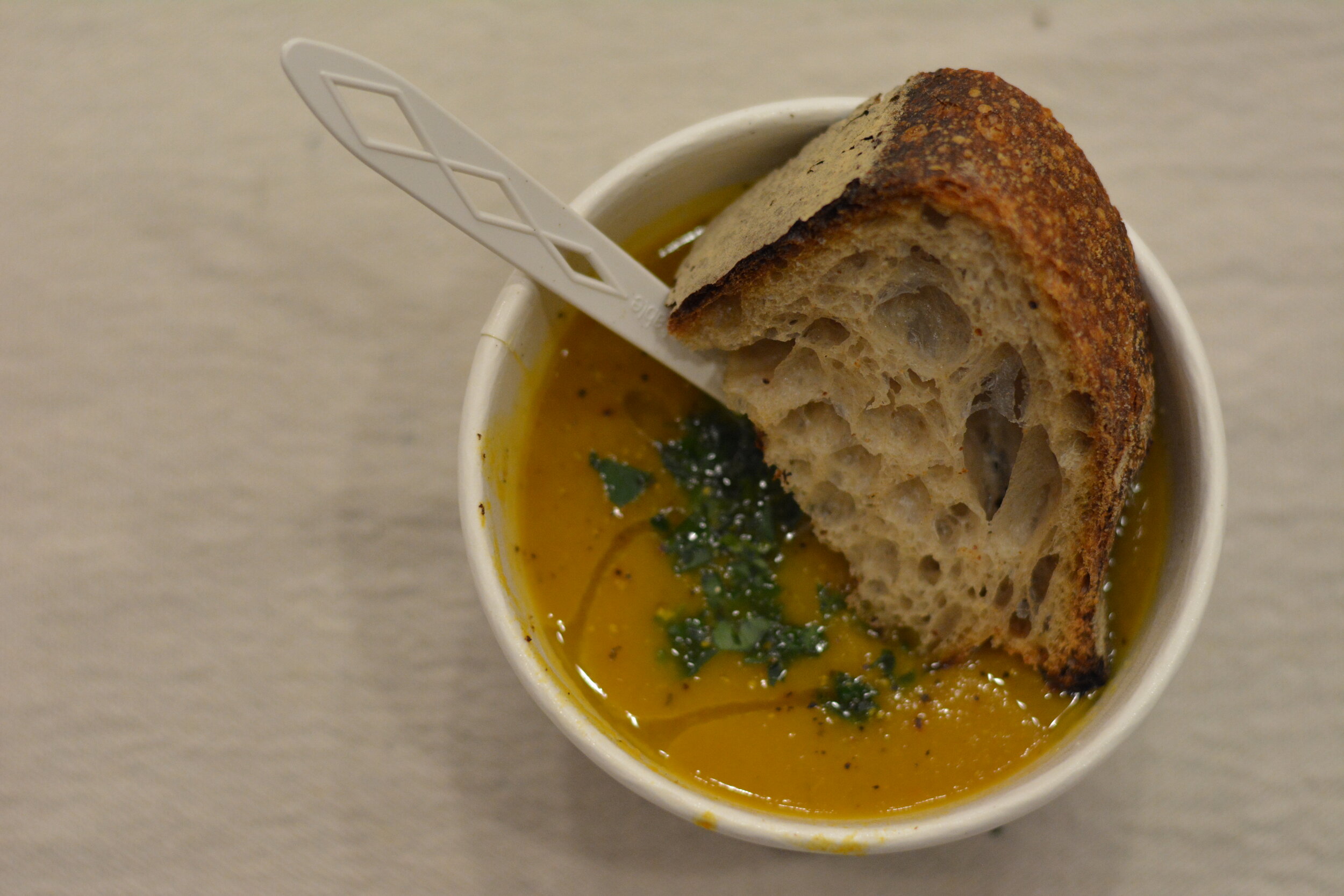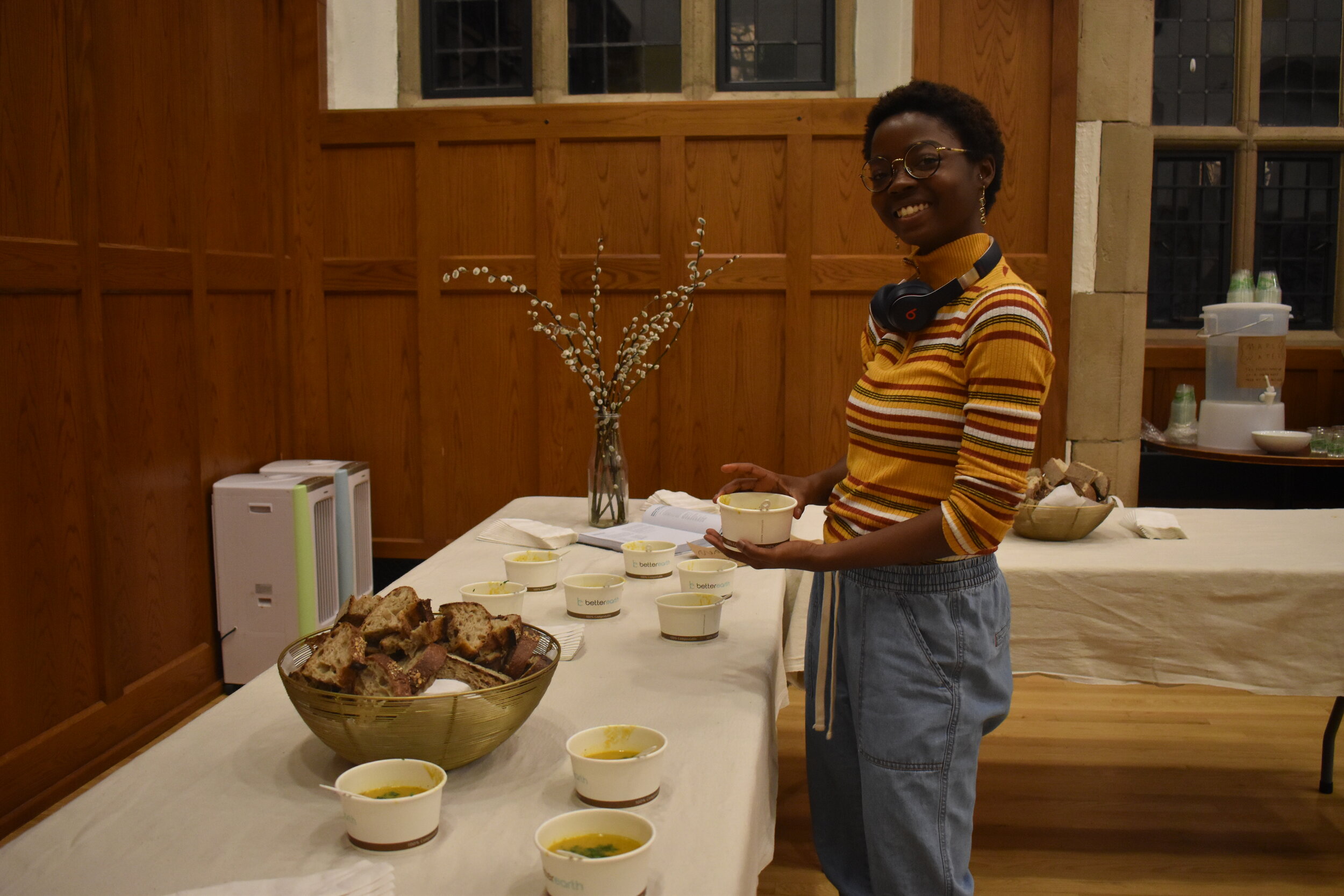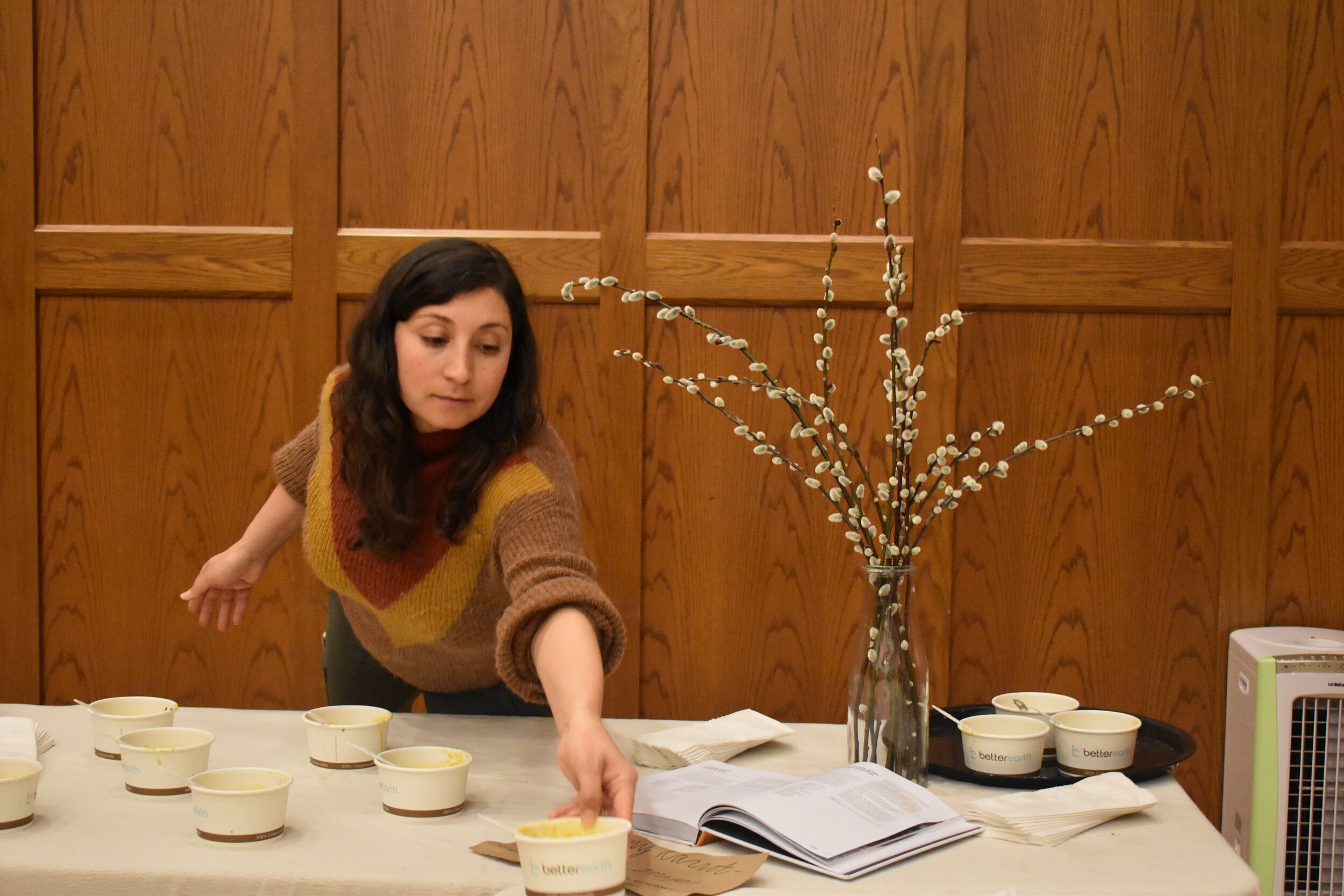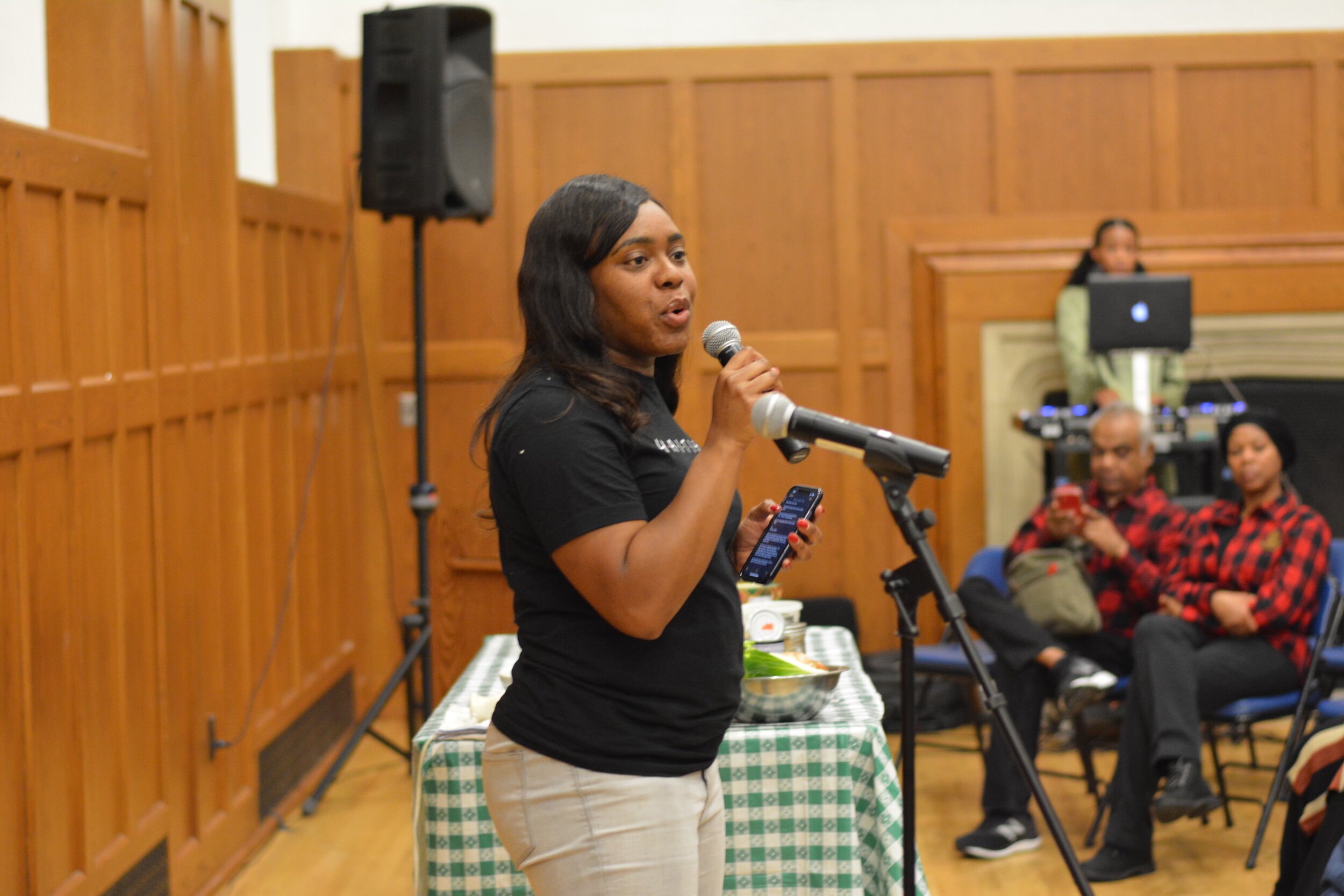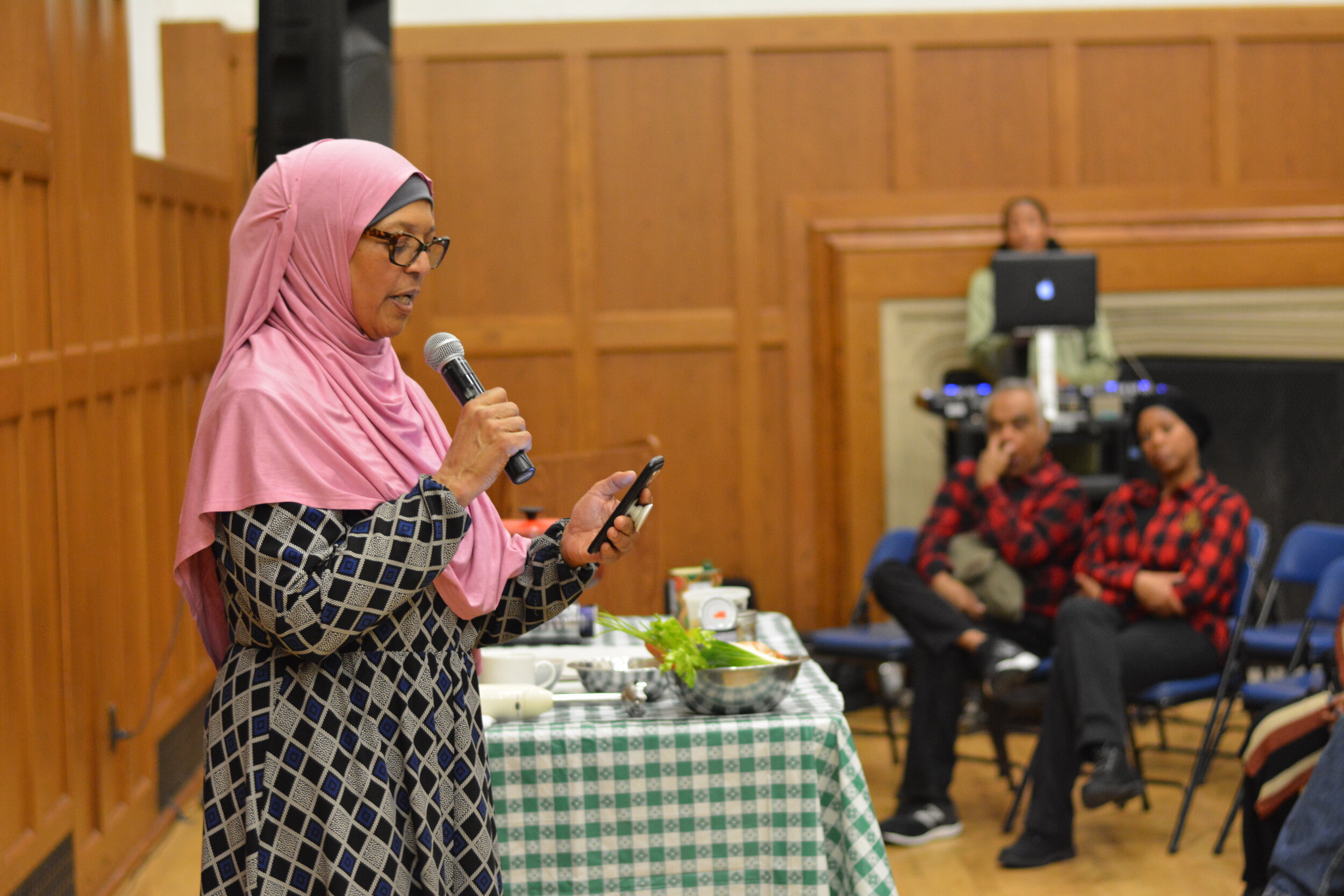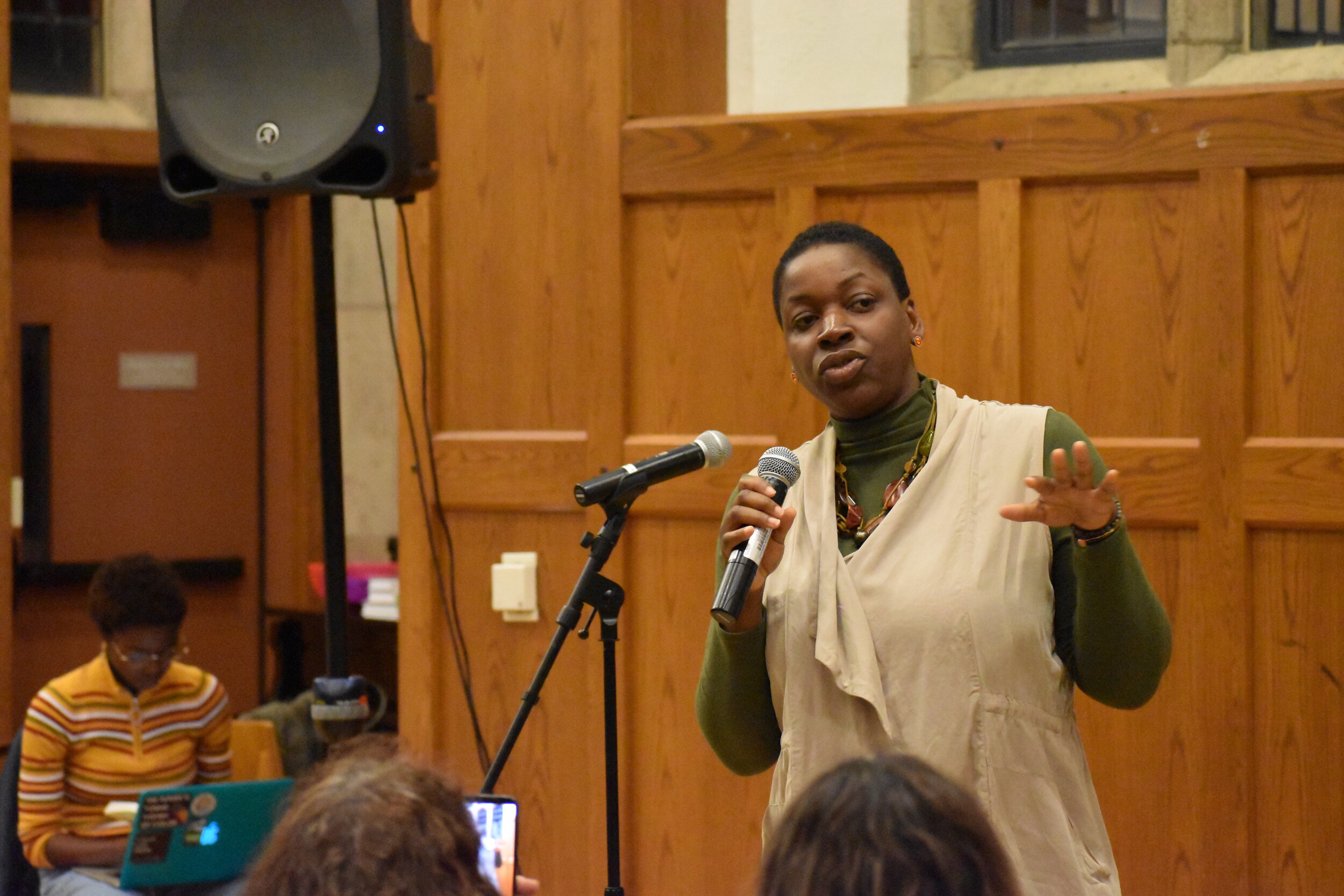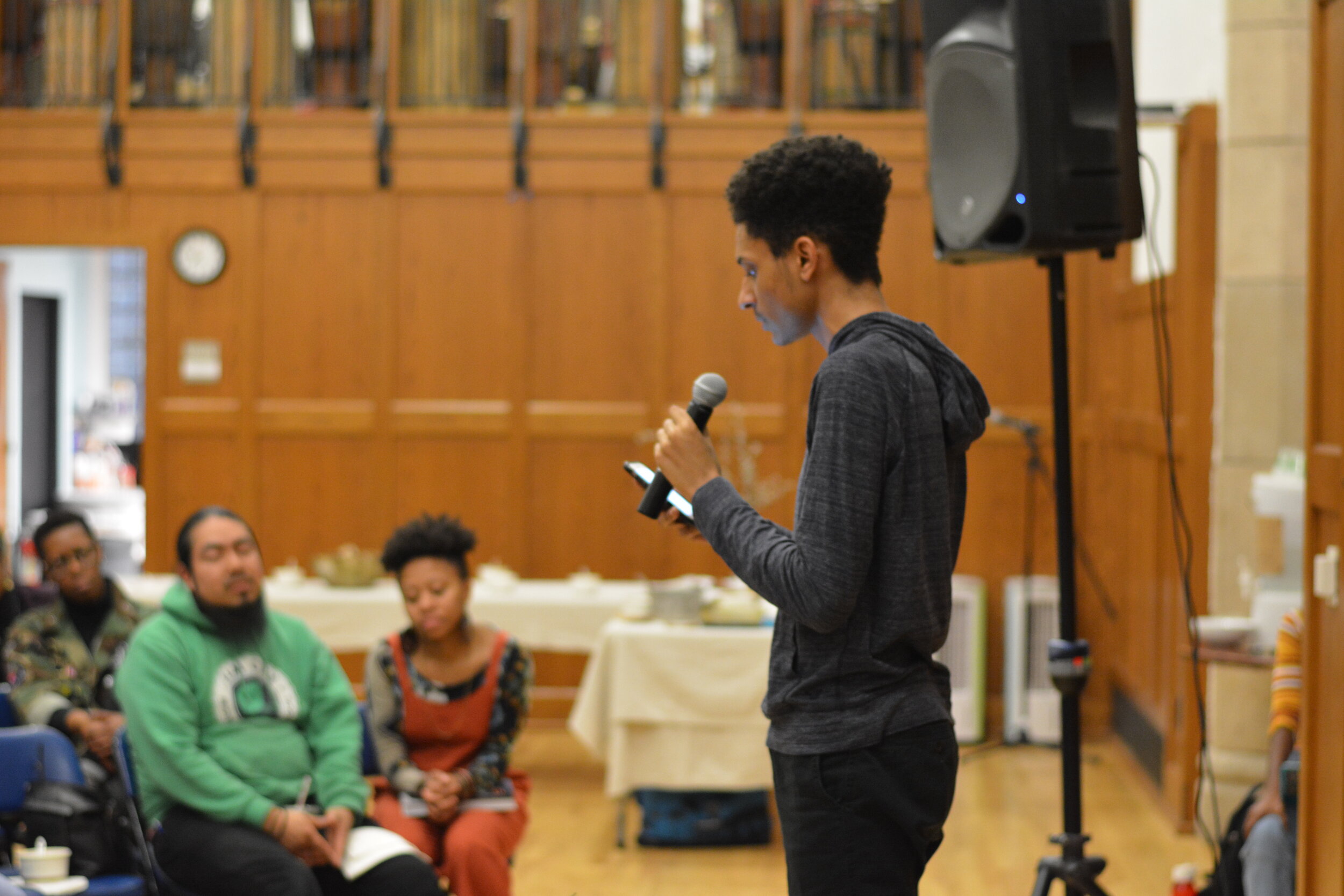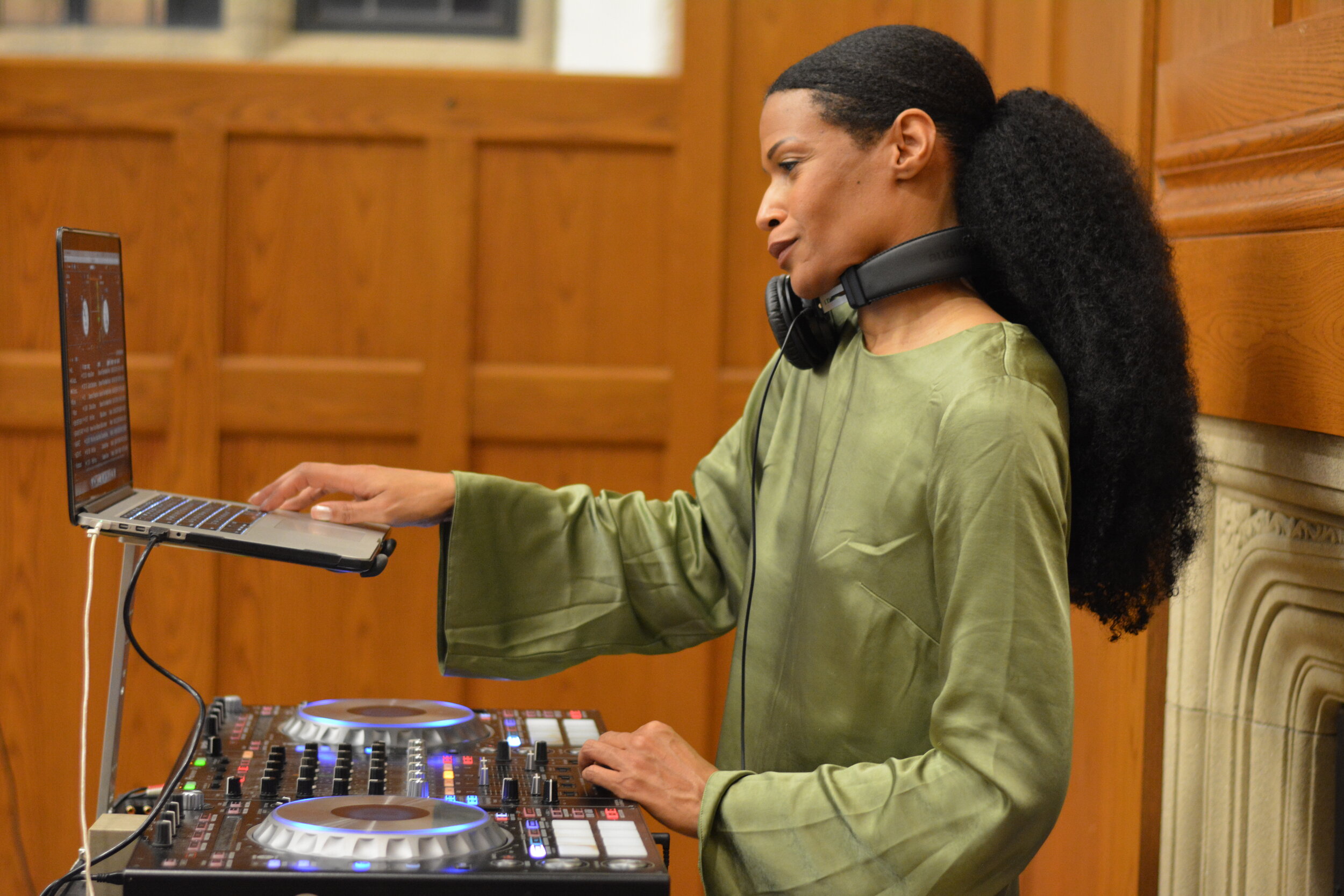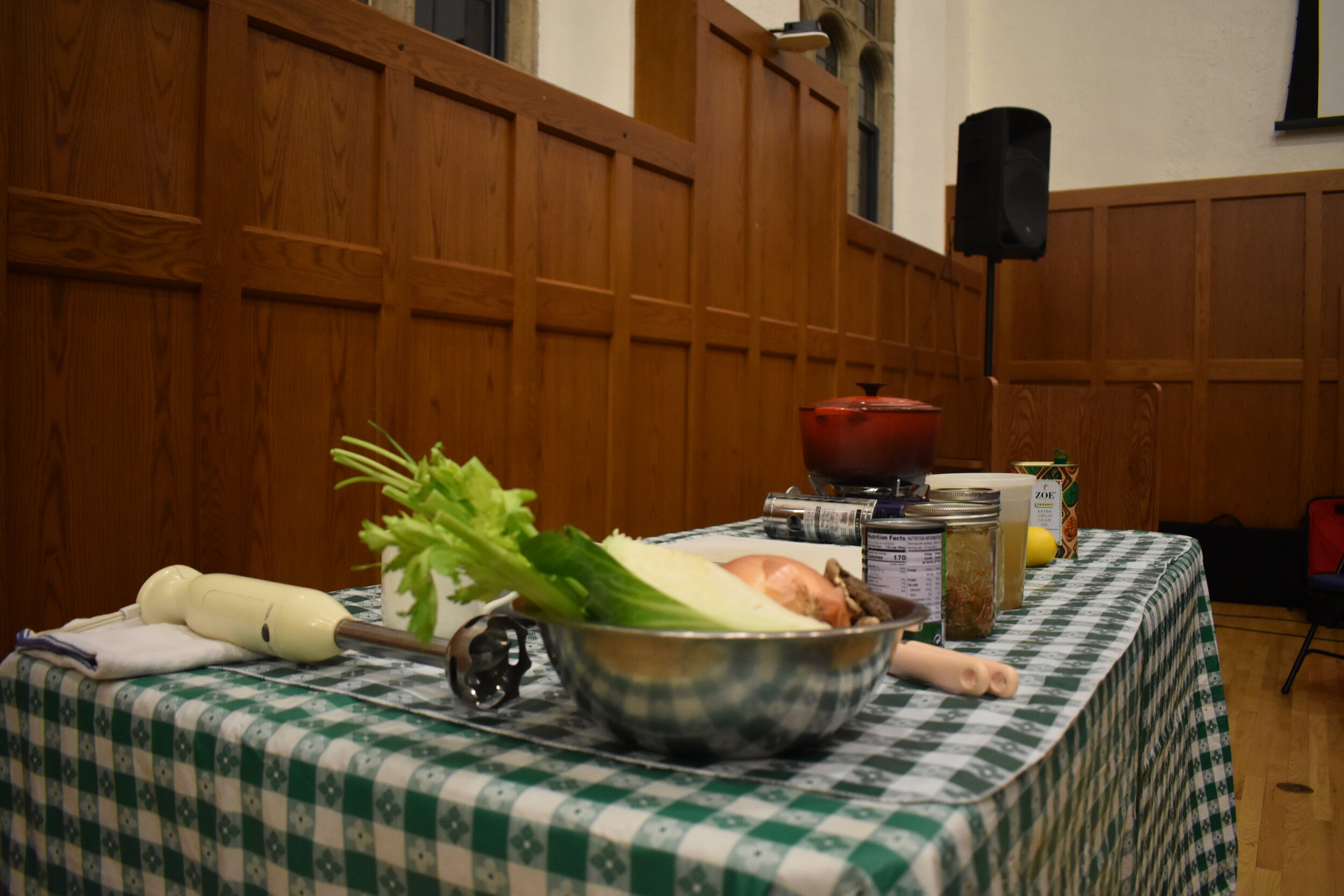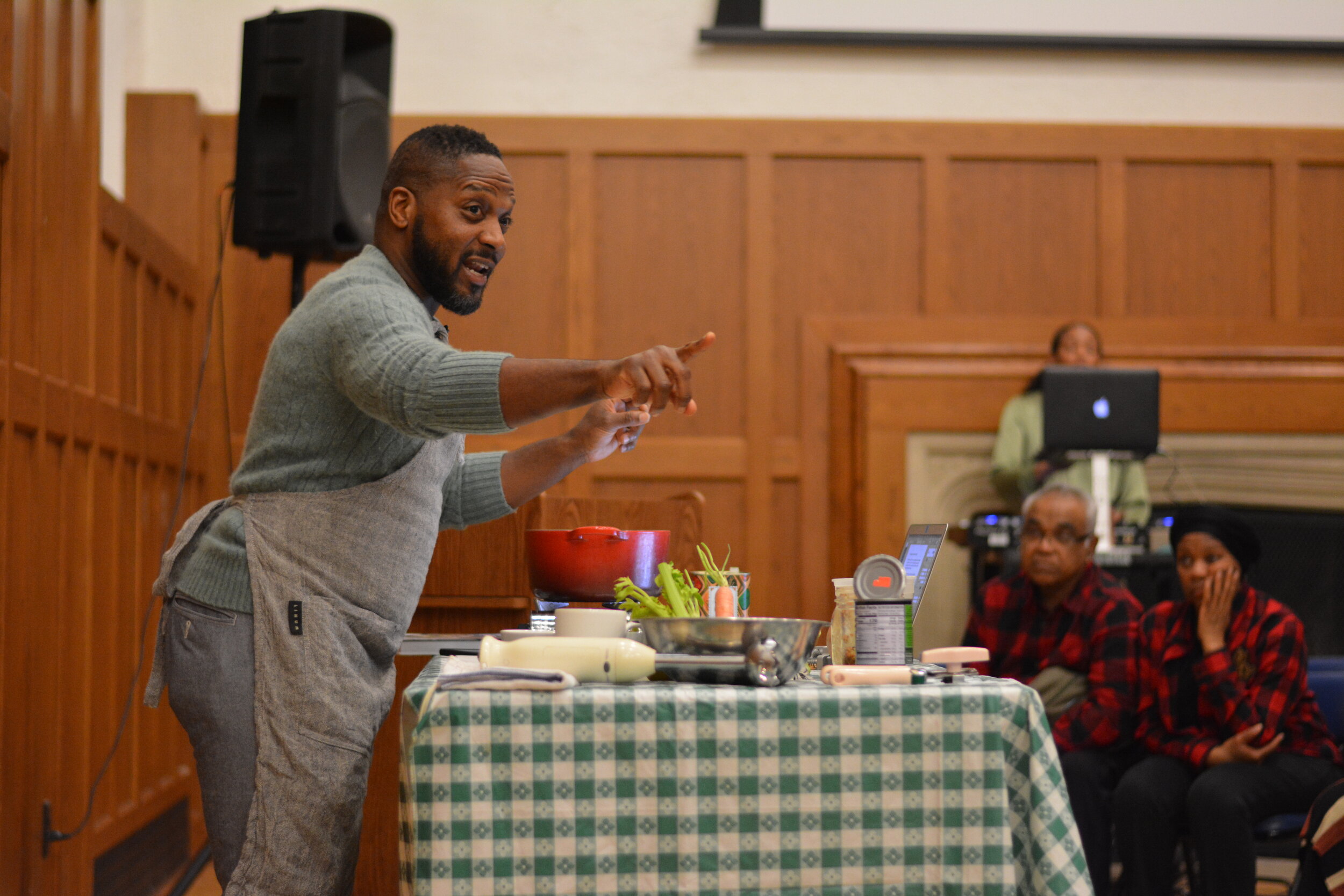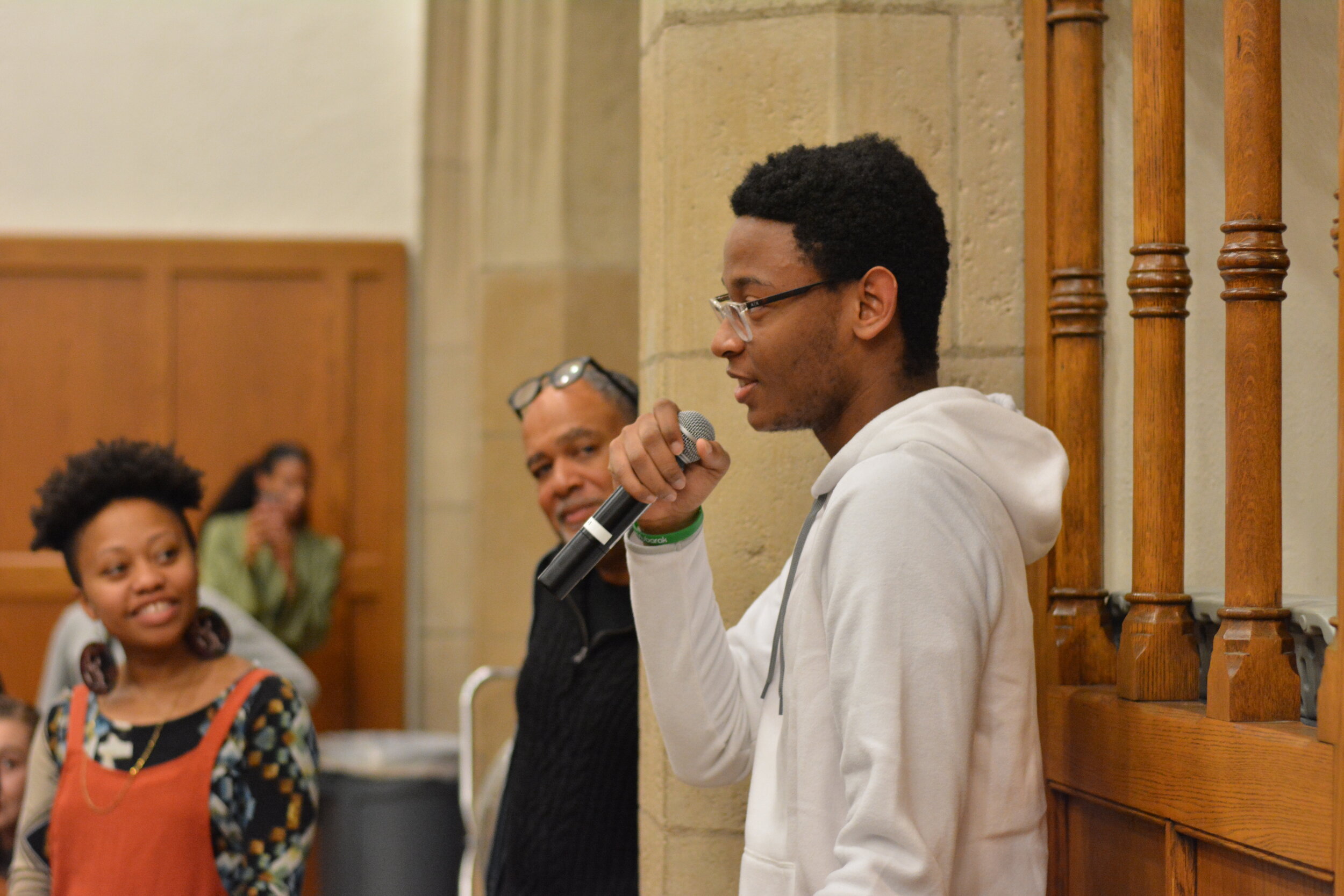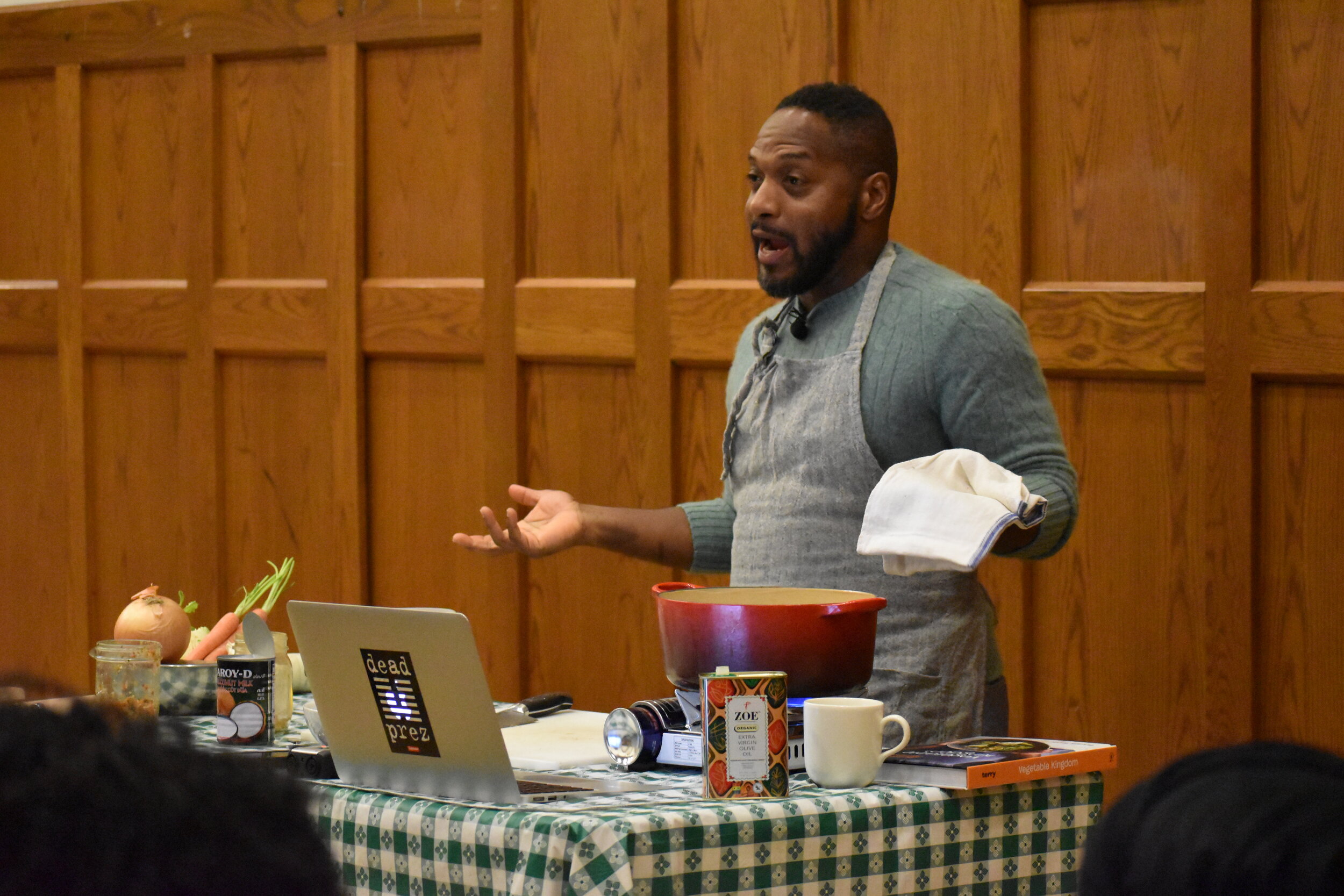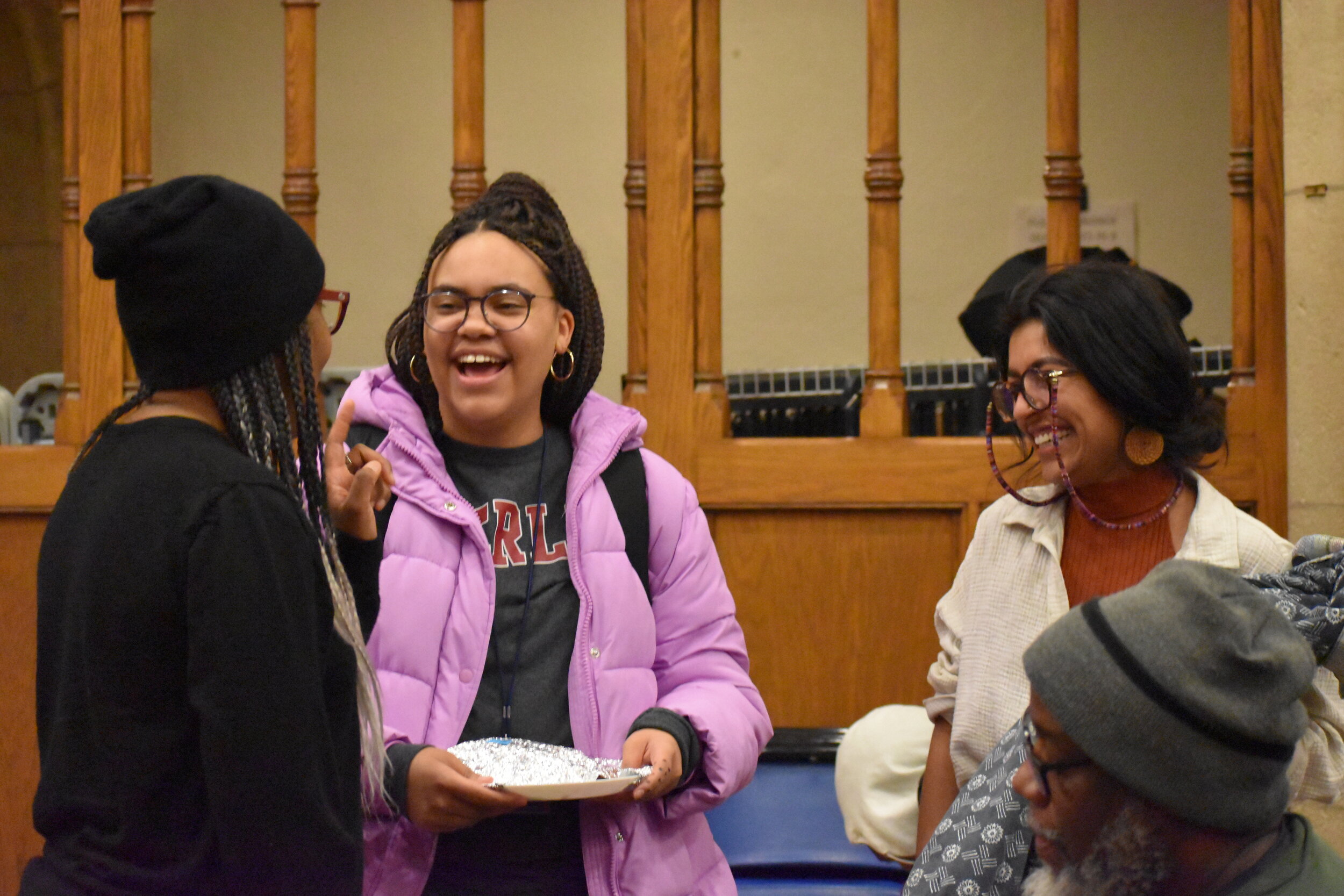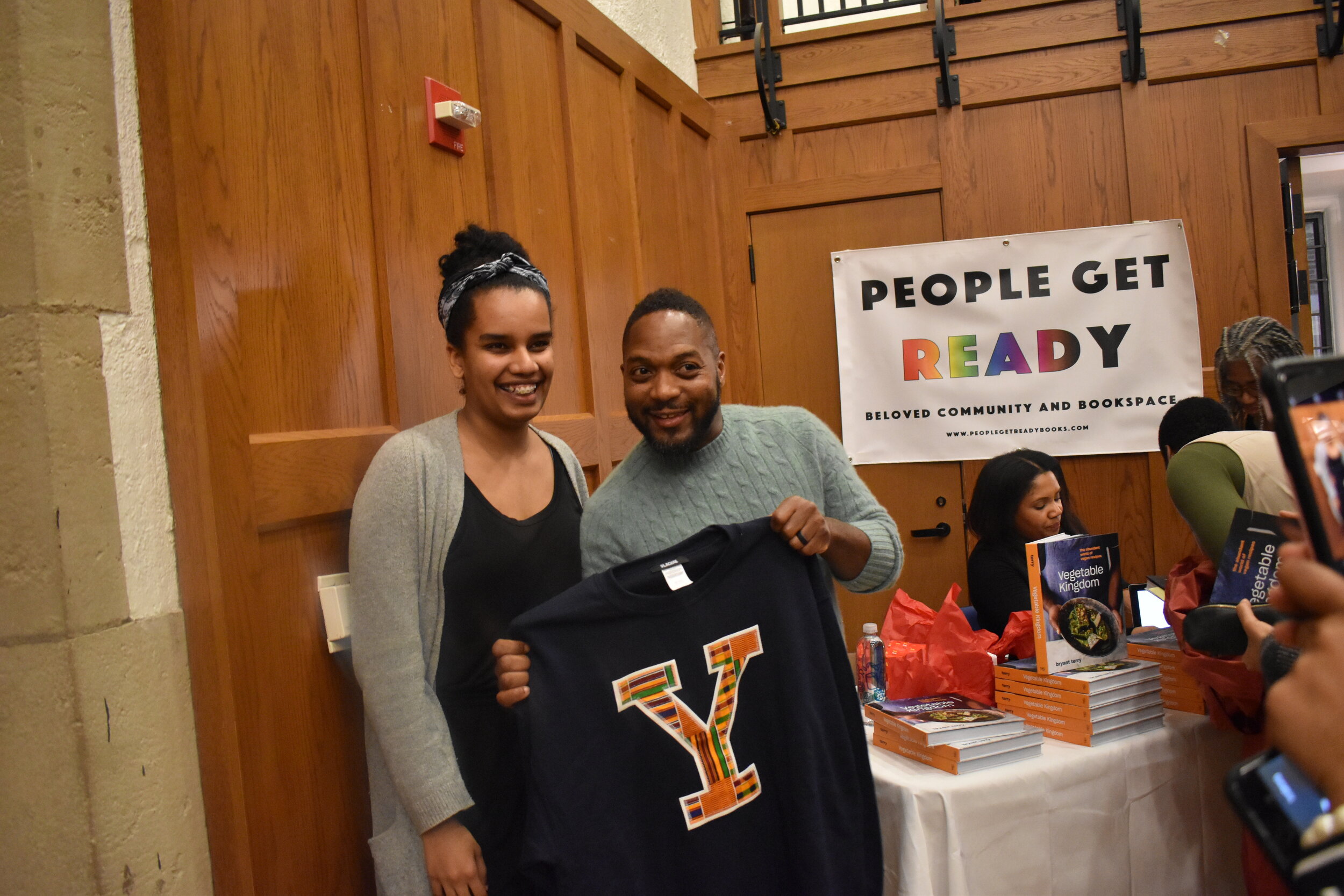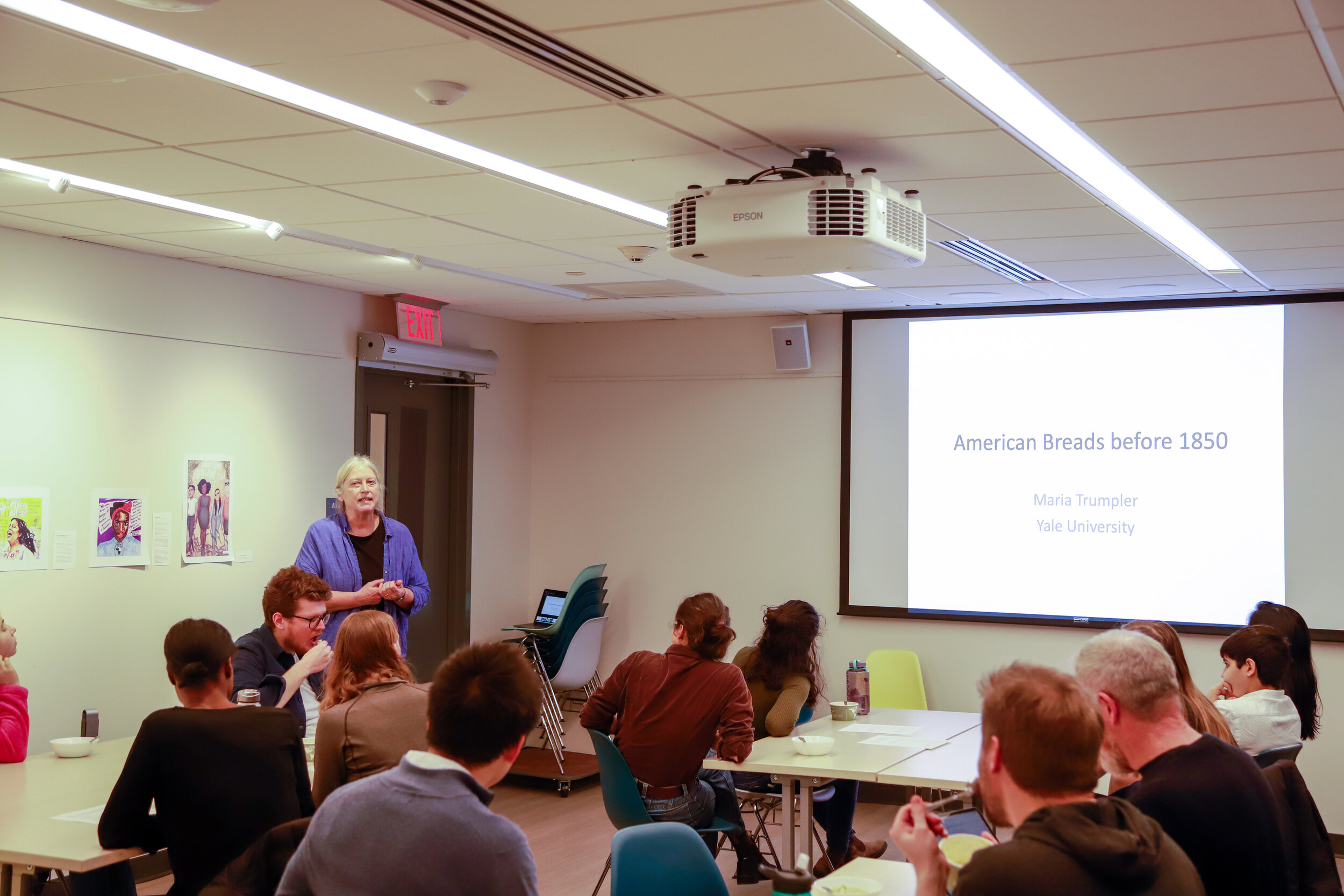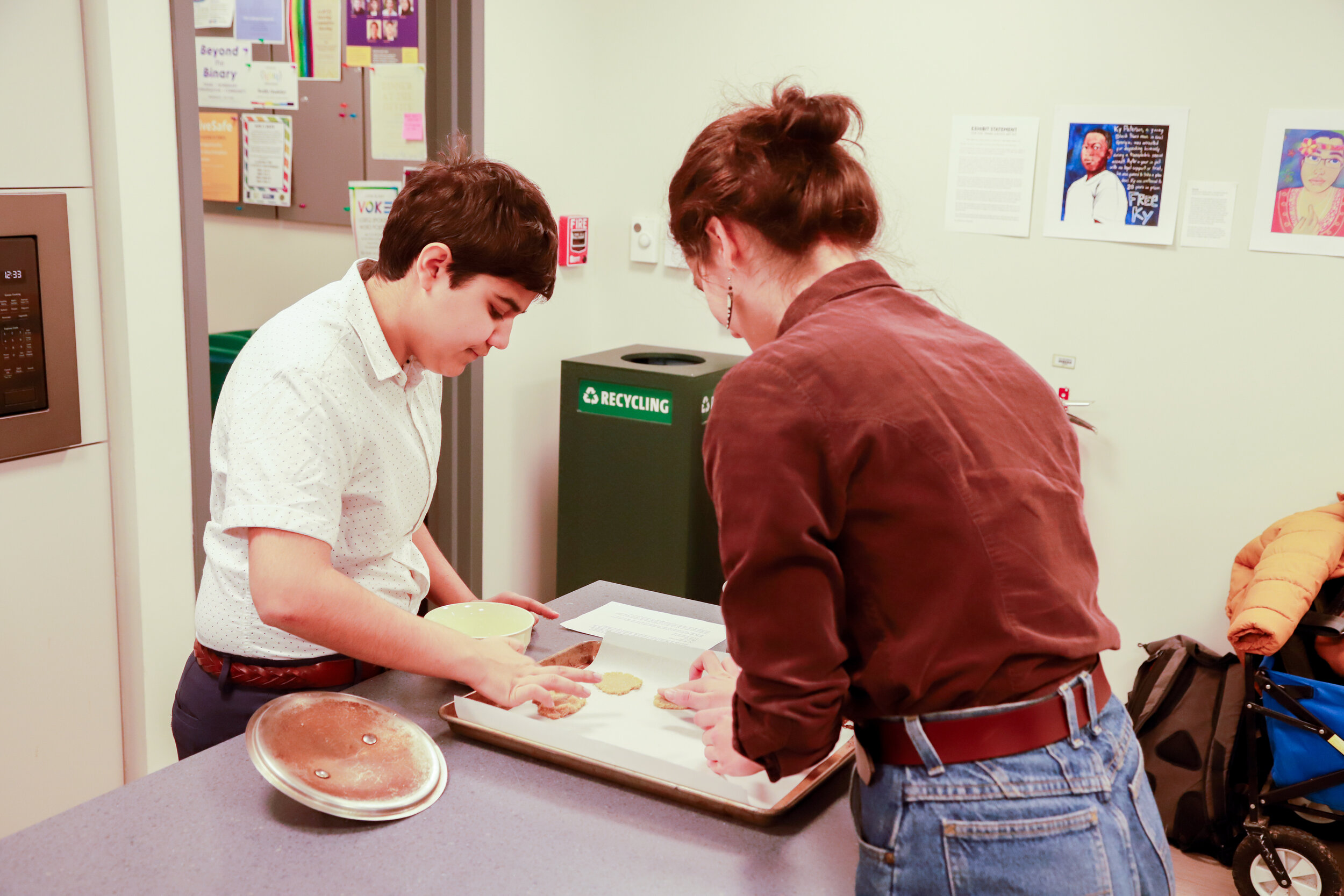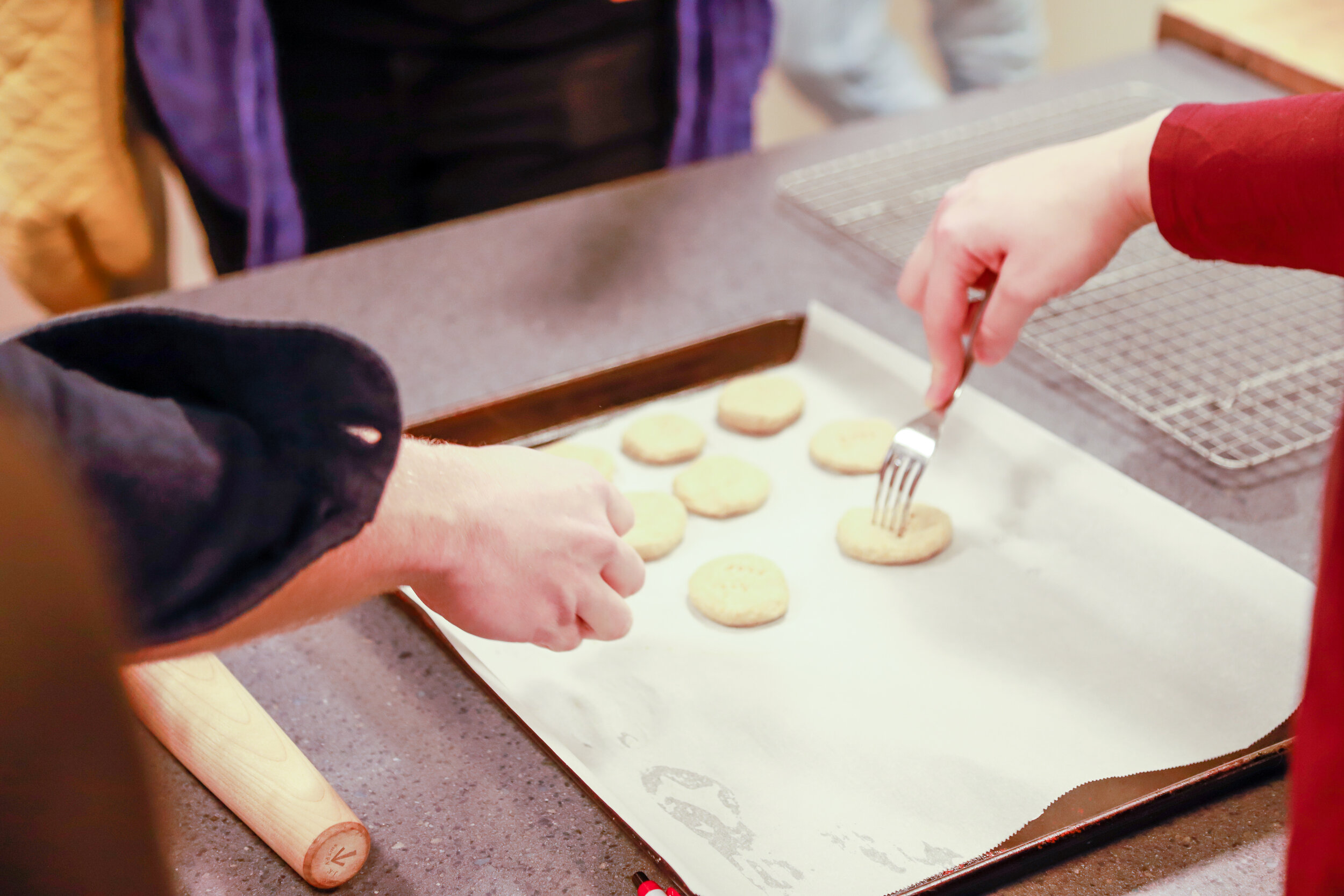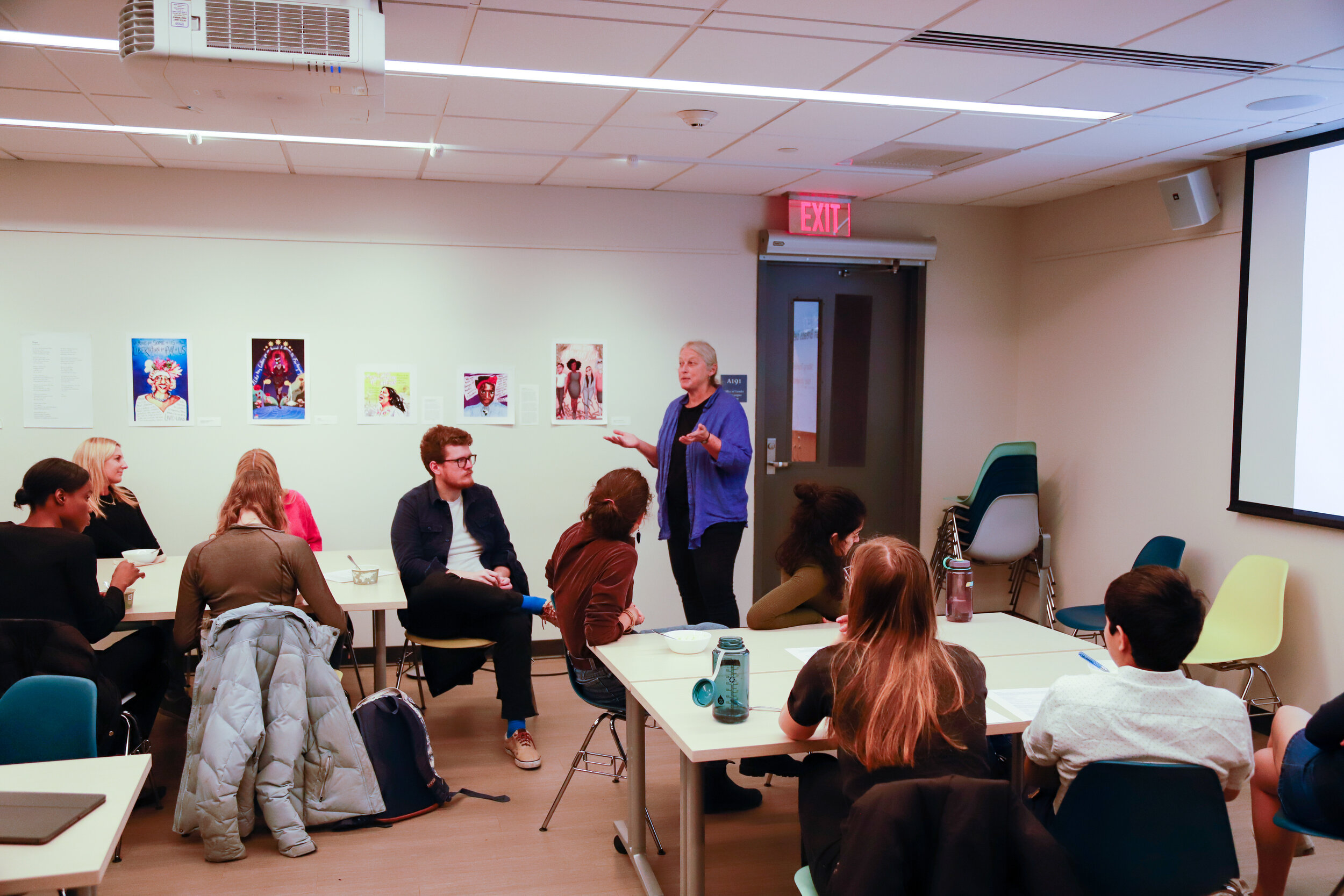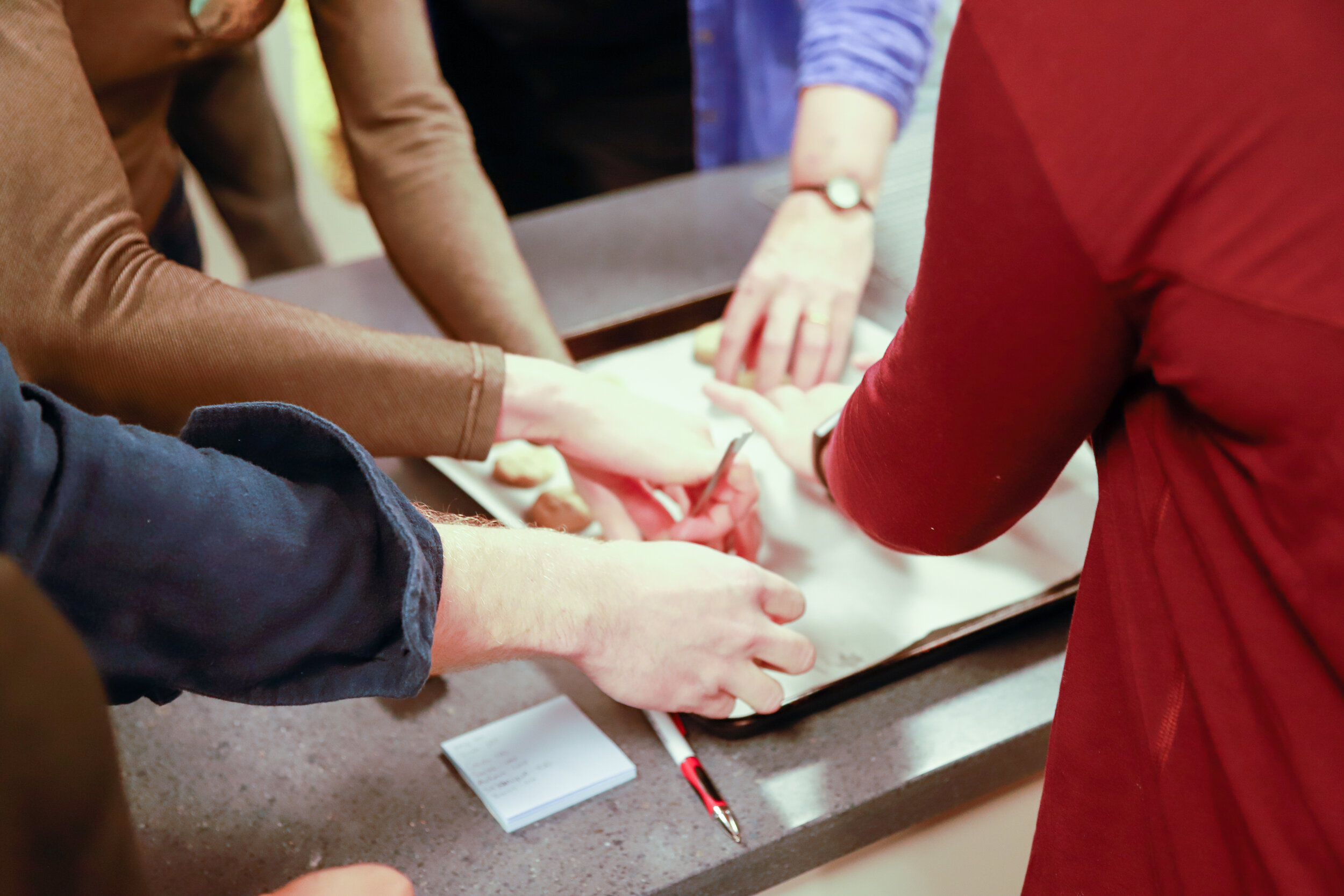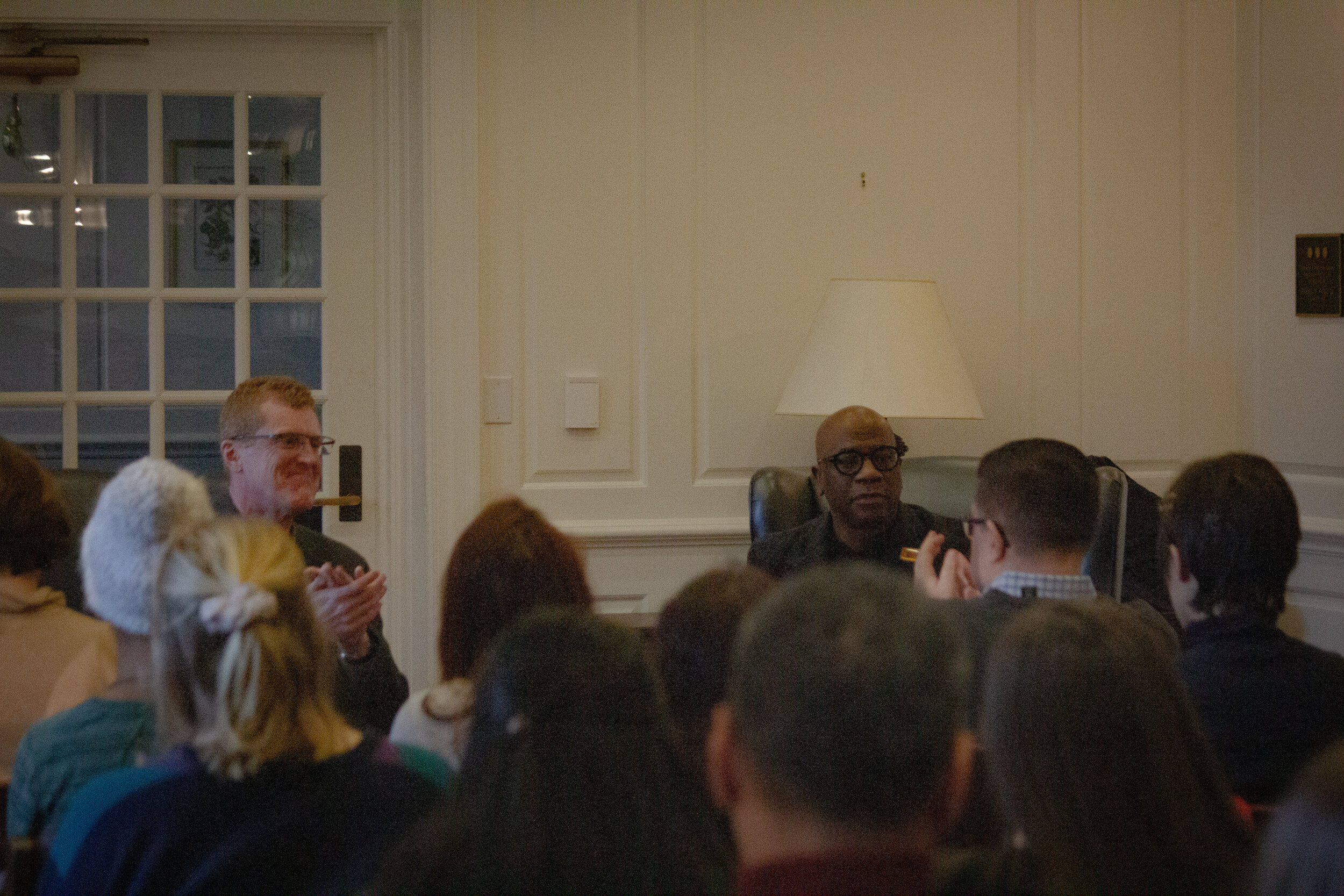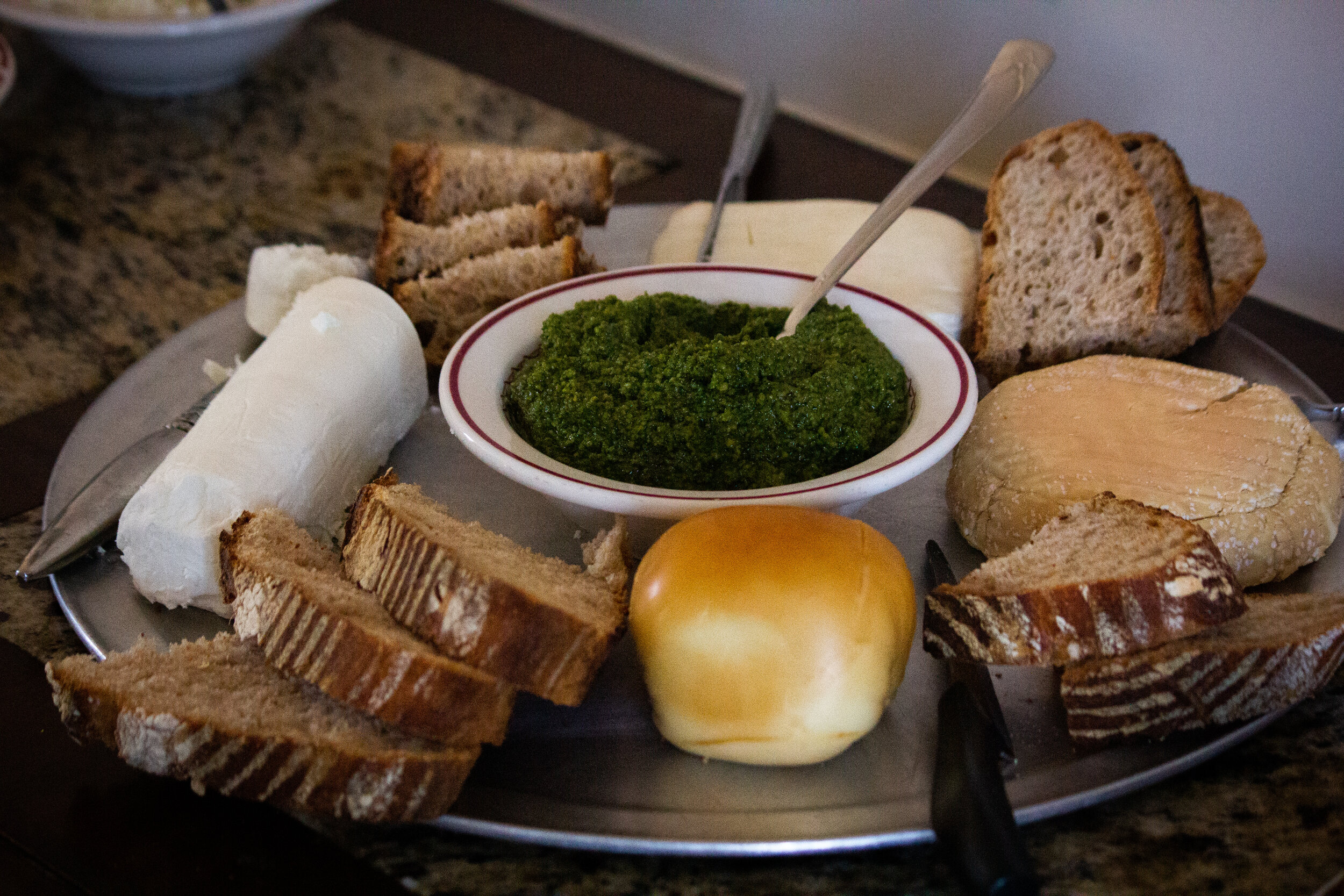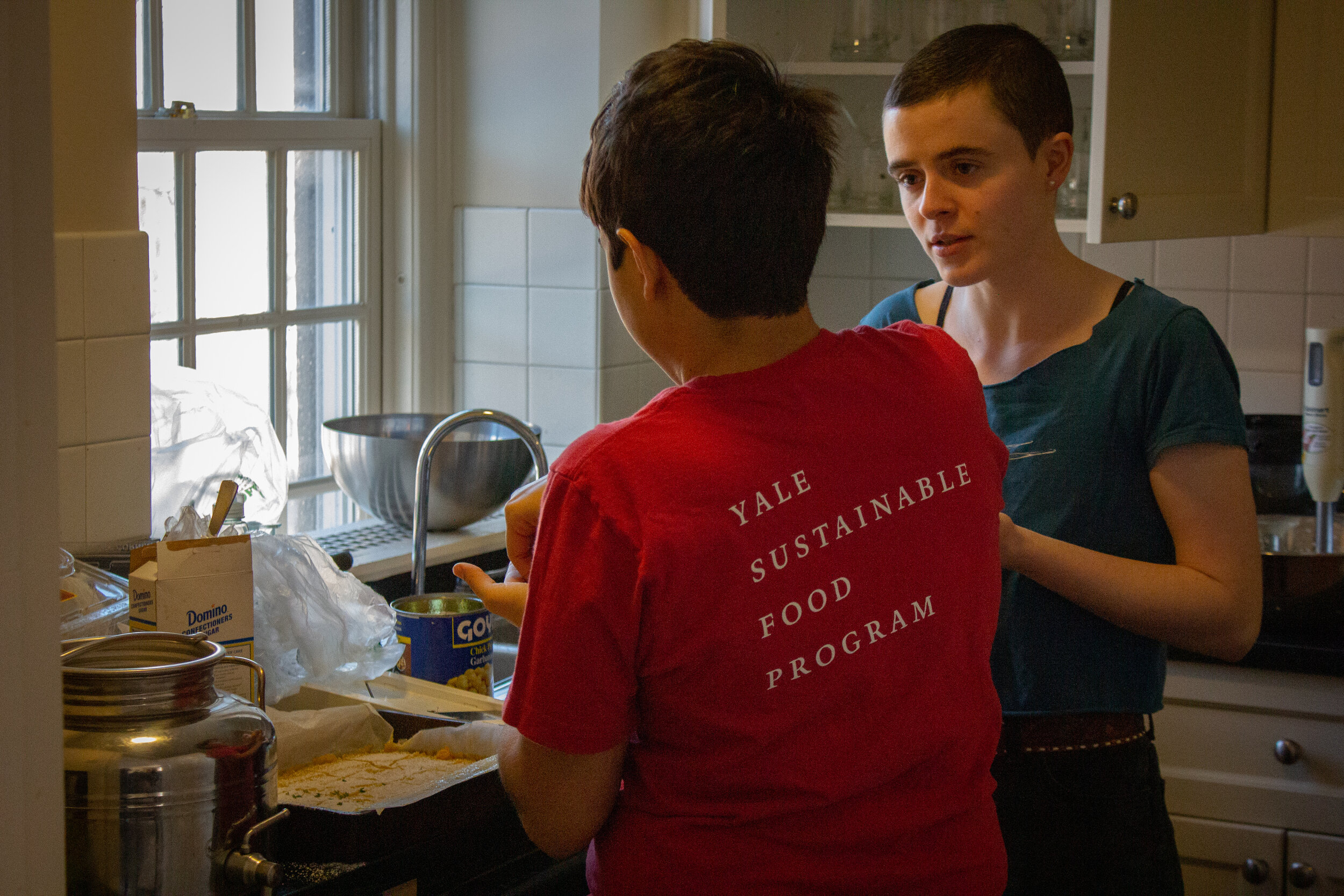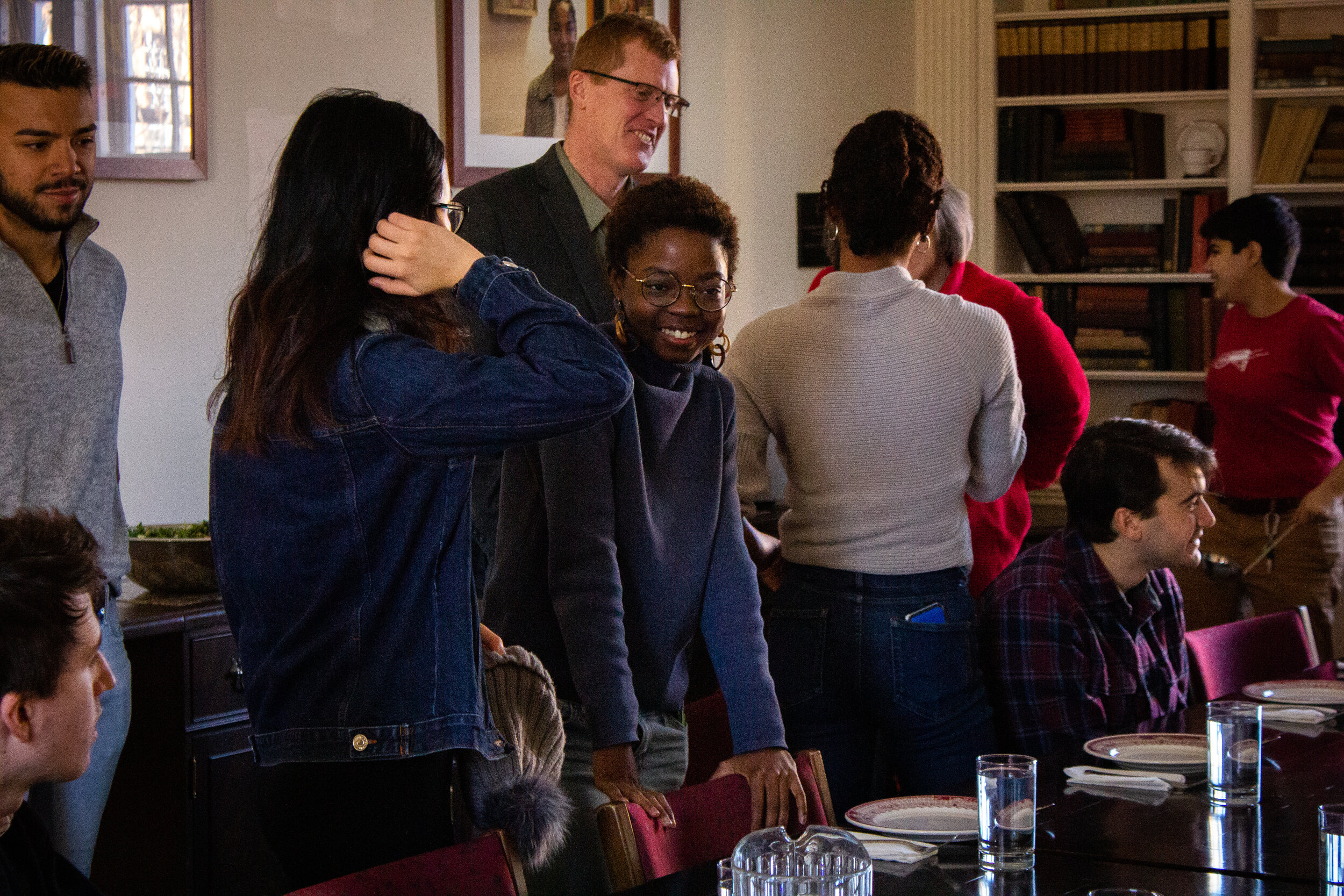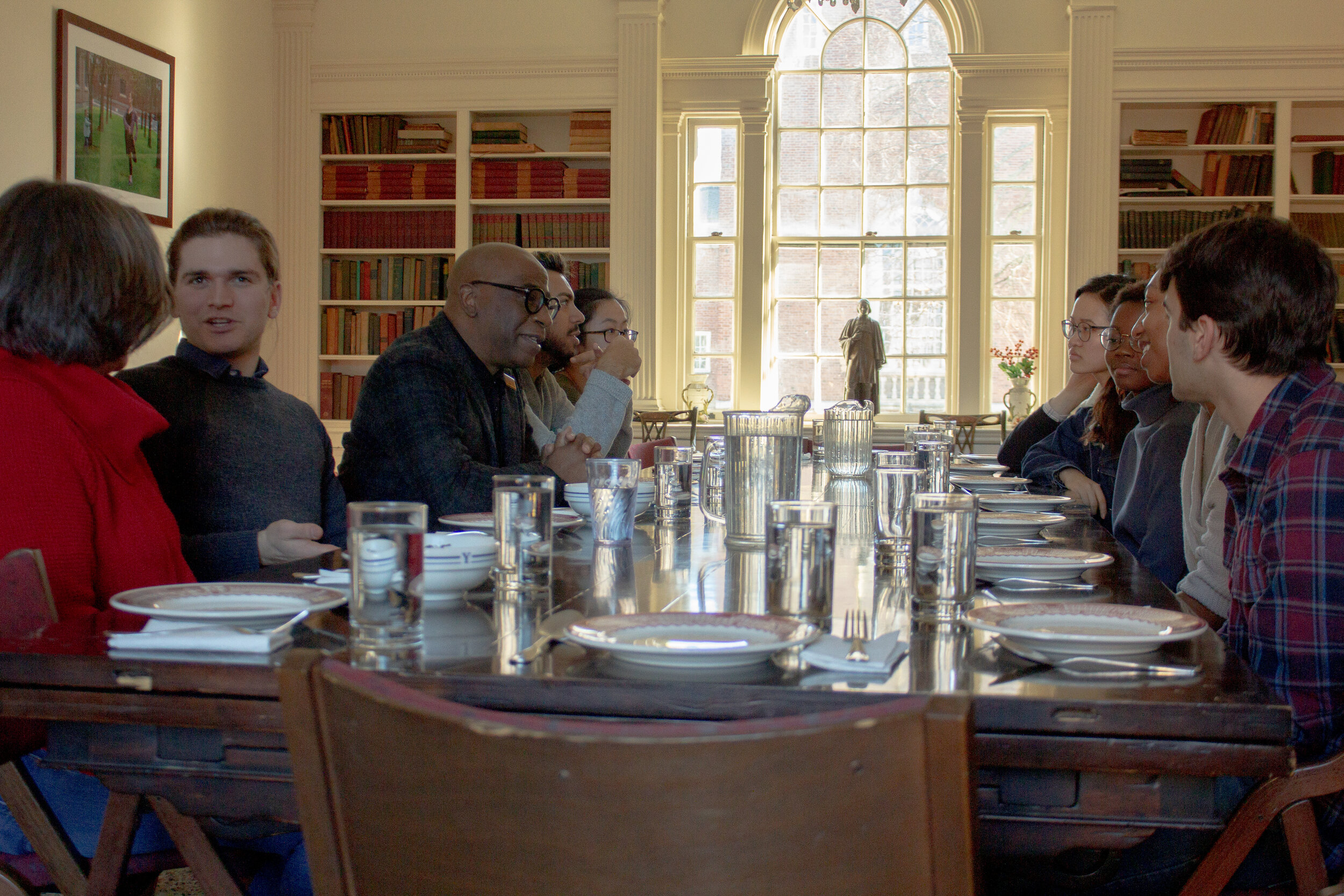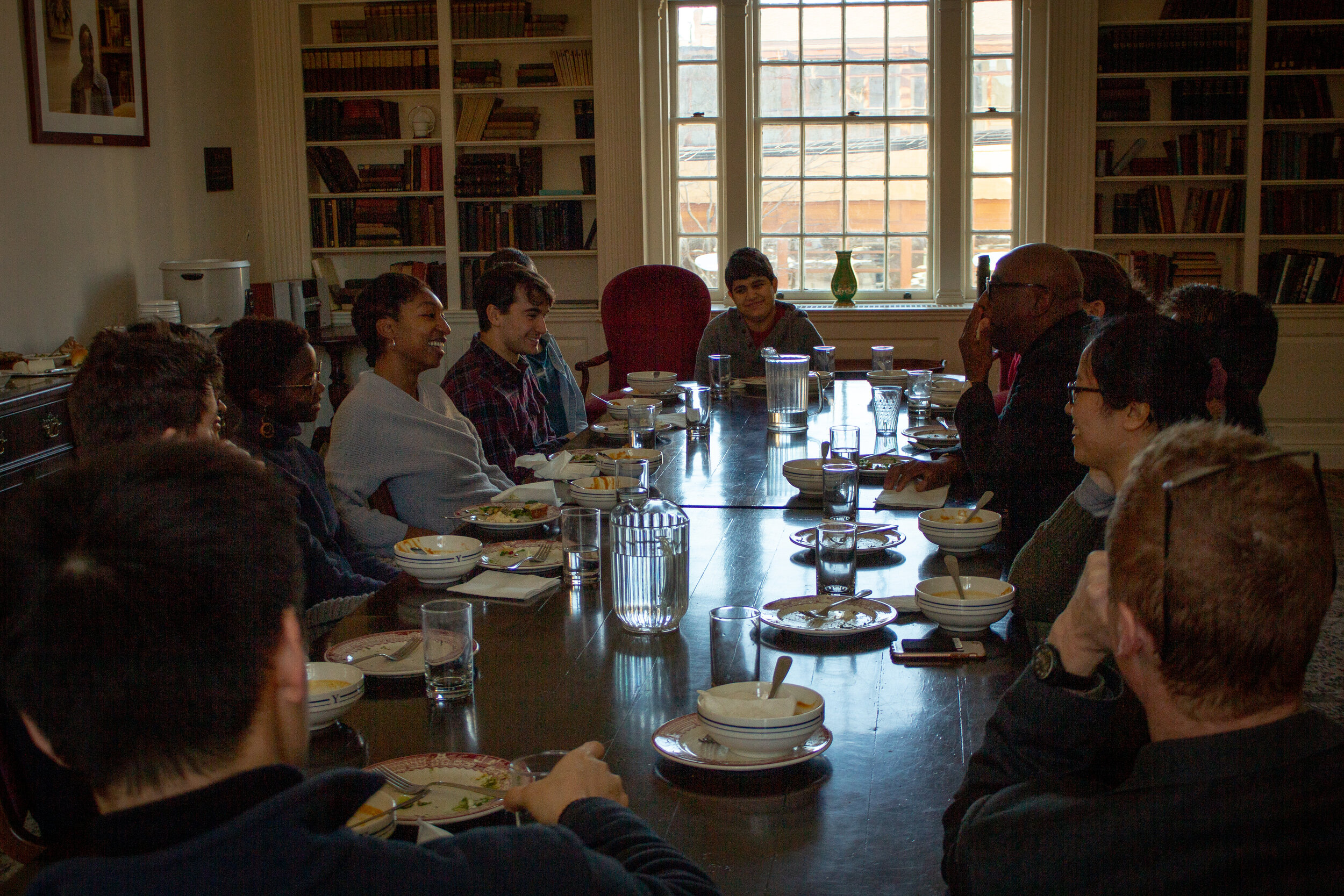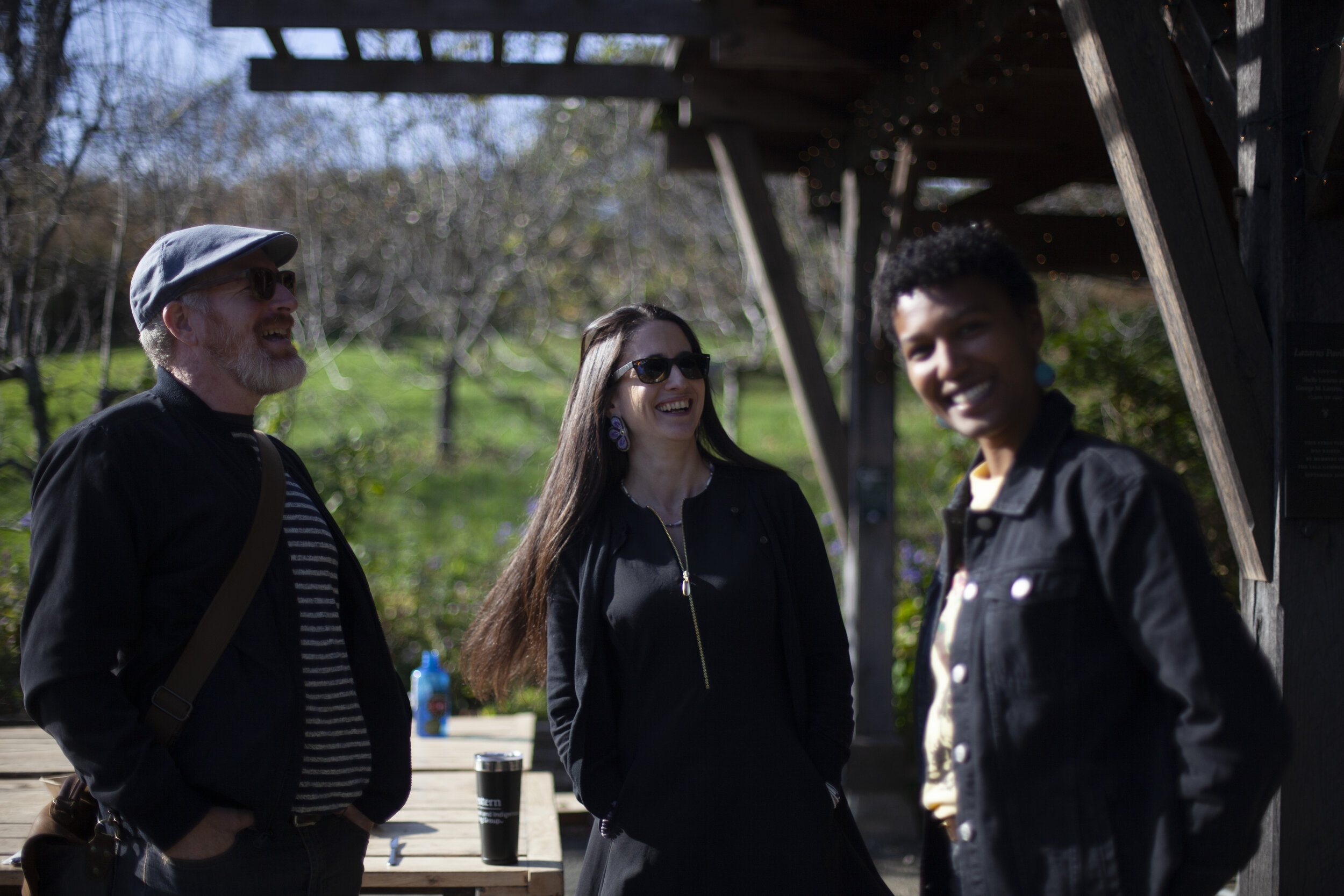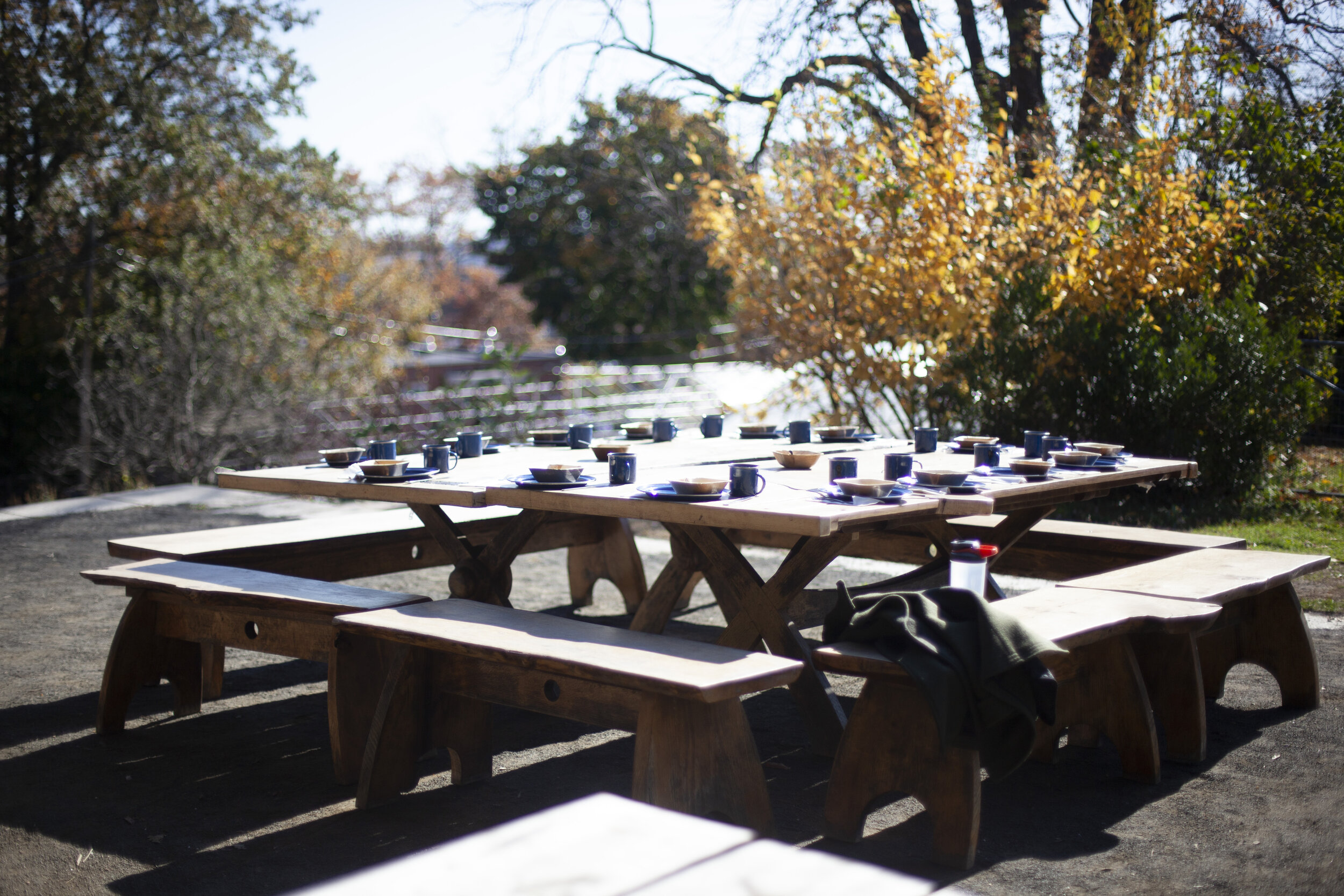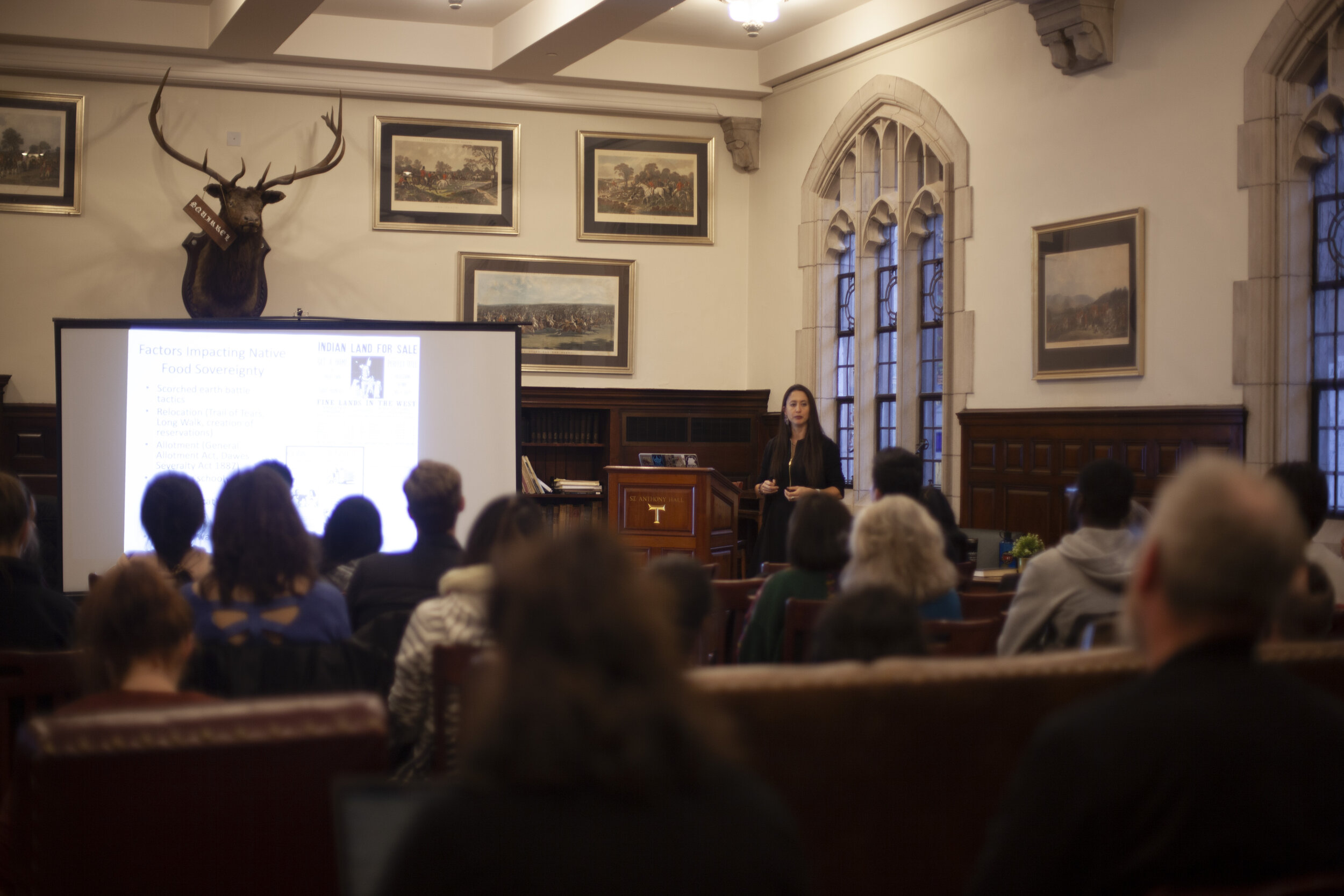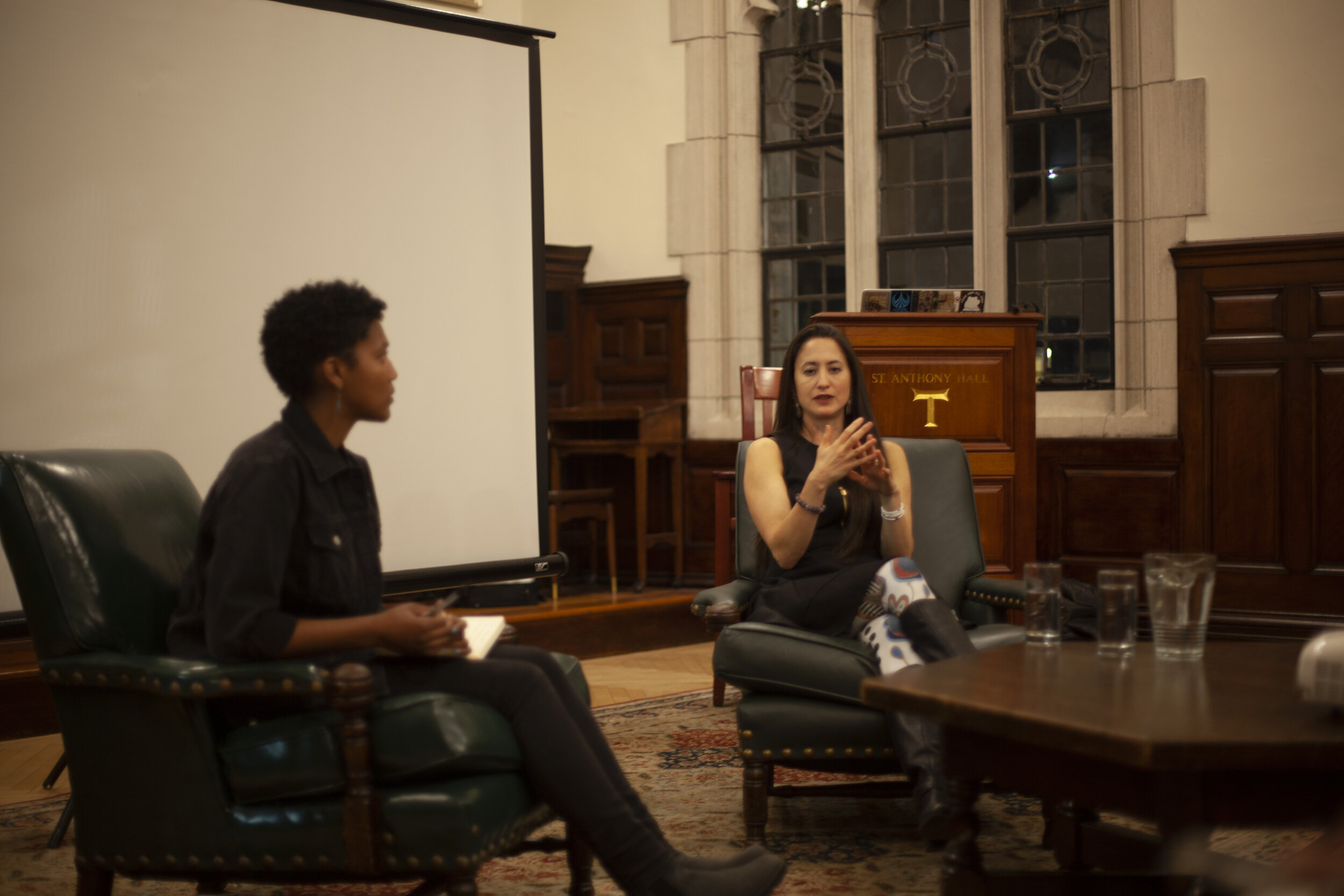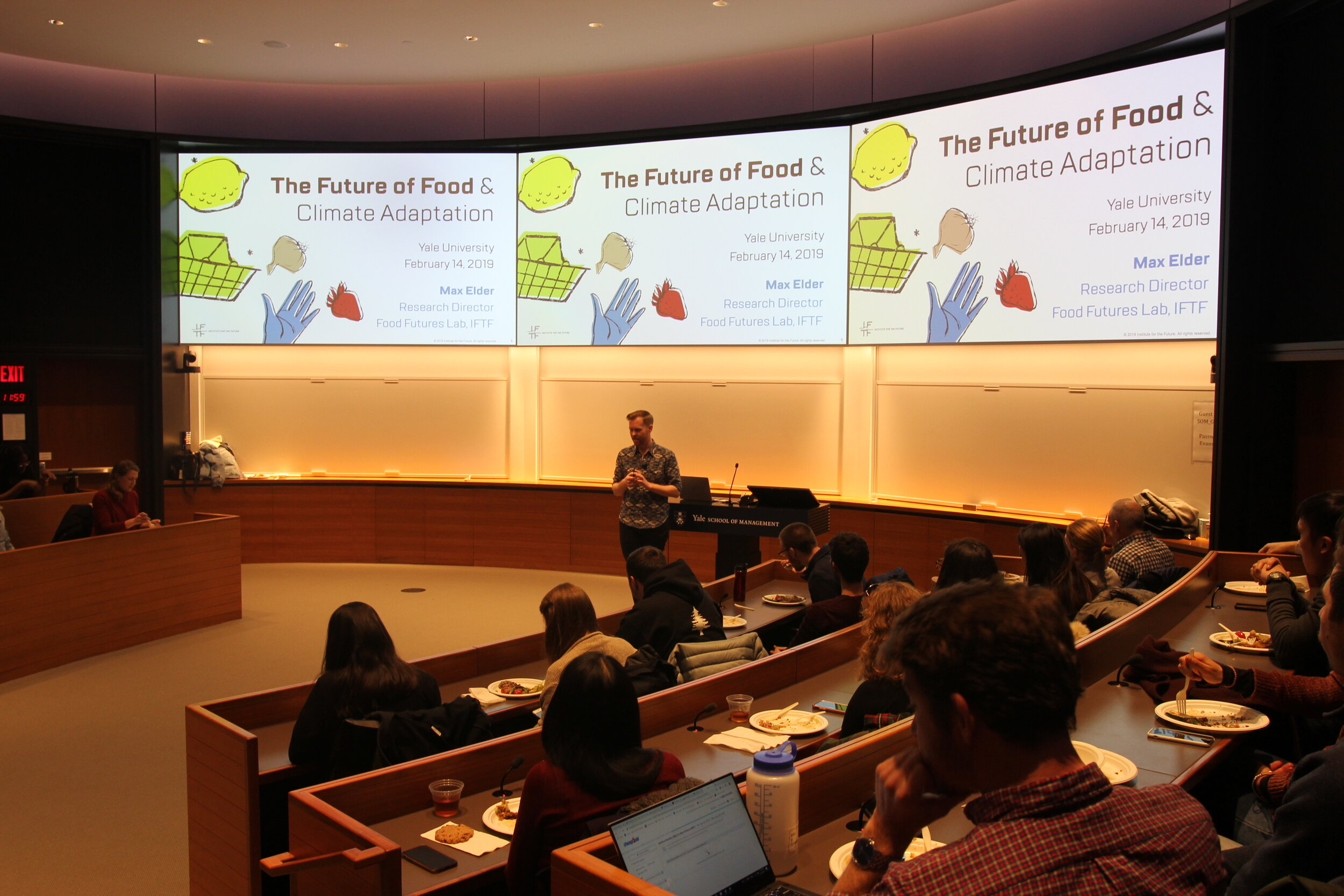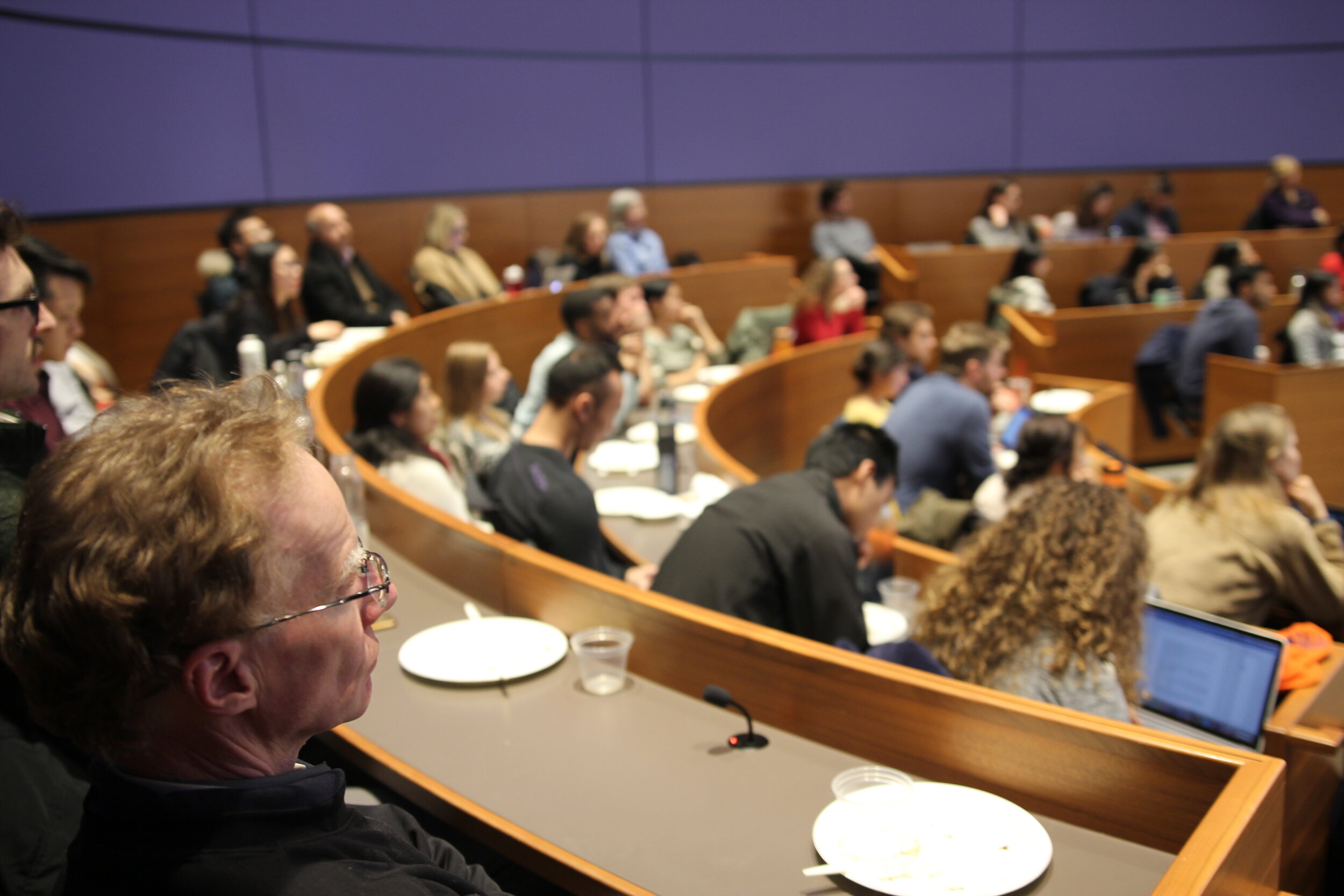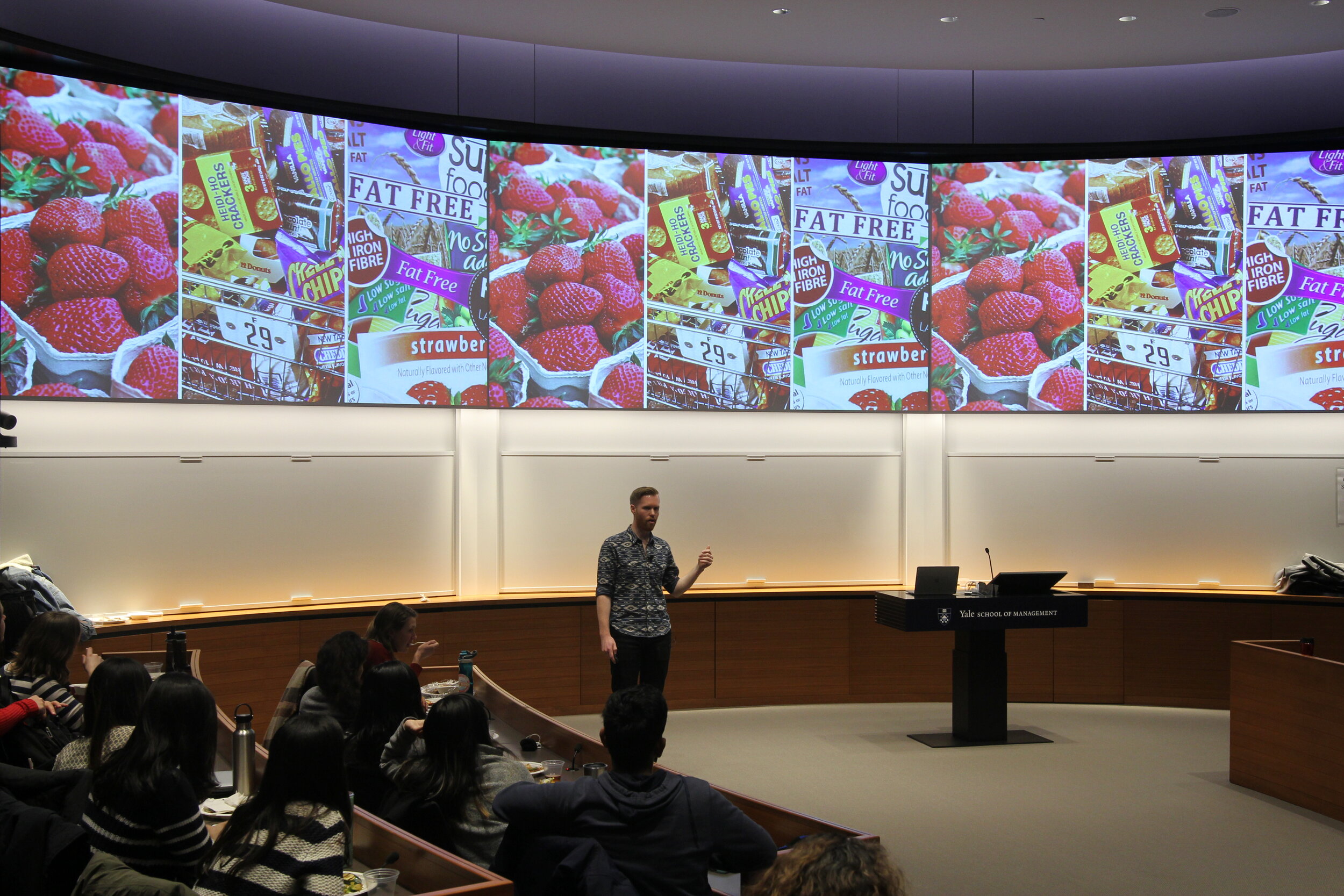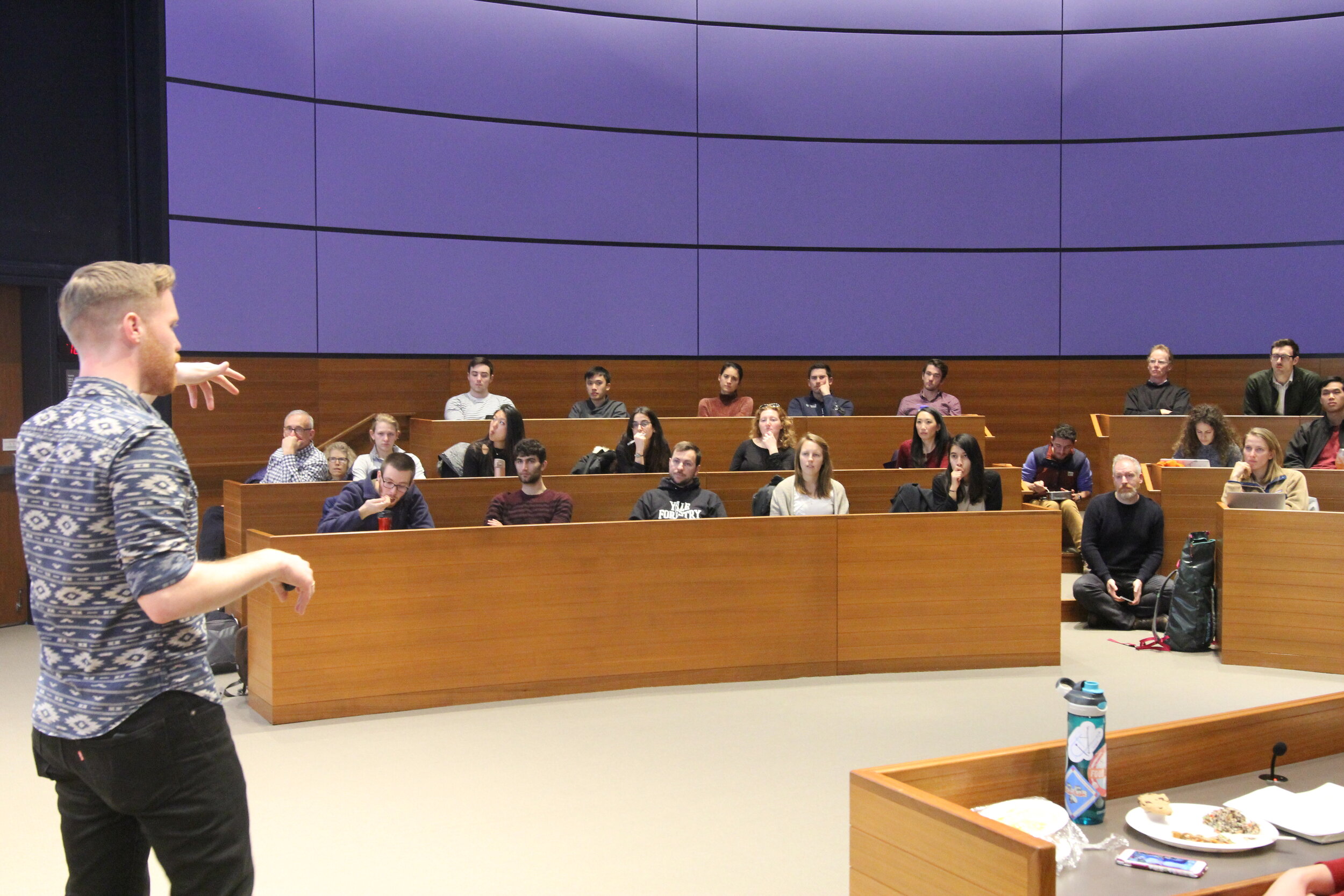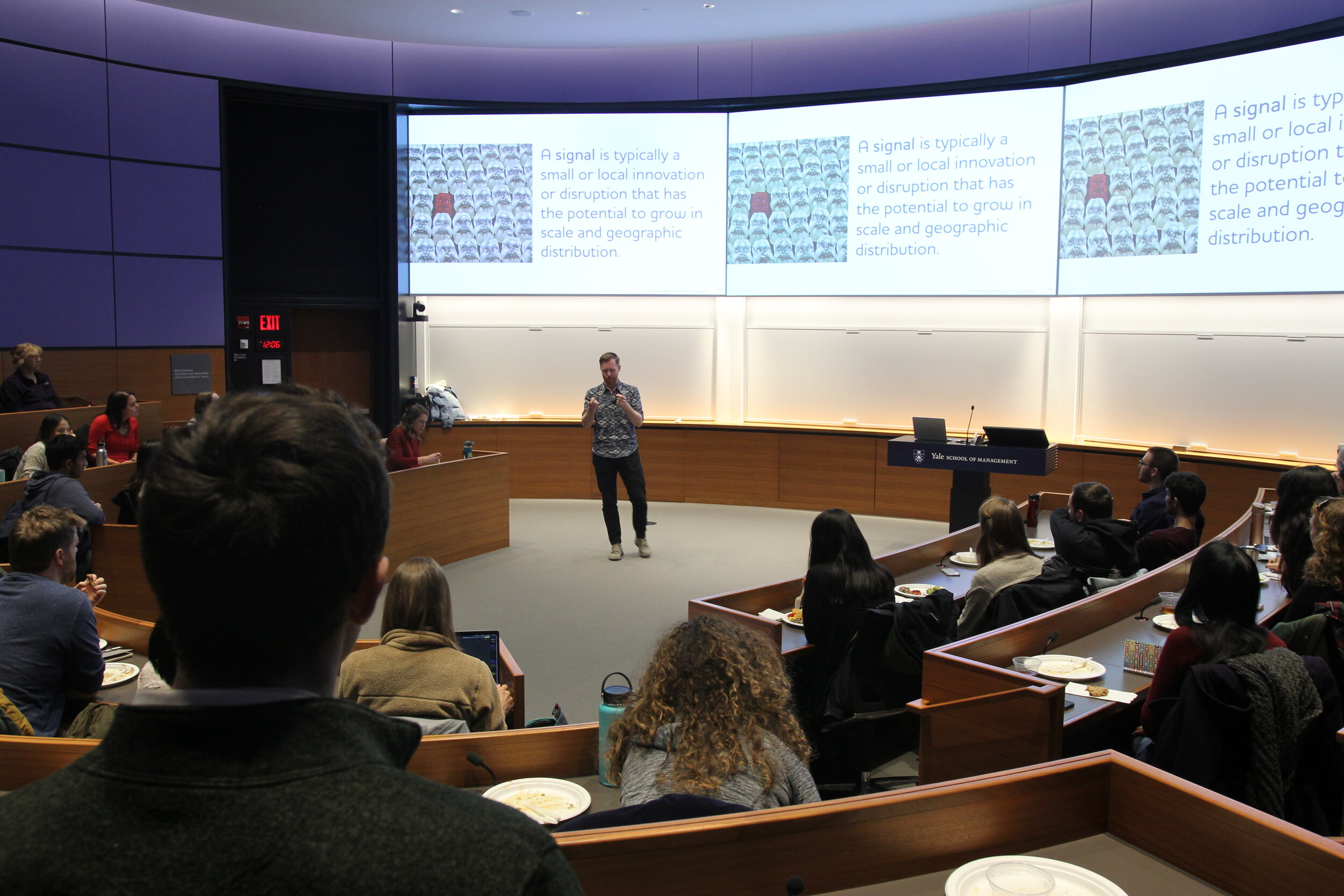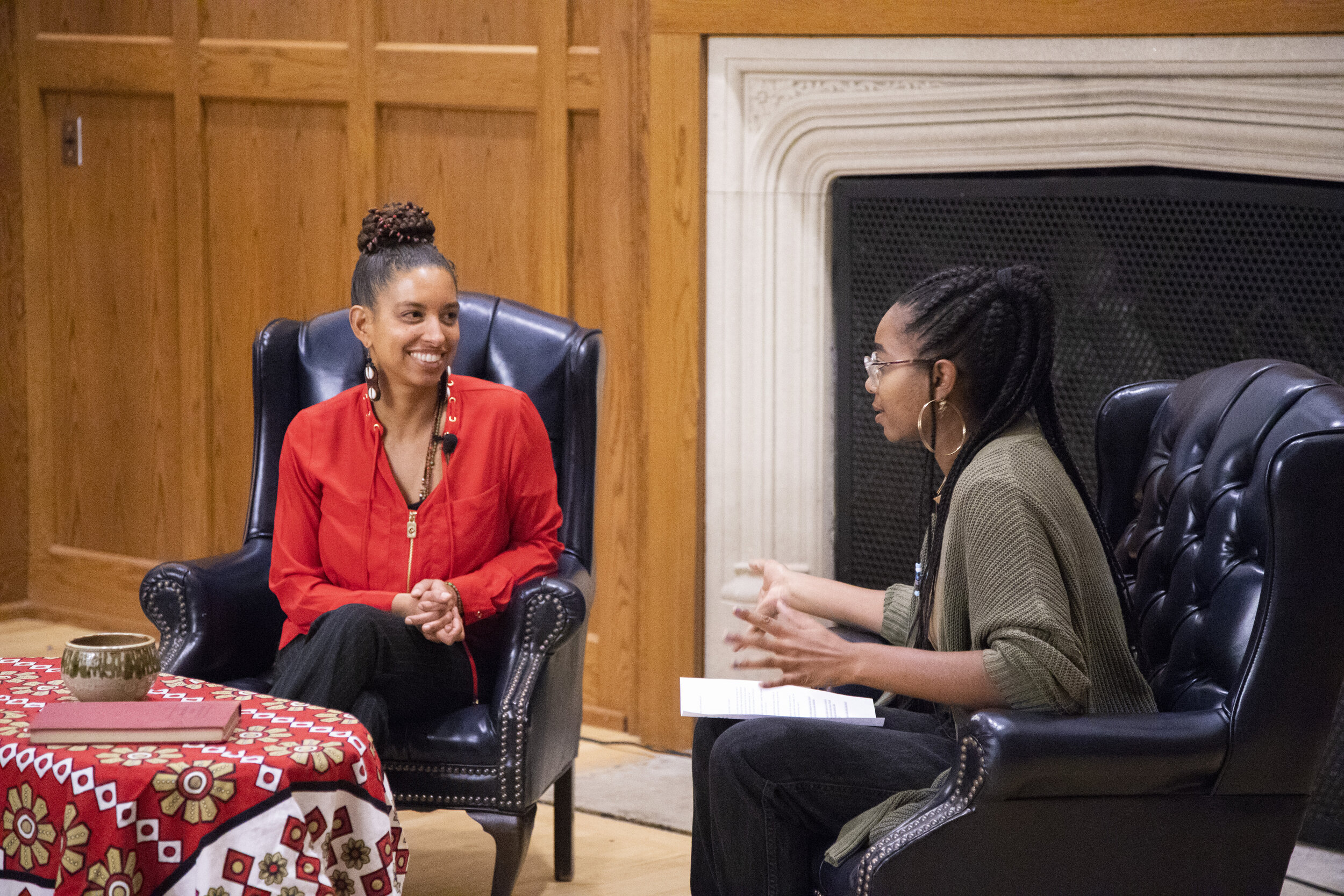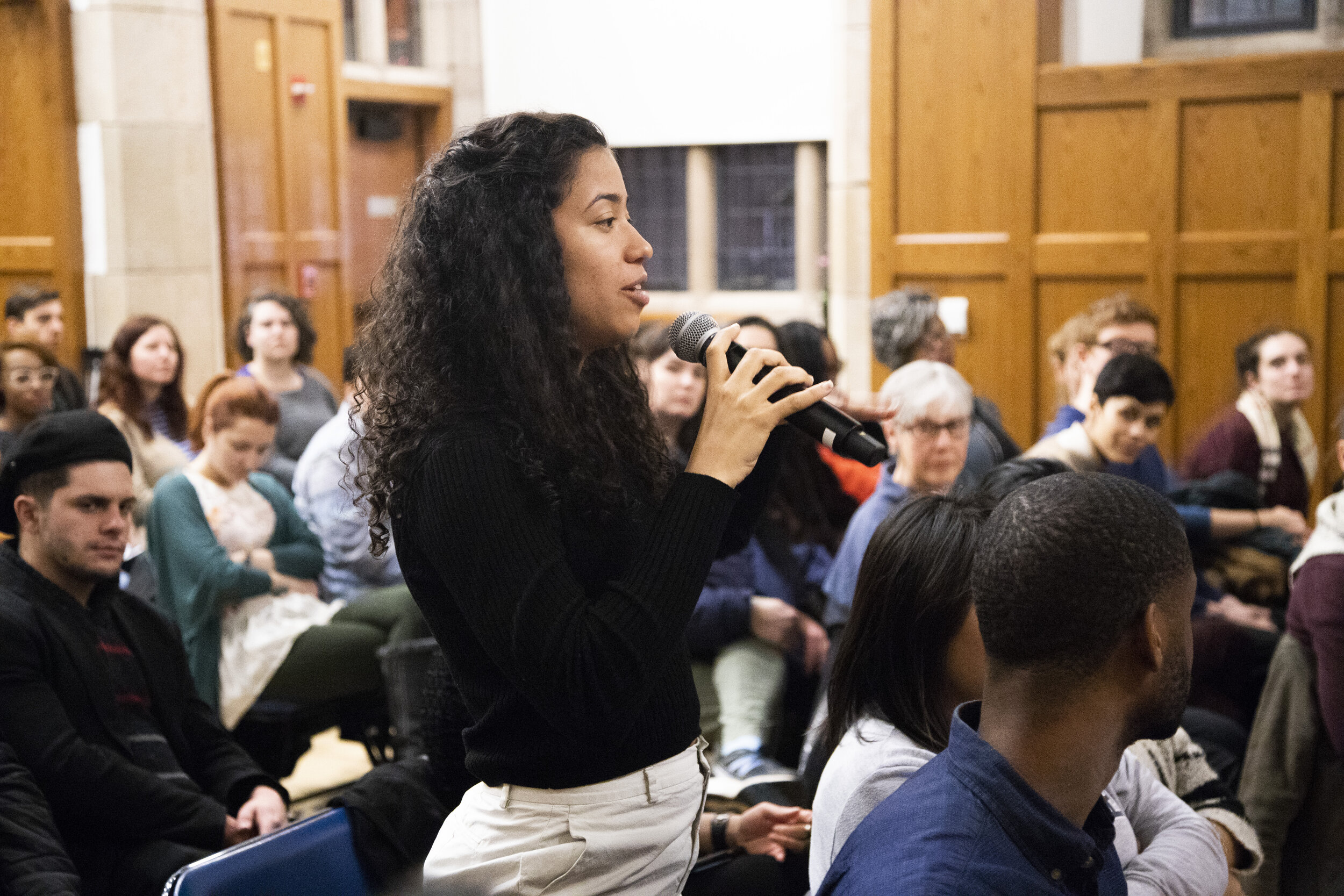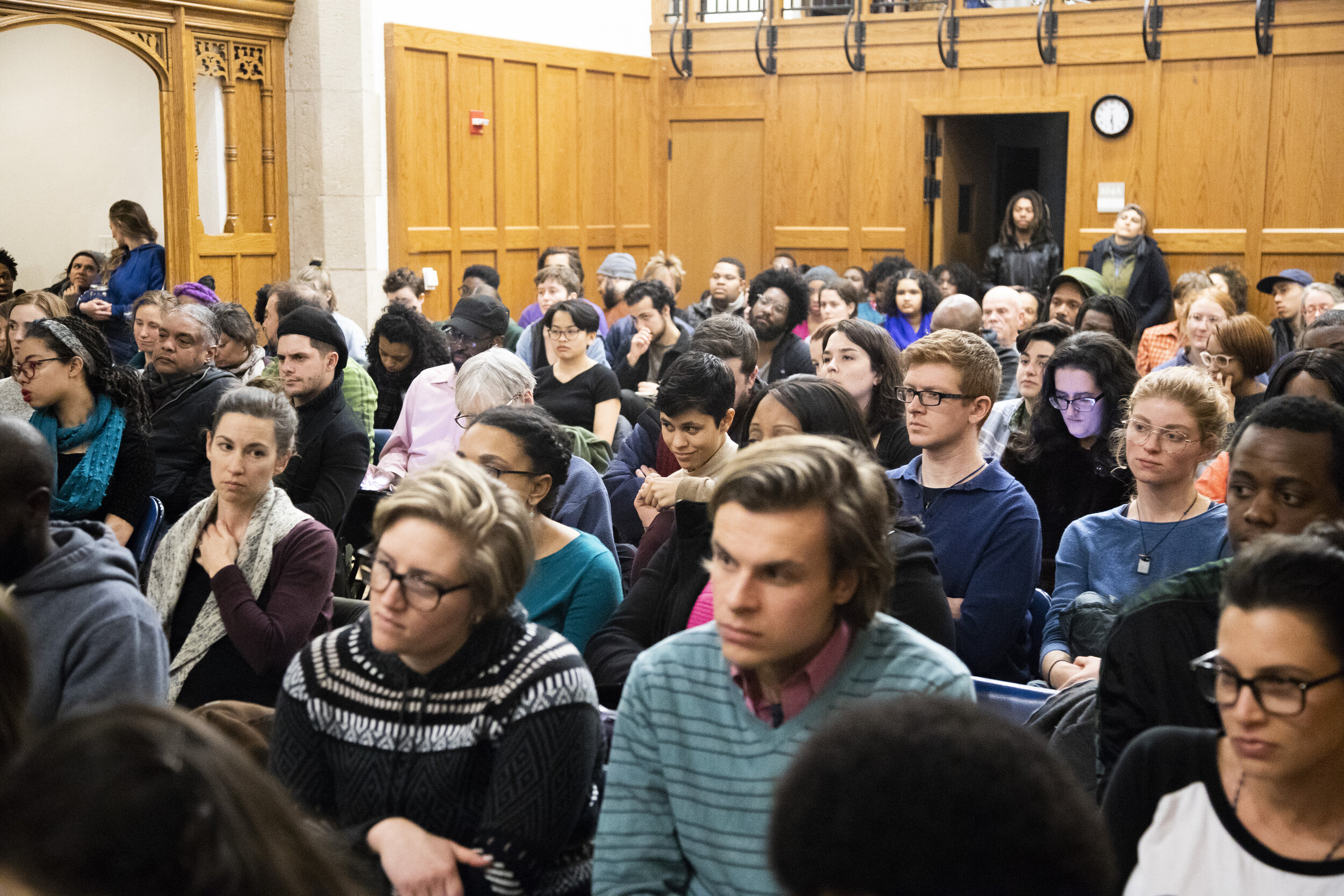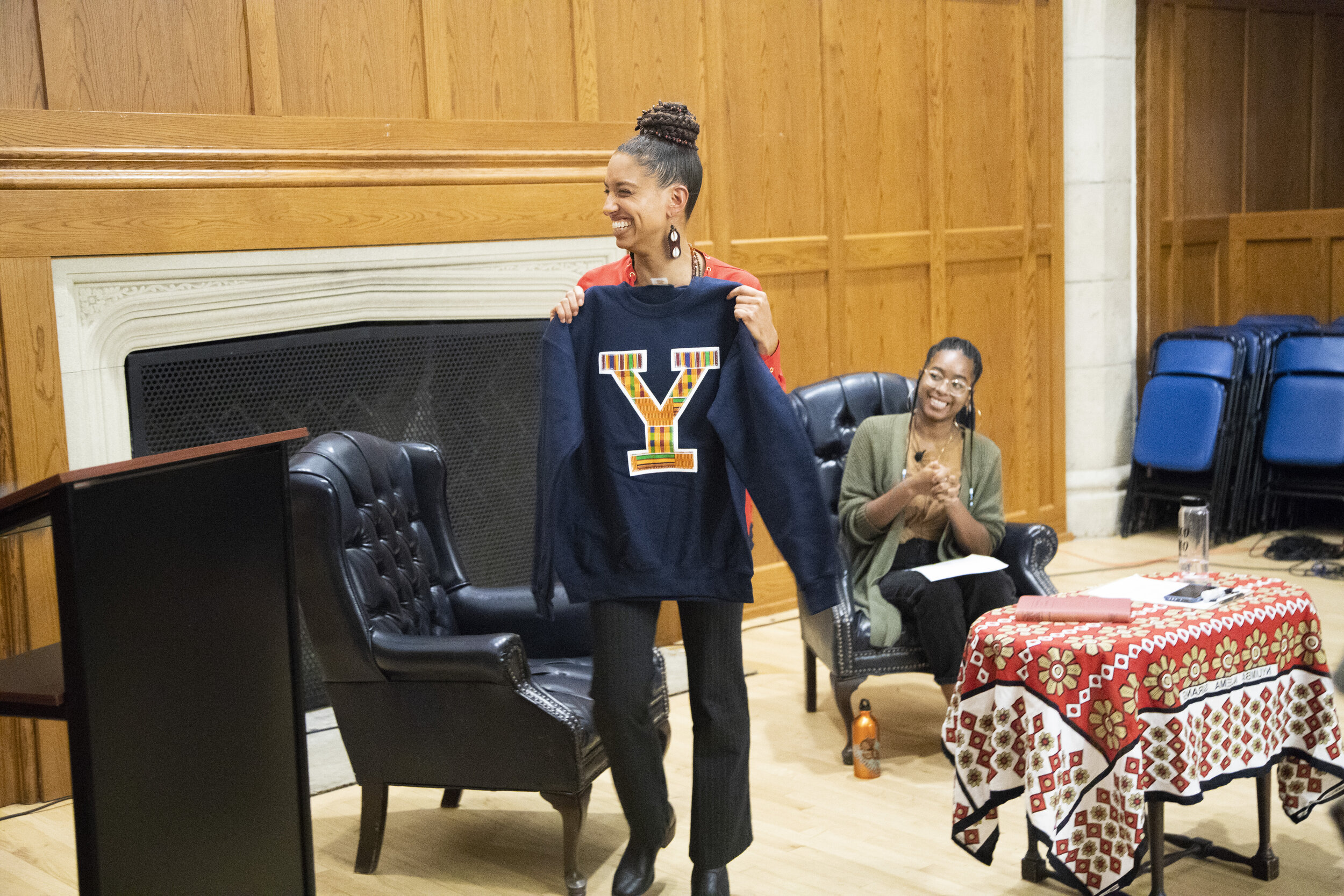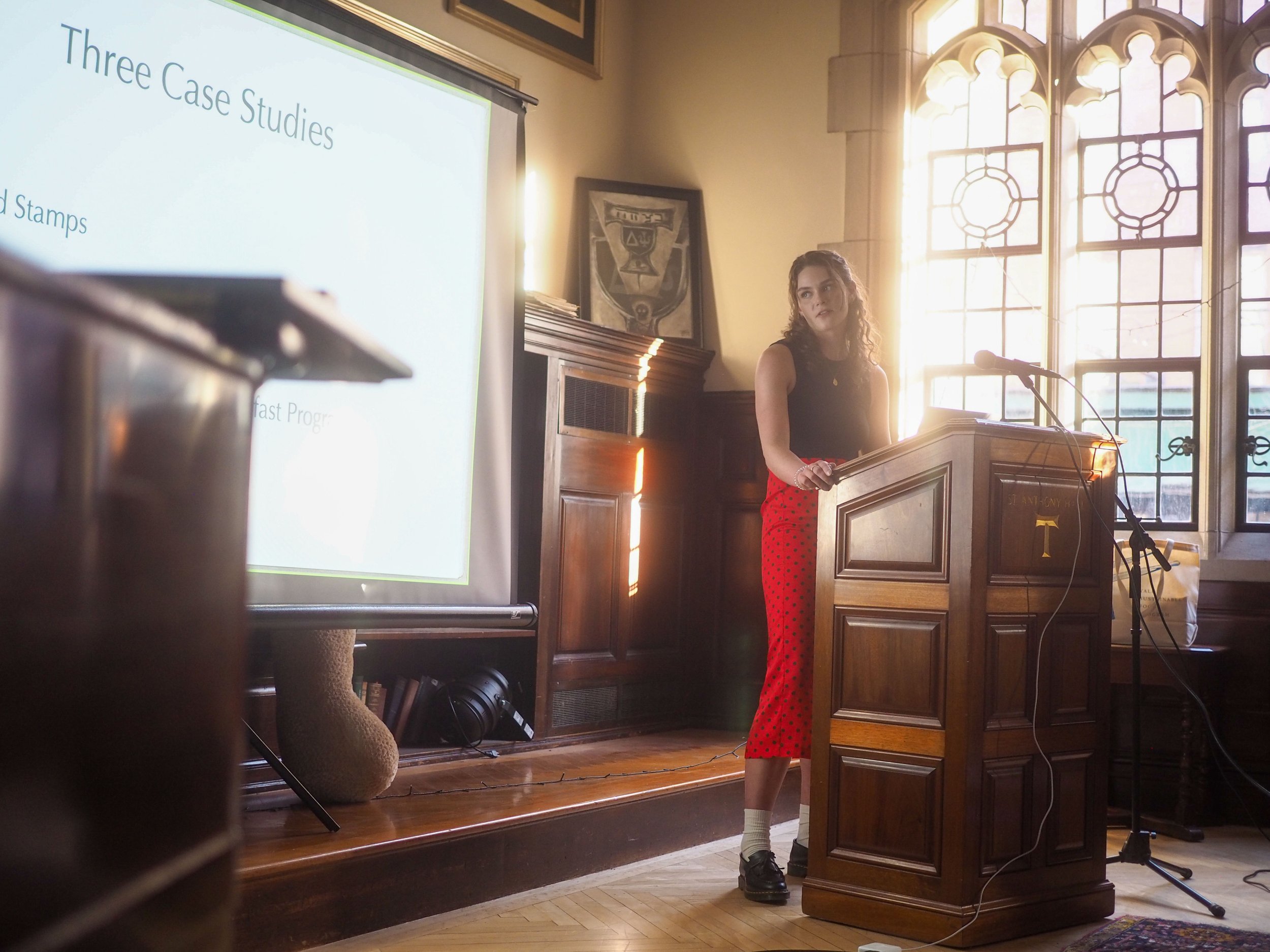
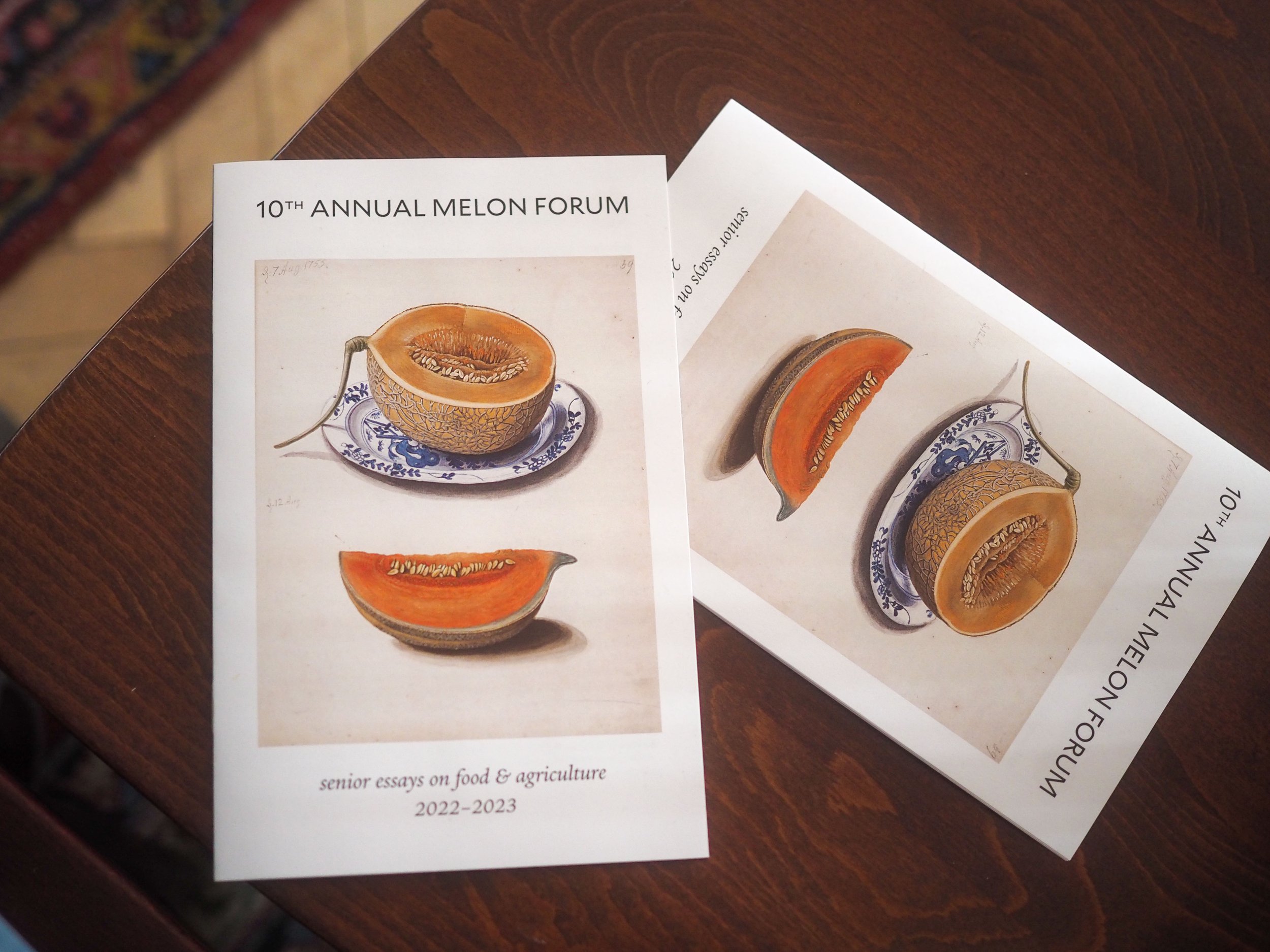
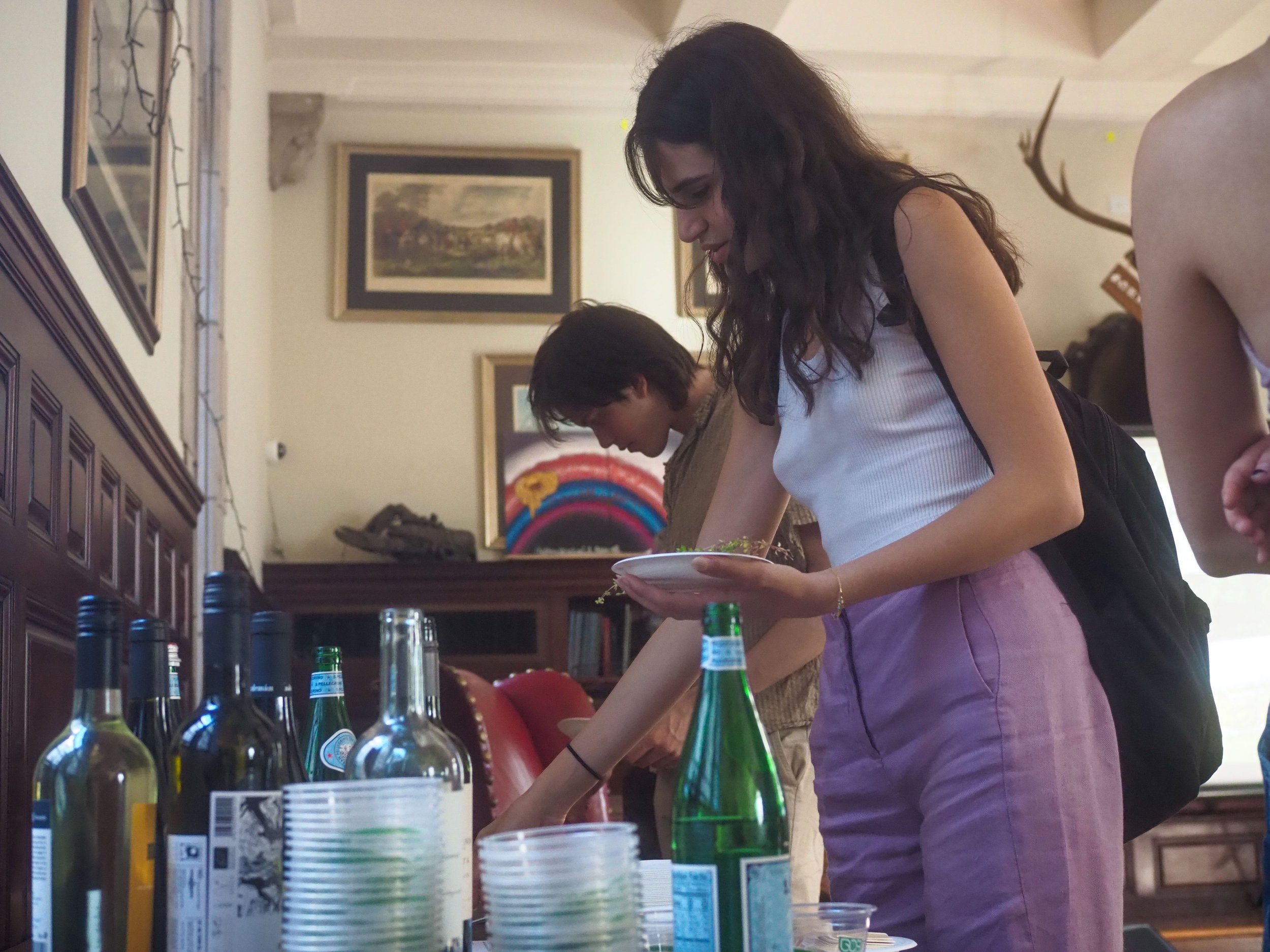
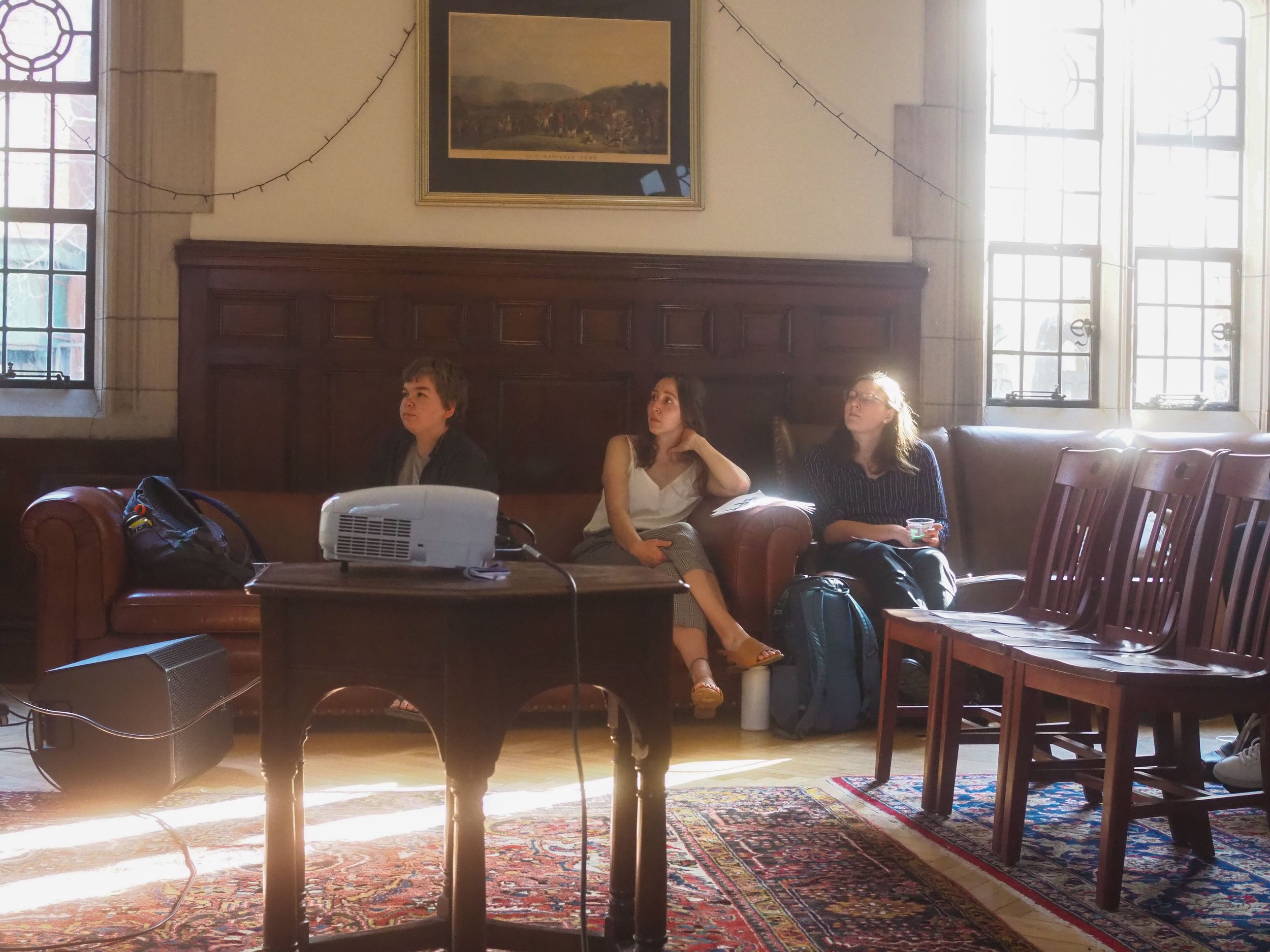
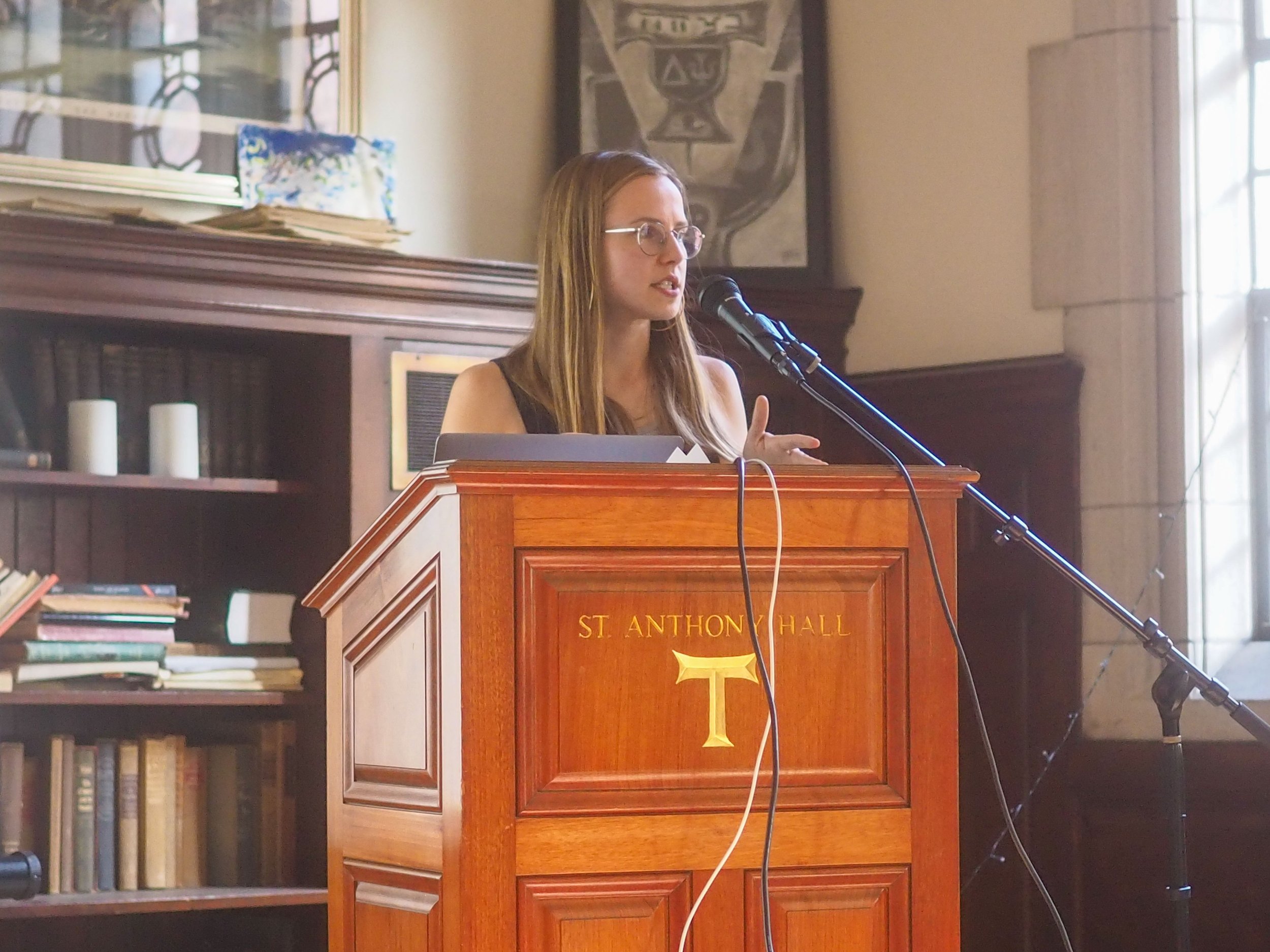
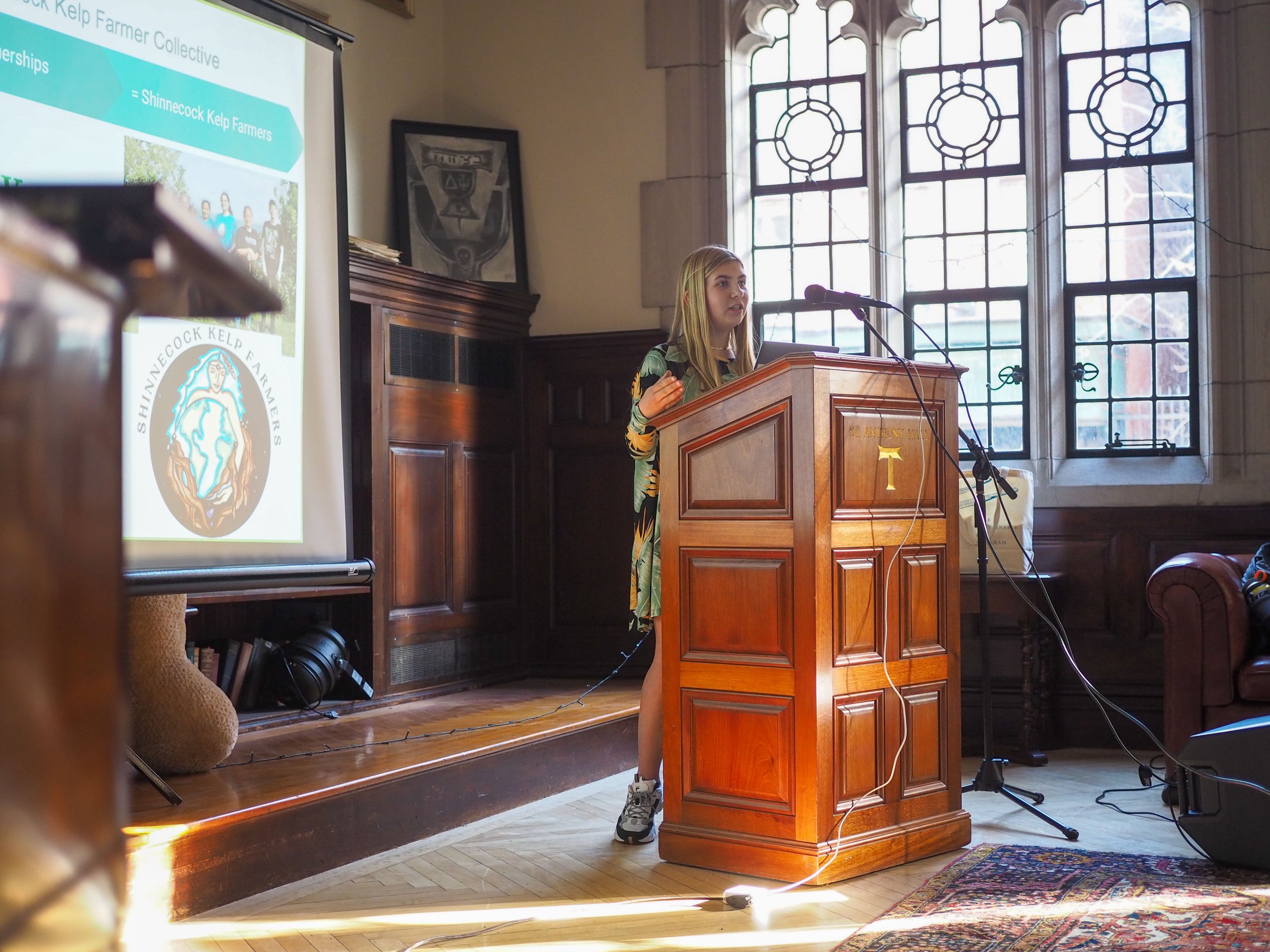
On April 12, 2023, from 5:00 – 7:00 P.M., the Yale Sustainable Food Program hosted its tenth annual Melon Forum at St. Anthony Hall, where ten Yale seniors presented senior theses relating to food and agriculture: Gavrielle Welbel, Meredith Ryan, Kayleigh Larsen, Brianna Jefferson, Ben Christensen, Catherine Webb, Caroline Beit, and Lucie Warga, majoring in subjects from Environmental Studies to Economics. Raphael Berz and Michael Min contributed their prospectuses to our 2023 Melon Forum brochure. Virginia Davis ’23 planned and led the event. The students’ projects ranged across disciplines, methodologies, and theories, utilizing novel approaches to tackling wicked problems in food systems. To view the Melon Forum brochure, please visit this link.
Lucie Warga ’22 began the event with her presentation, assessing the socio-political climate influencing school nutrition standards in the last decade. Drawing from archival research and discussing cultural norms, Warga engaged in an interdisciplinary exploration of food standards for students in U.S. schools.
Following Warga, Meredith Ryan ’22 explained how she used remote sensing and Google Earth Engine to analyze how the Russia-Ukraine war impacted agricultural production in Ukraine. Ryan used sensing technologies to analyze different types of wavelengths absorbed and reflected by chlorophyll in regions of interest to determine the impact of the war on agricultural yields.
Presentations focused not only on fluctuations in geography, but also on their shifting relationships with the people and environments around them. Catherine Webb ’22 highlighted the Shinnecock Kelp Farmers, a collective of six Shinnecock women who work to steward the land amidst “social geographies of antagonists and potential allies,” she wrote. Their ancestral relationship with kelp guides their present-day work in kelp farming. Themes of protection, spirituality, and connection imbued Catherine’s thoughtful presentation.
“You can’t talk about hunger without talking about race,” said Kayleigh Larsen ’22. Larsen’s presentation explored American food politics, activism, and power from 1964 – 1973. Through three case studies—one of which highlighted the Black Panther Party’s free breakfast program—she examined how grassroots organizers used food systems to contest values of an oppressive society.
Next, Gavrielle Welbel ’22 presented their long-term research on rock weathering in agricultural settings through analyzing carbon dioxide removal, crop yields, and soil pH. In conjunction with a team of researchers and farmers, Welbel studies rock weathering at Zumwalt Acres, a farm which they co-steward in Sheldon, IL.
Next, Brianna Jefferson ’22—advised by YSFP Director Mark Bomford—presented on the intersections of hydroponics and environmental justice. Through interviews with companies in the Northeast and Florida, Jefferson investigated large hydroponic companies’ purported commitment to environmental justice and local communities. She found that while the companies’ commitments were largely opaque, they did at times positively impact communities by providing job opportunities in underserved areas.
Jefferson’s presentation was followed by Caroline Beit ’22, whose project on the history of breastfeeding in American prisons tracked court cases and political visions of breastfeeding. Studying the racialized double-standards of white and Black women breastfeeding their children, Beit analyzed the effects of court decisions that have affected the accessibility and legality of breastfeeding in carceral settings. While breastfeeding has been repeatedly criminalized, other court decisions have elevated breastfeeding as a constitutional right.
Finally, Ben Christenen ’22 presented a graph-theoretical project on human population clusters as a function of geography. “People tend to live where they can grow food,” he said. Christensen used computational methods to explore the geographic conditions conducive to supporting large populations, and considered if natural geographic clusters correlated with canonical ideas of “regions.”
Around forty students gathered to watch these seniors present their culminatingYale academic works. The YSFP provided wine, a variety of cheeses, and sweet treats. We hope you’ll join us next year at our 11th annual Melon Forum.
To view photos from the event, please follow this link. Photos by Reese Neal ’25.

